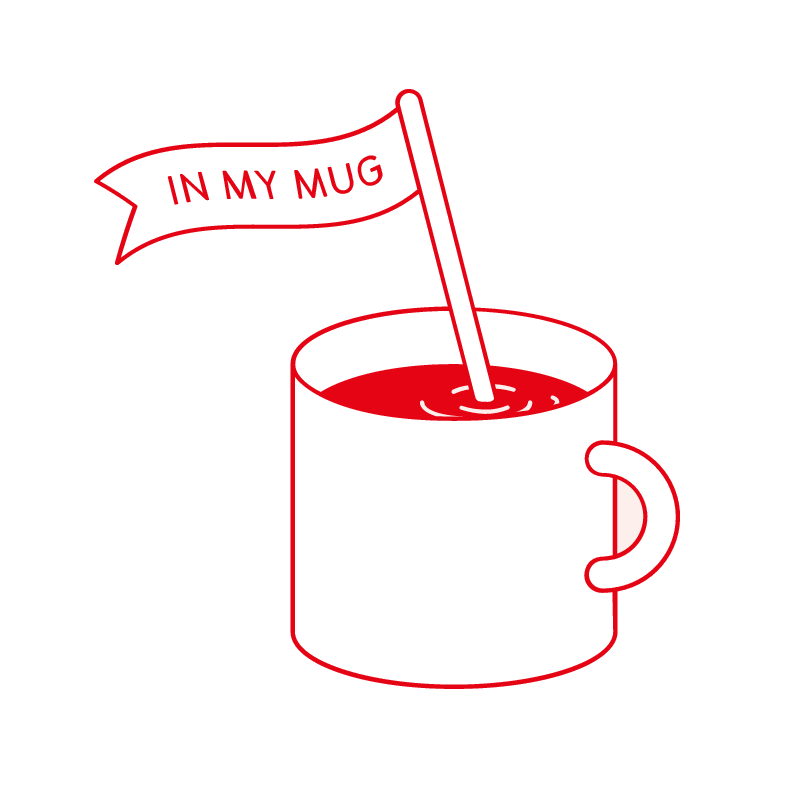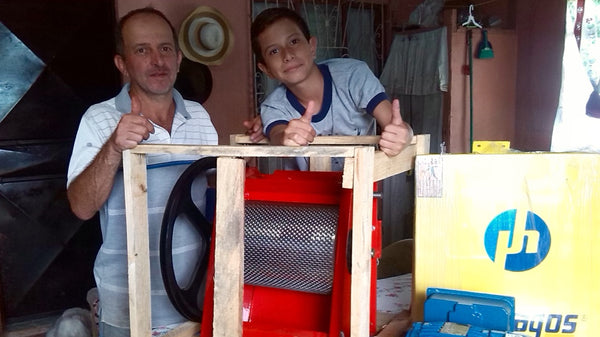Episodes

Sunday Aug 06, 2017
Sunday Aug 06, 2017
This coffee comes from a farm that's actually two farms, but the two farms exist as one farm. They do produce coffee independently, though. Exciting, huh?
Overall the farm is called Finca 'Sumava de Lourdes' Lourdes de Naranjo and is located in Lourdes de Naranjo in the western valley of Costa Rica between 1,670 and 1,790 metres above sea level. The farm is made up of two farms called Finca 'Monte Llano Bonito', which has nine plots of land, and Finca 'Monte Lourdes', which has six plots of land and this coffee comes from Finca 'Monte Llano Bonito'.

There are ten permanent workers who live on the farm in a custom built workers' camp. All of them receive accommodation as part of their employment.
Finca 'Sumava de Lourdes' Lourdes de Naranjo adheres to strict agronomic practices and ensure the minimum use of herbicides and pesticides. They use MMs (Mountain Microorganisms) and minerals from natural origins as much as they can for their farming.
It's a farm where the owners enjoy growing many different varietals. If you wandered around the farm, you'd see Pacamara, Mokka, SL 28, Geisha, Caturra and Villa Sarchi all growing around the farm.
In the cup this coffee starts out with caramel, dark chocolate and a creamy body, but it finishes on a crisp white grape acidity with a deliciously refreshing apple aftertaste.
- Country: Costa Rica
- Location: Lourdes de Naranjo, western valley
- Farm: Finca Sumava de Lourdes
- Sub farms: Finca Monte Llano Bonito and Finca Monte Lourdes
- Altitude: 1,670–1,790 m.a.s.l.
- Varietal: Villa Sarchi
- Processing system: Yellow honey

Sunday Jul 30, 2017
Episode 455 on Monday the 31st of July, 2017. Kenya Kieni Washed AA
Sunday Jul 30, 2017
Sunday Jul 30, 2017
The Kieni wet mill is located in Nyeri in the central highlands of Kenya, at an altitude of 1,700 metres above sea level. It's run by the Mugaga Farmers' Cooperative Society.
Nyeri county has cool temperatures and fertile central highlands; it lies between the eastern base of the Aberdare (Nyandarua) mountain range, which forms part of the eastern end of the Great Rift valley and the western slopes of Mt. Kenya. Nyeri town (county headquarters) acts as a destination for those visiting Aberdare National Park and Mt. Kenya. It is in Nyeri county, at the Treetops hotel, (a rustic treehouse hotel) where the young Elizabeth went upstairs a princess and came down in the morning as Queen of England. Her father, King George VI, died on 5 February 1952, the night she spent at Treetops while on honeymoon.
Most of the coffee beans from Nyeri develop and mature slowly, producing extra hard beans. This quality is also evident in the cup. As a result, Nyeri is traditionally known as the heart of Kenya’s black gold coffee.
The coffee is mainly grown on the slopes and the upper plateau where most of the farmers' homes are located. The farms are demarcated into small family plots where each individual family looks after their own coffee.
The mill has recently installed an electronic weighing system, that not only weighs the farmer's cherries when they deliver them - it also prints out a receipt for them, including a running total of how much they have delivered so far.
Kieni is one of a number of mills owned by the Mugaga Farmers' Cooperative, and currently has around 1,000 members, although this constantly varies and not all members will always deliver their cherry to Kieni.
This coffee is wet processed. It's pulped, fermented (soaked for 8-16 hours (with fresh water at 8 hours) and then fermented for 8 - 16 hours) before being washed and then dried slowly over 2–3 weeks, while the moisture content is reduced to 10–12%. Random interesting fact, the depulper at Kieni can manage up to 5,000kg per hour.
In the cup this has a totally tropical taste of Lilt (regional reference there for you) in both its sweetness and acidity. It also has an effervescence to add to this descriptor. In the aftertaste it turns a little more orangey (Tango) with a delicate caramel hint.
- Country: Kenya
- County: Nyeri
- Mill: Kieni
- Society: Mugaga Farmers’ Cooperative Society Limited
- Farmers: 905
- Acreage farmed: 202 acres
- Altitude: 1,700 m.a.s.l.
- Varietal: SL28
- Coffee grade: AA
- Flowering period: March
- Harvest season: October–December
- Average annual rainfall: 1,680mm
- Average annual temperature: 12–27°C
- Soil type: red volcanic soils that are rich in phosphorus, and which are drained well
- Processing method: Wet processing (Washed)
- Drying process: Dry, milling after the parchment has dried

Sunday Jul 23, 2017
Sunday Jul 23, 2017
We had very little information about this farm when we first found it in 2013 – so little information that the coffee didn’t even have a name! Back then all we knew was that the coffee was grown by Carlos Arrieta and it was delicious, but since then I've been lucky enough to visit the farm on trips to Costa Rica and, over the past few years, have found out lots more. Let me tell you what I know so far ...
I first got to meet Carlos at the exporter's office on the last day of my visit to Costa Rica in 2013. He arrived around ten minutes after I had cupped the first table of coffees, where I had found one lot that was making me sing. It just had to be his coffee.
Here ensued the worst negotiation to ever take place in the history of coffee buying ...
"How much do you want?" I asked.
He replies, "How much do you like it?"
"A lot,” I say.
"I'd like a lot then, please," Carlos says.
"OK ... "
Luckily at this point a grown-up from the exporter's office stepped in and made sure I didn't give Carlos my house, car and pension plan. We agreed a price that rewarded Carlos with more than he had ever got before and left me with a home to return to in Stafford.
Back in 2015 last I got to spend some time with Carlos and his family. I stopped for some lunch, hung out and asked lots of questions. First of all there's the mill, which is called Arbar and is very close to the house. It has drying tables and a small nursery, but it didn't have a deplulper (more about this later). The mill was brand new, and before it existed they would just sell their coffee to the local coop and so have no interaction with the coffee.
Then from chatting to Carlos I found out that he actually owns two small farms; one of them was El Oasis, which provided the coffee we bought back in 2013. The farm is located in the Western Valley region near to the town of Lourdes de Naranjo, and is 1,600 metres above sea level. It grows mostly Caturra and a tiny bit of Villa Sarchi, with plans to plant some small micro lots in the future. The farm produces between 700–1,400 KG of coffee a year.
Carlos runs the farm with his wife and children, Maria Isabel, Yesica, Karen, Stephen and Jose Ignacio. He has owned this farm for sixteen years but only started processing the coffee himself in 2014 (while still paying someone else to pulp it for him). He hadn't been able to present his coffee to a single buyer previously, so he would send it to the exporter we use in Costa Rica and, thankfully, that's how we found him!
You may remember that a few years ago the coffee was priced a little differently; our normal, nicely rounded-down price was not there. The coffee should have been sold for £7.50 (we negotiated a small price drop from the previous year because we bought everything from both farms, and this worked out that there were some economies of scale compared to the £10.00 of 2013), but we charged £7.88. Well, this was so that we (by “we” I mean “you”) could buy Carlos and his family a depulper for his next harvest. This meant he didn’t have to pay someone else to pulp his coffee, and he could gain more control of his amazing coffee.
I lent the money to Carlos, because I promised you would pay it back (and you did!). You can go and see what your generosity bought at the blog post here.
Last year one of my roasting team, Roland (of 'Roland's Daft Fact' fame), travelled to Costa Rica to be on the jury for their Cup of Excellence competition. If you ever wondered what a coffee roaster from the UK would get up to if let loose in Costa Rica, you should have a read about his trip in Roland Glew's Costa Rican Adventure.
In the cup it's like someone has slipped in a big glug of 5 Alive Tropical Hit fruit juice! This coffee is all peaches, pineapples and oranges, with a really complex but delicious fruit sweetness.
- Country: Costa Rica
- Region: Western Valley
- City: Lourdes de Naranjo
- Farm: El Oasis
- Farmer: Carlos Arrieta
- Micro mill: ARBAR
- Altitude: 1,600 m.a.s.l.
- Varietal: Caturra
- Processing system: Yellow Honey
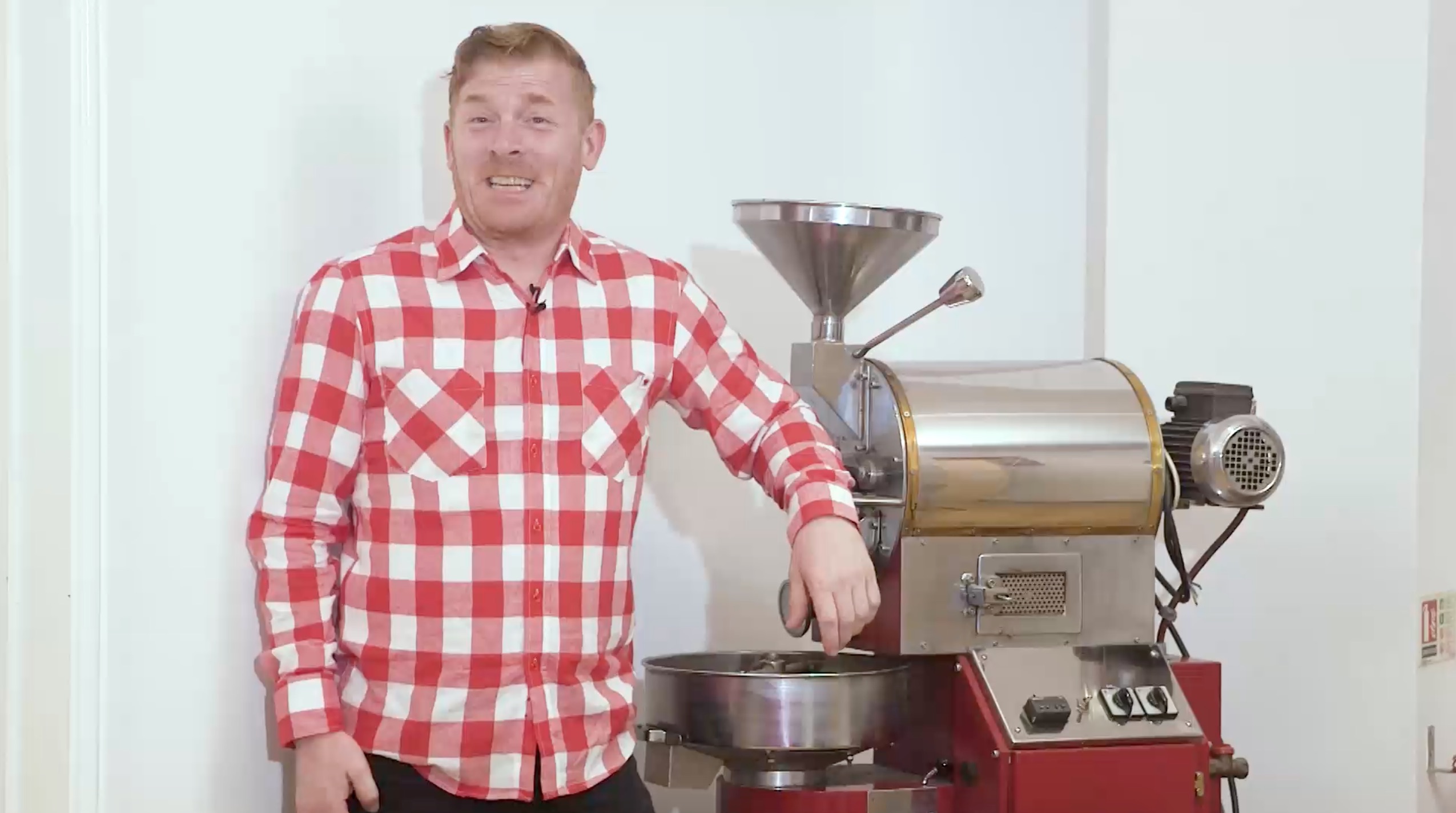
Sunday Jul 16, 2017
Episode 453 on Monday the 17th of July, 2017. Bolivia Bebeto Mamani
Sunday Jul 16, 2017
Sunday Jul 16, 2017
The name of this coffee producer may sound a little familiar. Bebeto (Beto for short) is the son of the legend that is Teodocio Mamani. Teodocio owns Finca Canton Uyunense, which is a farm we have worked with since 2012.
His farm is located in 18 de mayo, which is a municipality of Caranavi (and part of Canton Uyunense). Lots of farms can be called a variation on these names because the land traditionally tends not to have a name.
This year is the second year that Bebeto has grown his own coffee under his own guardianship, and it's the first year that he has processed it himself (dad letting go). Just like last year, the results are amazing!
This coffee is a mixture of red and yellow Typica, Caturra and Catuai. Bebeto used a depulper that removes the cherry, then left the coffee to go through a dry fermentation process for 16–18 hours, and then ran it through the scrubber section of the pulper to remove the final remains of the mucilage. Bebeto then transferred the coffee to raised African beds, where it dried in around 7–9 days.
The picking method Bebeto uses is called 'Ayne', just like his dad uses on Canton Uyunense. This method involves selective picking (not stripping the tree like their neighbours), and demands much more labour and incurs much higher costs. But because of this Bebeto gets more coffee he can sell as specialty, and the cup profile is improving year after year.
In the cup there's green apple and malted milk biscuit with a hint of gooseberry, and a whole load of caramel on the finish.
- Country: Bolivia
- Department: La Paz
- Region: Yungas
- Province: Caranavi
- Municipality: 18 de mayo
- Farm: Bebeto Mamani
- Owner: Bebeto Mamani
- Varietals: Typica, Caturra and Catuai
- Ripe cherry colour: Red and Yellow
- Altitude: 1,500–1,700 m.a.s.l.
- Processing: Washed
- Fermentation: 16–18 hours
- Drying method: Raised beds
- Other crops grown: citrus, papaya, banana, wild forest
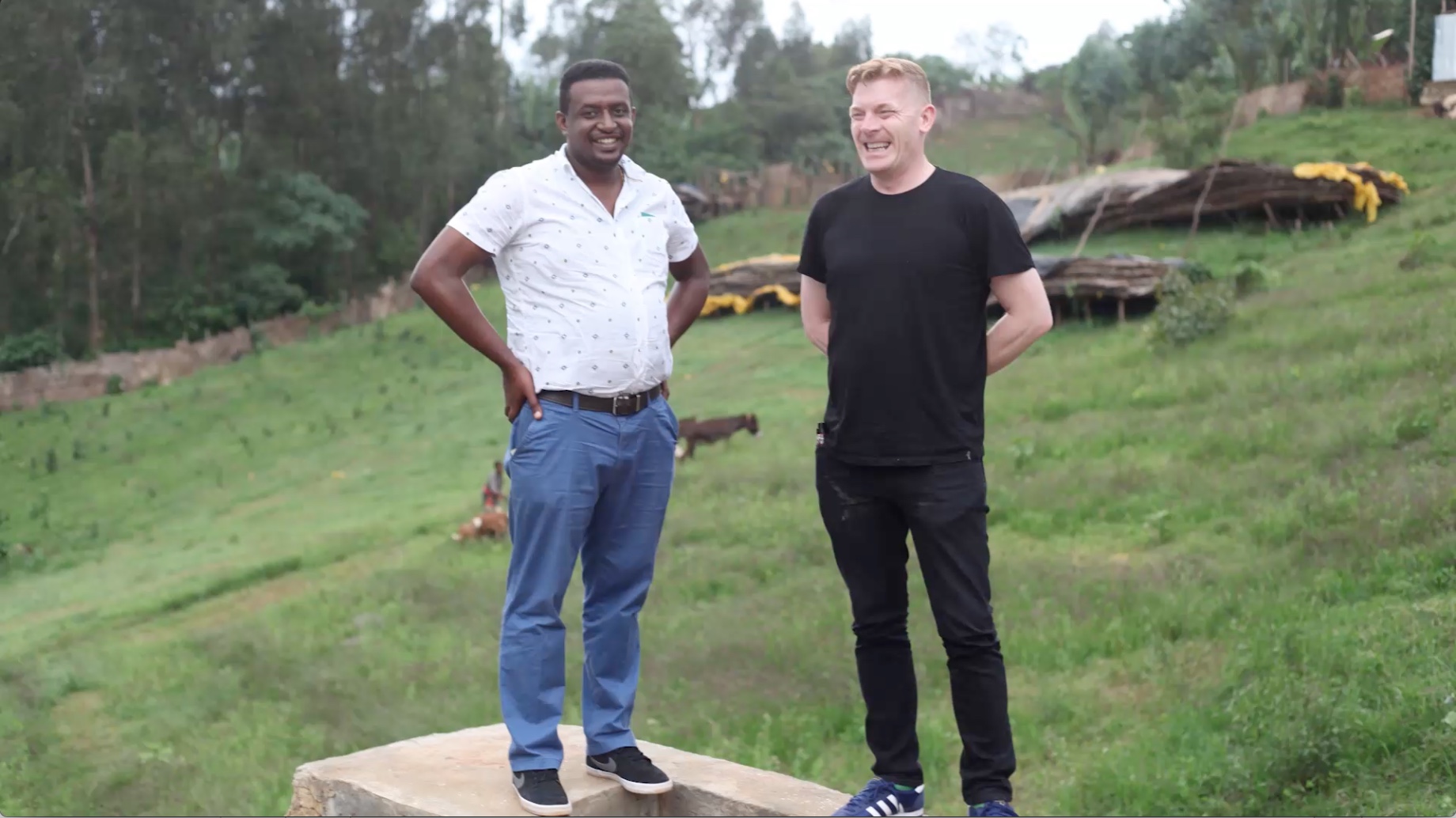
Sunday Jul 09, 2017
Sunday Jul 09, 2017
The region of Bulega has around 3,000 people living in the surrounding area. The area is so lush and green with super high altitudes going up to nearly 2,200 metres above sea level, surrounded by small holders and unique protected forest area
So why is this coffee called Mokanissa Bulega?
Bulega Is the name of the washing station, and the larger region where it is (if you want to get complicated Nenesbo, micro region).
Mokanissa because the washing station belongs to the sister company of Kerchensa, the company that Israel Defga (of Ana Sora fame from last year) owns, and he also privately owns the mill, unsurprisingly he's a popular fella in these parts! Israel built the washing station just over three years ago, before this the farmers delivered to the Sidamo area which is over 100km away! But now 2,000 committed farmers are delivering cherry to Bulega.
The Bulega washing station works for five months in the year and only processes washed coffee. compared to most washing stations that work for around 10 months of the year.
In the cup this is a classic Ethiopian, with black tea notes and lovely bright lemon peel. What makes this coffee extra special are its other components of cherry blossom, bright acidity and its finish of pomegranate. A very special washed Ethiopian coffee.
- Country: Ethiopia
- Region: Bulega
- Zone: Bulja
- Area: Nenesbo
- Washing station: Bulega
- Owner: Israel Defga
- Owning company: Mokanissa
- Varietal: Indigenous wild varietals
- Processing method: Washed
- Fermentation: 24-36 hours
- Fermentation time: 36 Hours
- Drying method: African beds
- Drying time: 9-14 days
- Altitude: 1,800 masl to 2,300 masl
CUPPING NOTES
Black tea, lemon peel, cherry blossom, pomegranate.
Clean cup: (1–8): 7.5
Sweetness: (1–8): 6.5
Acidity: (1–8): 7
Mouthfeel: (1–8): 6
Flavour: (1–8): 7
Aftertaste: (1–8): 7
Balance: (1–8): 6
Overall: (1–8): 7
Correction:(+36): +36
Total: (max. 100): 90
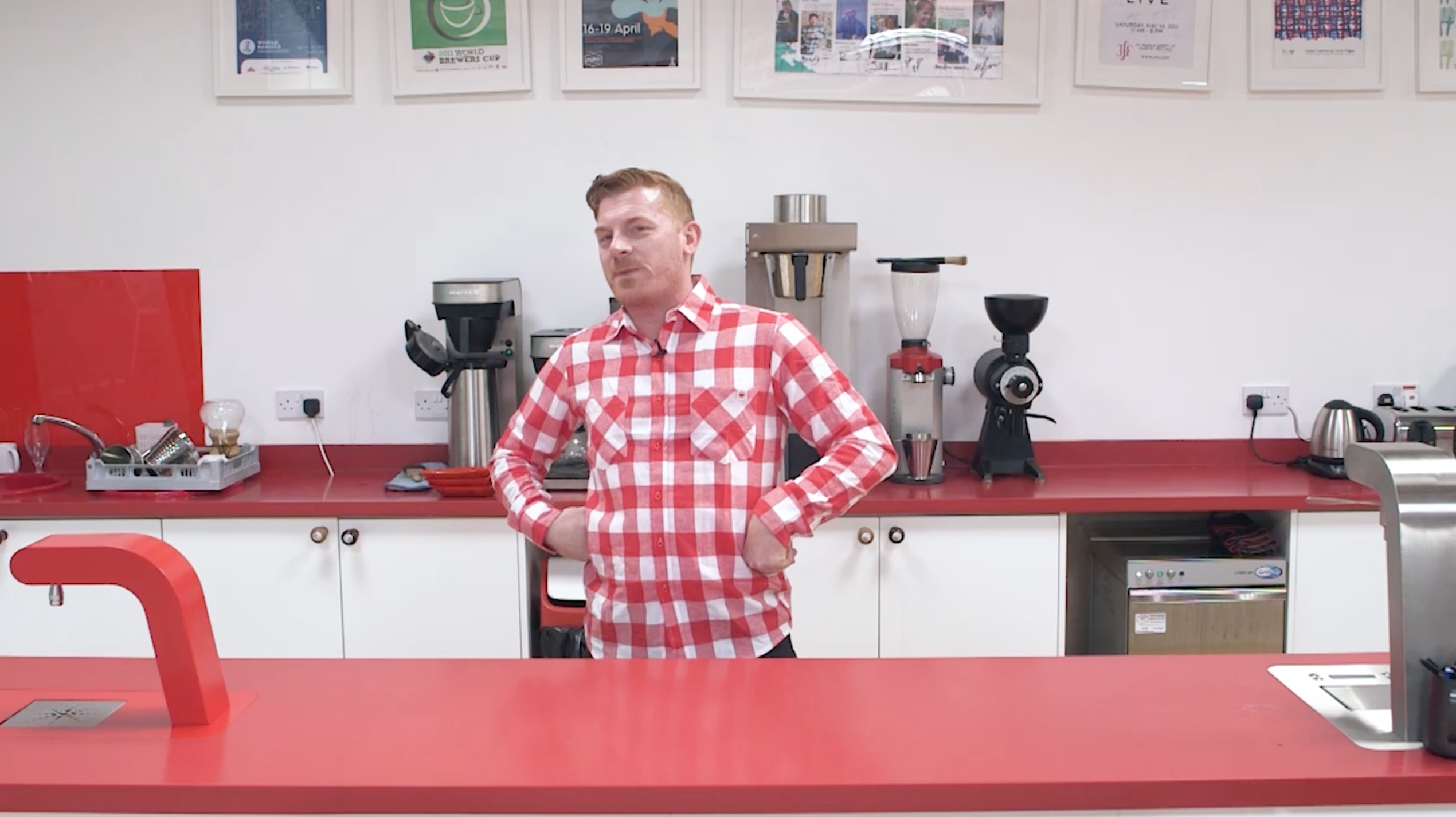
Monday Jul 03, 2017
Episode 451 on Monday the 3rd of July, 2017. Bolivia Pañuni Family
Monday Jul 03, 2017
Monday Jul 03, 2017
This coffee comes from the family of a producer we know from previous years, Estanislao Pañuni. Whereas Estanislao is in charge of the main lot of coffee, this coffee is his family's project (but Estanislao does look after the processing for them).
The coffee's grown at an altitude of between 1,800 and 1,850 metres above sea level near the town of Irupana in the Sud Yungas province of Bolivia, and it's a mechanically washed and dry fermented mixture of Typica, Caturra and Catuai.
Estanislao is young, enthusiastic and a self-confessed coffee lover. (Just like me!) He started out in coffee with the job of controlling the fermentation process at the Coaraca Cooperative in Bolivia, and it was there that he really developed his skills as a coffee producer. Two years ago he decided he wanted to help his father, so he moved away from his day job to take on a role producing coffee with his dad. This coffee is the product of all that hard work, learning and family love.
In the cup this coffee is very sweet. I want you to think of a big bag of pic n' mix sweets that have been sprinkled with white sugar. That sweetness sits alongside a gentle citrus acidity in a very clean and silky cup.
- Country: Bolivia
- Department: La Paz
- Region: Yungas
- Province: Caranavi
- Town: Irupana town
- Producer: The Pañuni Family
- Altitude: 1,550–1,800 m.a.s.l.
- Varietal: Typica, Caturra and Catuai
- Ripe cherry colour: Red and Yellow
- Processing method: Washed
- Washing: Mechanical
- Fermentation: Yes, dry
- Fermentation time: 16–18 hours
- Drying method: Raised African beds
- Coordinates: 16°27′58″S / 67°27′17″O
CUPPING NOTES
Pic n' mix sweets, white sugar, citrus, clean, silky.
Clean cup: (1–8): 7
Sweetness: (1–8): 7
Acidity: (1–8): 6.5
Mouthfeel: (1–8): 6.5
Flavour: (1–8): 6
Aftertaste: (1–8): 6
Balance: (1–8): 6.5
Overall: (1–8): 7
Correction:(+36): +36
Total (max. 100): 88.5
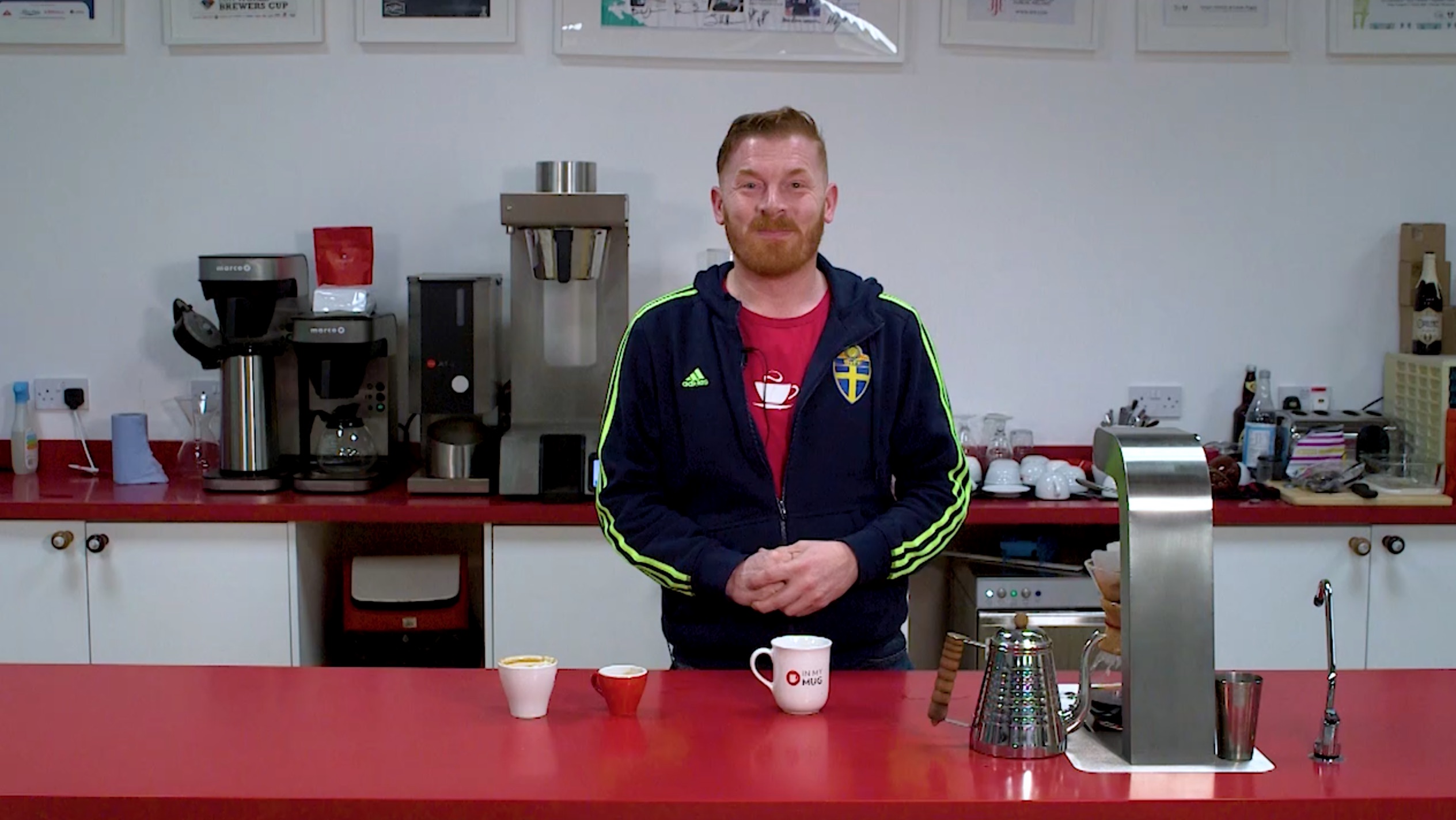
Monday Jun 26, 2017
Monday Jun 26, 2017
I've been working with Alejandro since 2008 and in that time our relationship has gone from strictly professional to Ale being one of my closest friends. He became involved in coffee in 2008 as he had just relocated to El Salvador from New York where he'd been working as a city banker. With his first son on the way and the hustle and bustle of New York no place to bring up a family the draw of home and El Salvador was just far too strong to ignore.
While looking for work in El Salvador, Ale decided to help his father with some of his business interests and investments. His father had inherited several coffee farms from his grandfather and was unsure what to do with them, one of the investments pricked Ale’s intent and this was a farm called Finca Argentina. The reason it really got Ale's attention was that he saw the farm once yielded loads of coffee but was producing a fraction of its old productivity. His father gave him permission to see what could be done to make the farm successful again
Ale found out the farm had been classified for a Q auction back in 2005. Thinking there may be a specialty buyer out there he and his cousin (who lived in London) went about sending samples to coffee roasters anywhere they could. 1 of those samples arrived at Hasbean Towers just like a lot of other samples do, but unusually I liked the coffee and the rest, as they say, is history.
Since then Finca Argentina has gone from strength to strength but not without bumps in the road. In 2013 they suffered the worst harvest on record, with only 70 bags harvested due to a massive issue with leaf rust. But with investment and hard work they have also bought a neighbouring farm and the future is amazingly bright for Ale, his father, his family and Finca Argentina.
The farm is based in the Apaneca-Ilamtepec mountain range, and is near the town of Turin in the Ahuachapán department. Sixteen people work on the farm during the non-picking season, maintaining and tending to the plants. This number of workers goes up to 50 people during the picking period. The altitude of the farm is 1,300 m.a.s.l.
This coffee comes from the highest part of the farm called San Jorge, which is about three manzanas in size and ranges from 1,300 to 1,350 metres above sea level. It's a very hilly part of the farm, so it's difficult to pick the coffee there.
Historically, the Owner's Selection coffee came from San Jorge; Alejandro told me his grandfather used to reserve some coffee for his personal enjoyment. I find it interesting that, from all the farms his grandfather used to own (over 250 manzanas' worth of farm), he picked San Jorge to provide the coffee he wanted to drink himself.
The coffee is 100% Bourbon, as 70% of plant stock in El Salvador is. This heirloom varietal is one of the reasons why coffee from this country is right up amongst some of the best in the world. They have the perfect climate and conditions for this low yielding, high maintenance strain.
In the cup expect masses of milk chocolate mixed with sweet caramel, and a green apple acidity that’s like biting into a Granny Smith apple.
- Country: El Salvador
- District: Ahuachapán
- Municipality: Ahuachapán
- Nearest city: Turin
- Farm: Finca Argentina
- Owner: Alejandro Martinez
- Tablon: San Jorge
- Altitude: 1,350 m.a.s.l.
- Varietal: Bourbon
- Processing method: Washed
CUPPING NOTES
Milk chocolate, sweet, caramel, green apple, Granny Smith.
Clean cup: (1–8): 7
Sweetness: (1–8): 7
Acidity: (1–8): 6
Mouthfeel: (1–8): 7
Flavour: (1–8): 7
Aftertaste: (1–8): 6
Balance: (1–8): 7
Overall: (1–8): 7
Correction: (+36): +36
Total: (max. 100): 90
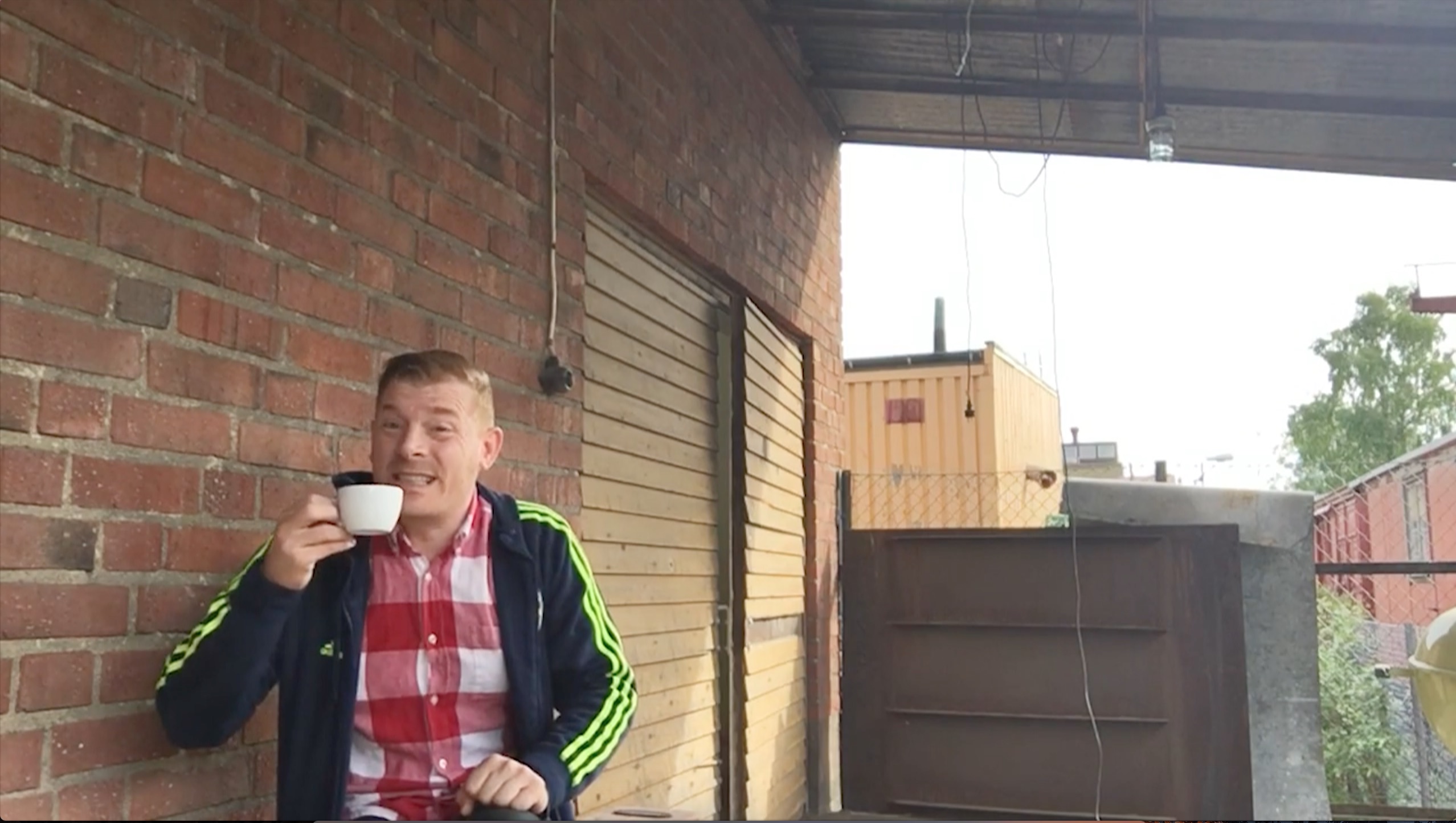
Monday Jun 19, 2017
Monday Jun 19, 2017
This is a coffee grown by the amazing Gillio Francesa Ferraro, a mature guy whom I met on my trip to Costa Rica a couple of years ago. We have a rule at Hasbean that if you're over 40 you can be a character (under 40 and "being a character" just makes you weird). Well, Gillio is the perfect example of a character. The first thing he said to me was that my belly looked as if I ate too much, and that I should lose some weight. I was in the midst of exercising and dieting; his brutal honesty was refreshing, if not a little quirky.
The thing that made me smile was that he was driving an old Jeep that was falling apart (he told me it was from the '60s). The best part was that the engine was a Dorman engine built in Stafford, UK. My father-in-law and two brothers-in-law all work at the factory, and it was amazing to be in a foreign location and yet see something so linked to home.
The name for this coffee in previous years has been a bit of a long one and you might have looked at it and thought, 'oof! Steve that's a bit of a long one!' but I've shortened it a little this year, but let me explain what the different parts mean...
'Costa Rica', I'm sure you can guess, is the country, and then 'Zarcero' is the micro-region/canton of Costa Rica that the coffee comes from.
'Finca La Casa' is the name of the farm that the coffee is grown on.
'Yellow honey' is the processing method, which is a variant of the pulped natural process, and then – finally – 'Caturra' is the varietal of the coffee.
This is not your typical Costa Rican coffee by the way, forget all that has come before; this is a unique cup. It's a Caturra coffee, and is grown at an altitude of 1,700 metres above sea level.
Gillio has two farms in Costa Rica. This one is called Finca La Casa (which just means 'farm at home'), and it can be found in the western valley area of Zarcero. The land around his house is rugged and difficult to farm. Gillio manages to get the very best out of it by working the land every day, even at the age of 83. I hope I'm half as active as he is when I get to that age!
In the cup expect a lovely sweetness, think white sugar with a spoon of extra sugar added. The complexity comes from it’s floral tones, think jasmine and coffee blossom. But the finish is what really makes this coffee, caramelised sugar with a creamy finish, think Creme Brûlée with a lovely toffee note.
- Country: Costa Rica
- Region: Western Valley
- Province: Alajuela
- Micro-region: Zarcero
- Farm: Finca La Casa
- Producer: Gillio Francesa Ferraro
- Farm size: 2 hectares
- Altitude: 1,700 m.a.s.l.
- Varietal: Caturra
- Workers: 20 harvest pickers, 4-5 farm workers, and 2 mill workers
- Pulping: 'Penagos' technology from Colombia – fully washed mechanical elimination of mucilage
- Processing method: Yellow honey
- Drying method: Raised African beds
CUPPING NOTES
White sugar, floral, jasmine, coffee blossom, caramelised sugar, Creme Brûlée, toffee.
Clean cup: (1–8): 6
Sweetness: (1–8): 8
Acidity: (1–8): 7
Mouthfeel: (1–8): 6.5
Flavour: (1–8): 6.5
Aftertaste: (1–8): 6
Balance: (1–8): 6
Overall: (1–8): 7
Correction: (+36): +36
Total: (max. 100): 89
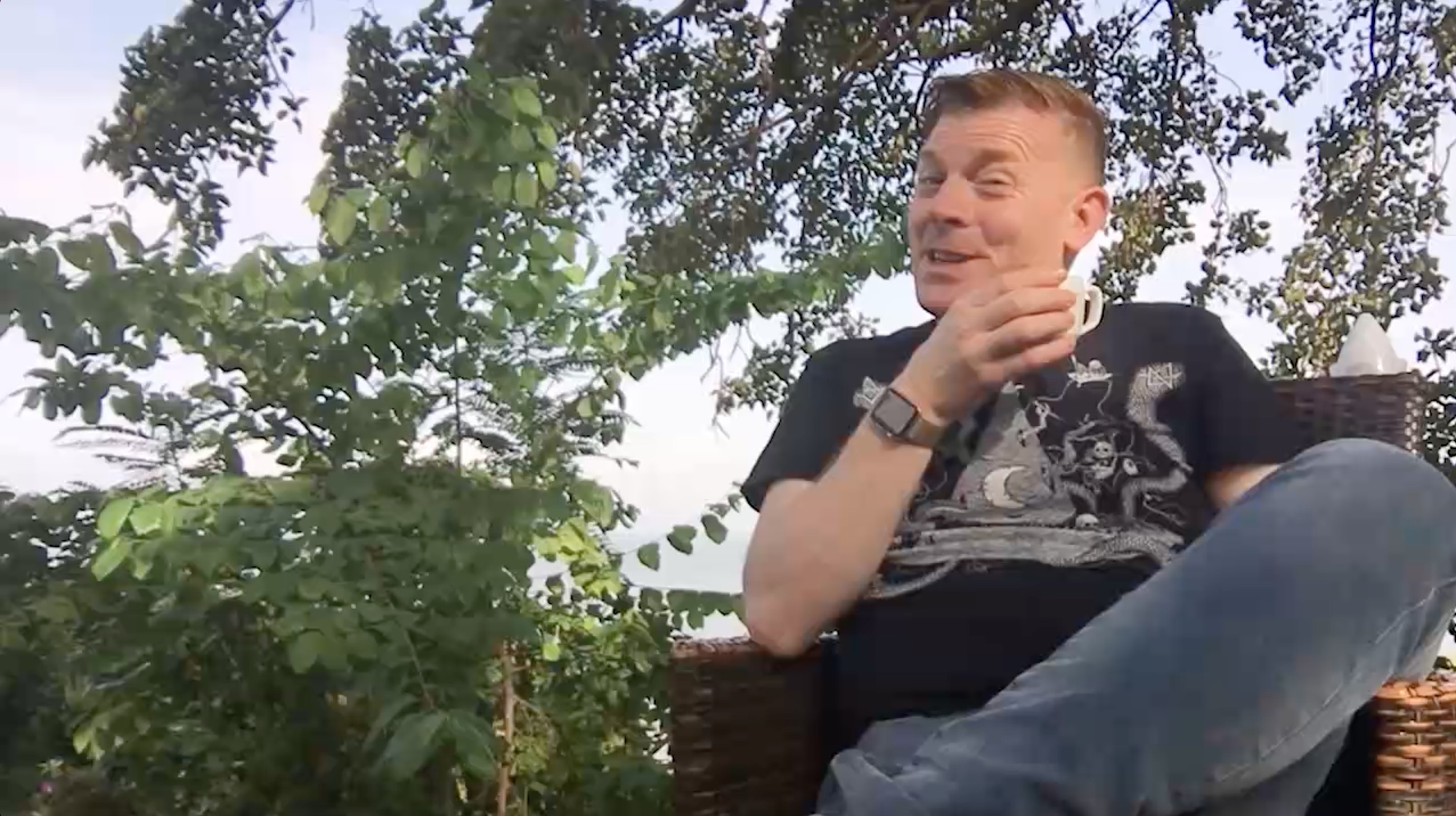
Monday Jun 12, 2017
Monday Jun 12, 2017
Wenago woreda is located in Yirgacheffe district, Gedeo Zone in the ‘Southern Nations, Nationalities & Peoples’ (SNNP) region of Ethiopia. Over a number of years the region has developed a distinguished reputation for fine coffees, producing some of the most sought-after microlots in world.
The combination of high altitude (up to 2,200m in some areas), fertile soil, consistent & plentiful rains, and an abundance of local knowledge are all contributing factors to the high status of Yirgacheffe coffees.
The indigenous ‘heirloom’ or 'wild' varietals - which grow wild in Ethiopia - are responsible for the unique flavour notes which make for an unusual but beautifully refined cup, usually characterised by strong citric acidity, sweet chocolate and floral/herbal notes of lavender, jasmine, bergamot & thyme.
Ripe cherries are delivered to the Wenago wetmill for careful sorting and pulping, before fermentation for 36-48 hours, depending on the climactic conditions. After this point the parchment coffee is thoroughly washed and graded by bean density before being dried in the sun on raised African beds for 12-15 days (until the ideal moisture level has been reached).
In the daytime the parchment needs to be raked and turned periodically to ensure a consistent drying process. The coffee is also covered between 12pm and 3pm to protect it from the hot sun, and at night time to protect it from rainfall and moisture. Once the coffee has dried to the right level it is transported to Addis Ababa for dry-milling, grading, sorting and handpicking, before being bagged in GrainPro for export.
In the cup there's white sugar and lemon juice, if only there was a shoulder of pancake too! This coffee has a really delicate body with a tiny edge of spice on the finish.
- Country: Ethiopia
- Region: Yirgacheffe
- Zone: Gedeo
- Area: Chirecha Kebele
- Mill: Wenago
- Varietal: Indigenous wild varietals
- Processing method: Washed
- Fermentation: Yes
- Fermentation time: 36-48 hours
- Drying method: Raised African beds
- Drying time: 12-15 days
- Altitude: 1,750–1,850 m.a.s.l.
- Rainfall: 1,800 - 2,000 mm avg per annum
- Soil: Fertile, red-brown, well drained.
- Producers: 650 farmers with an average of 2 hectares of land each
CUPPING NOTES
White sugar, lemon juice, delicate, spice.
Clean cup: (1–8): 7
Sweetness: (1–8): 6.5
Acidity: (1–8): 7
Mouthfeel: (1–8): 6.5
Flavour: (1–8): 7
Aftertaste: (1–8): 6
Balance: (1–8): 6.5
Overall: (1–8): 6.5
Correction:(+36): +36
Total: (max. 100): 89

Sunday Jun 04, 2017
Sunday Jun 04, 2017
This coffee comes from the town of Irupana in the Yungas region of Bolivia. It's grown at an altitude of between 1,500 and 1,750 metres above sea level, and is a mechanically washed and dry fermented mixture of Red and Yellow Typica, Caturra and Catuai.
Estanislao Pañuni is young, enthusiastic and a self-confessed coffee lover. (Just like me!) He started out in coffee with the job of controlling the fermentation process at the Coaraca Cooperative in Bolivia, and it was there that he really developed his skills as a coffee producer. Two years ago he decided he wanted to help his father, and so he moved away from his day job to take on a role producing coffee with his dad. This coffee is the product of all that hard work, learning and family love.
In the cup I immediately get loads of caramel followed up by sweet yellow fruits, think peaches and plums. The cup finishes with nectarine and an aftertaste of dark chocolate.
- Country: Bolivia
- Department: La Paz
- Region: Yungas
- Province: Caranavi
- Town: Irupana town
- Farm name: Jeivert
- Producer: Estanislao Pañuni
- Altitude: 1,500-1,750 m.a.s.l.
- Varietal: Typica, Caturra and Catuai
- Ripe cherry colour: Red and Yellow
- Processing method: Washed
- Washing: Mechanical
- Fermentation: Dry fermentation for 16-18 hours
- Drying: African beds for 7–8 days
- Coordinates: 16°27′58″S 67°27′17″O
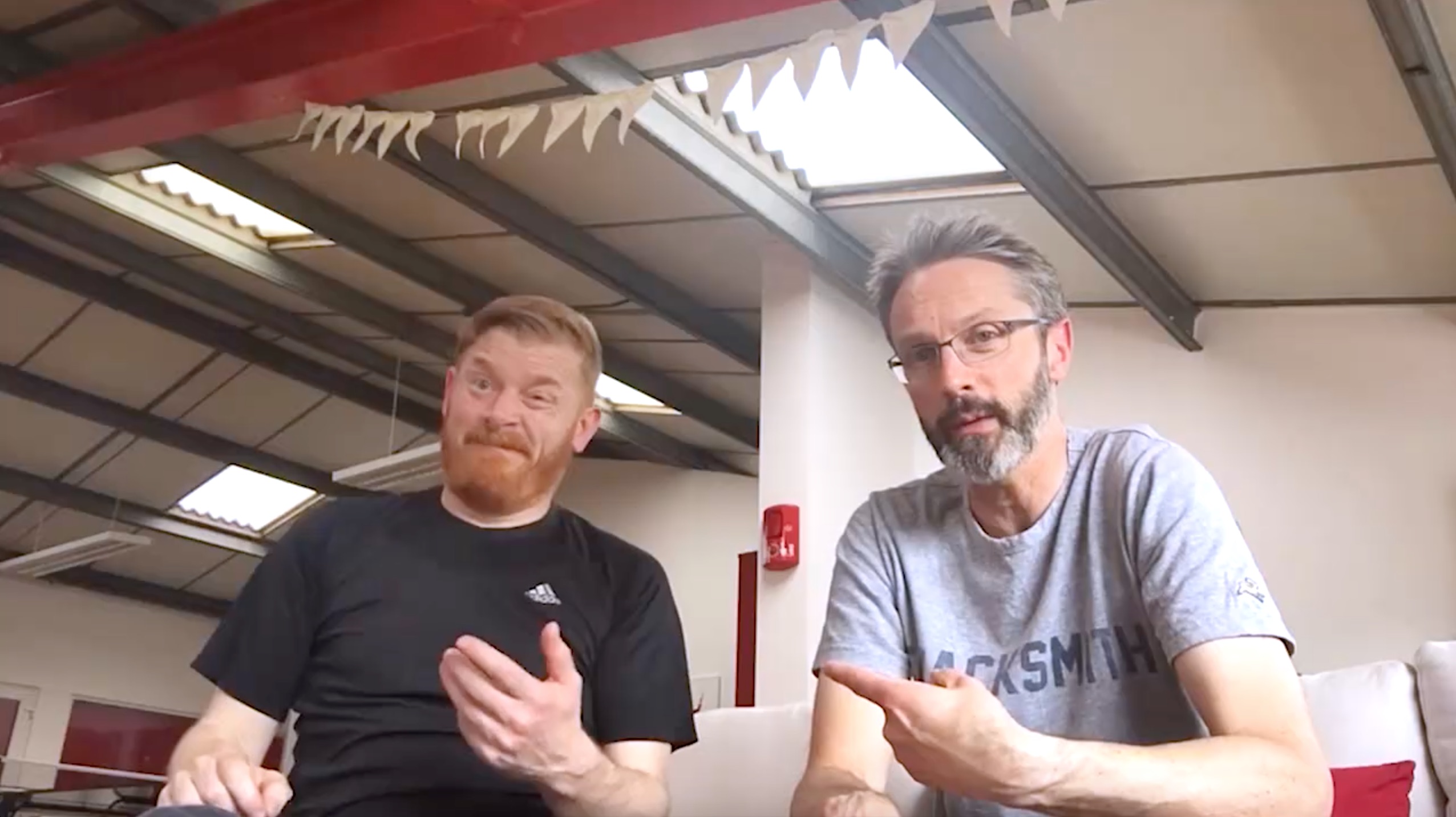
Sunday May 28, 2017
Episode 446 on Monday the 29th of May, 2017. Malawi Msese AAA + AA Washed
Sunday May 28, 2017
Sunday May 28, 2017
Msese wetmill is part of South East Mzima Cooperative Society and is one of a few washing stations that form the coop in the Msese zone in North-central Malawi. The mill processes an average of 15,000kg of coffee cherries per year sourced from 60 farmers of the Ngoni & Tonga tribes. These producers are subsistence farmers for whom coffee represents an important part of the local economy. They also grow maize, beans and soya - though premium specialty coffee remains a vital cash crop allowing these farmers to provide for their families.
The Mzuzu Co-operative Union’s aim is that all small-holder farmers are guaranteed...
- Accommodation which is iron-roofed, cement-floored, plastered and well-ventilated
- Food security (three decent meals a day)
- Adequate clothing and bedding for their families
- Education for their children
The coffee is wet processed, where the fully ripe cherries are...
- Pulped
- Fermented for 12-48 hours (depending on climatic conditions)
- Washed
- Dried slowly over 2-3 weeks on raised African beds
The coffee is then delivered to the dry mill where it is rested in parchment before being hulled, cleaned, graded by bean size and handpicked before being bagged in GrainPro for export.
Msese is located on the Southern tip of the South Viphya Plateau, between the Kahingina Forest Reserve & the Viphya Complex Forest Reserve. The altitude generally ranges between 1,200 & 1,300 metres above sea level with some areas rising up to 1,700m. To the east is Lake Malawi, one of the ‘African Great Lakes’ constituting the Great Rift Valley which runs through the east of the continent.
Malawi is one of the world’s least developed countries. In many places the roads are poor, making the area very difficult to reach in the rainy season. Electricity is scarce and access to drinking water and medical facilities still presents a challenge to the local population.
In the cup this starts off very floral with a delicate fruit sweetness, this shifts towards kiwi fruit before finishing with a big glug of chocolate milk.
- Country: Malawi
- Region: Northern
- Zone: Msese
- Mill: Msese
- Coop: South East Mzima
- Contributing farmers: 60
- Altitude: 1,453 m.a.s.l.
- Varietals: Geisha, Catimor & Nyika
- Grade: AAA + AA
- Processing method: Washed
- Drying method: Raised African beds
- Drying time: 2-3 weeks
- Average rainfall: 1,200 - 2,000mm average per year
- Soil: Acidic sandy loam & clay
CUPPING NOTES
Floral, sweet, kiwi, chocolate milk.
Clean Cup: (1-8): 7.5
Sweetness: (1-8): 6.5
Acidity: (1-8): 7
Mouthfeel: (1-8): 6.5
Flavour: (1-8): 7
Aftertaste: (1-8): 6
Balance: (1-8): 7
Overall: (1-8): 7.5
Correction: (+36): +36
Total: (max 100): 91
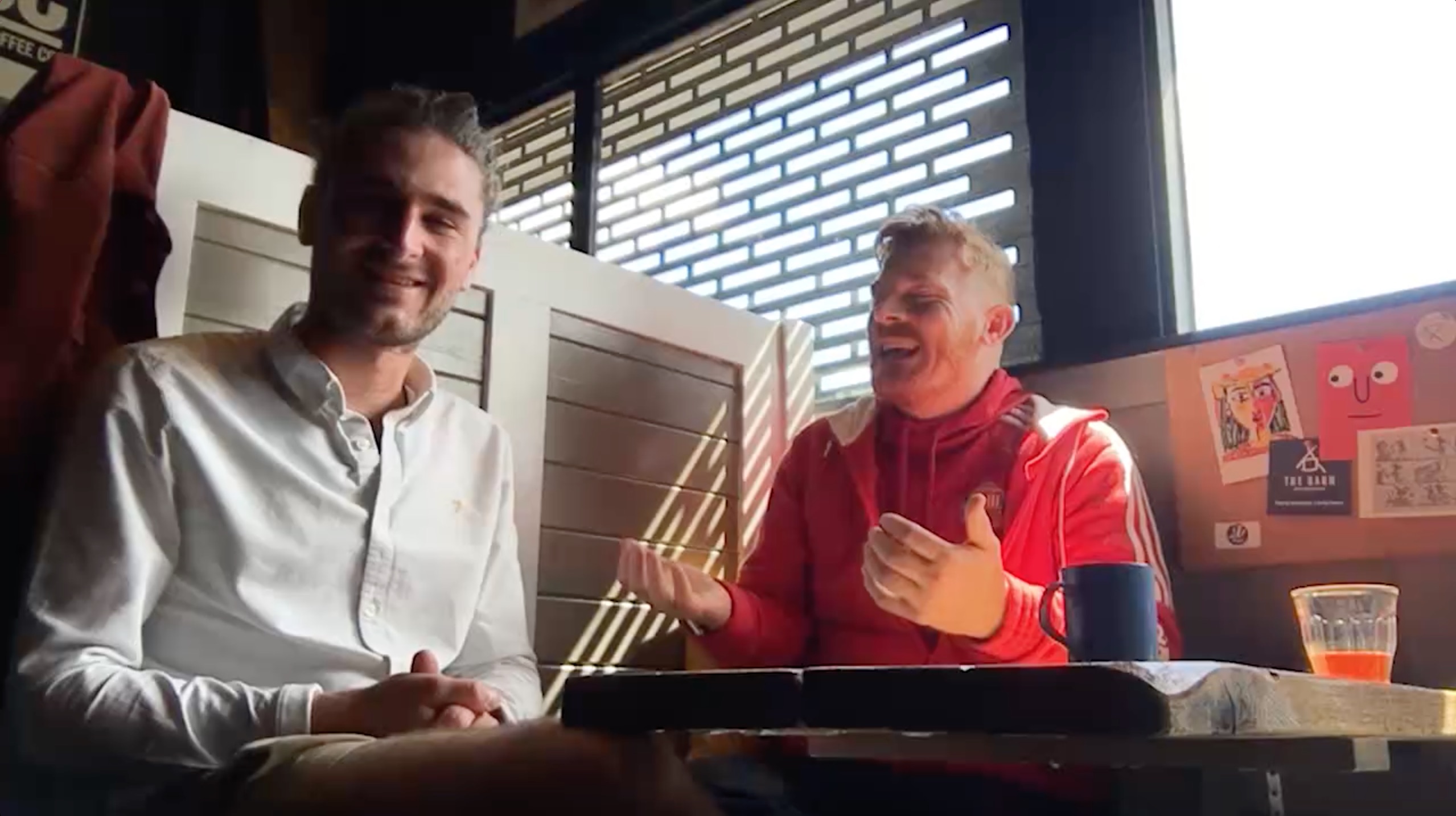
Monday May 22, 2017
Episode 445 on Monday the 22nd of May, 2017. Bolivia David Vilca Washed
Monday May 22, 2017
Monday May 22, 2017
A big big Bolivian favourite here at Hasbean, I am so pleased to see this coffee back for an amazing SIXTH year! It’s a big favourite for me, and I know this is also true for many of you too.
The farm is located in the colony of Bolinda in the North Yungas region of Bolivia, near to the town of Caranavi. The farm doesn't actually have a proper name and so is named after the gentleman that runs it, David Vilca. This is quite common in Bolivia: farms are often named after an individual or the family running them.
David migrated from La Paz to the farm fifteen years ago, after a career in mining left him with damaged hearing. He bought this twelve hectare farm as security for himself and his family, to make sure that they could support themselves. When he took over, he only had one acre planted with coffee (it was of the Criolla varietal). After two years, David was comfortable with coffee farming. He was becoming increasingly interested in it, and so he decided to extend the coffee plantation. He now has five acres of coffee (and we have bought the coffee from all five acres). He has very little outside help with the farm, except from direct family: his wife helps him greatly.
The varietals on the farm are Caturra, Catuai, Typica and Criolla. The farm is under constant improvement. David is now removing much of the Criolla and focusing on Typica and Catuai, for cup quality reasons. This coffee comes from the Caturra and Typica parts of the farm.
I have a really good relationship with David and you might remember 2 years ago we did something a little different with the coffee's price. I've visited David a couple of times now and when I was there I thought he was being rude to me by ignoring me, or not responding when I spoke to him. Last time I visited, though, I found out that David's hearing had become damaged whilst he was working as a miner before he made the move into coffee.
In the past the exporter had given David some money to get hearing aids, but he spent the money on satellite TV (for his wife – who hasn’t been in that situation!) so the year before last we paid for two hearing aids while we were there, so that he could hear properly again and enjoy my smooth and soothing English voice ; )
We thought that would be the last of it. But when I last visited David didn’t have his hearing aids in. He told us that they were not good while he was picking what to wear, but also that he couldn’t afford the batteries. So we left him with cash for a microphone hearing-device for around his neck, and $200.00 USD for batteries. This worked out at 7p per bag for all the coffee we buy from him, and I didn't pick up the tab – you lovely people did! So a big THANK YOU from me, and also, of course, from David!
http://www.hasblog.co.uk/the-cost-of-hearing
David's farm is between 1,550 and 1,650 metres above sea level, this is a mechanically washed coffee that underwent full wet fermentation for 16 hours before being dried in a mechanical dryer for 48 hours.
In the cup this a very sweet, creamy, well structured and chuggable coffee...think about a liquid chocolate covered papaya that you can just drink and drink and drink. This is 1 of those coffees where you finish the mug without noticing, go to take another sip and then just have to brew more.
- Country: Bolivia
- Region: Illimani
- Farmer: David Vilca
- Altitude: 1,550 - 1,650 m.a.s.l.
- Varietals: Caturra and Typica
- Total farm size: 7 hectares
- Coffee growing area: 5 hectares
- Processing method: Washed
- Washing method: Mechanical
- Fermentation: Full wet
- Fermentation time: 16 hours
- Drying method: Mechanical dryer
- Drying time: 48 hours
- Rainfall period: Nov–February
- Average temperature: 8°C ≤ 19°≥ 30°C
- Soil type: Clay and shale-y
- Other crops grown: Citrus fruits (orange and tangerine), and avocado
CUPPING NOTES
Chocolate, papaya, creamy.
Clean Cup: (1-8): 6
Sweetness: (1-8): 8
Acidity: (1-8): 6
Mouthfeel: (1-8): 6.5
Flavour: (1-8): 7
Aftertaste: (1-8): 6.5
Balance: (1-8): 6.5
Overall: (1-8): 6.5
Correction:(+36): +36
Total (max 100): 89

Sunday May 14, 2017
Sunday May 14, 2017
This 100% Red Bourbon was processed at Buf Café’s Nyarusiza washing station, at 1,743 metres above sea level in the south of Rwanda.
Buf Café was founded in 2003 by Epiphanie Mukashyaka, a dynamic businesswoman and a source of inspiration to countless other female entrepreneurs in Rwanda’s coffee sector and beyond. Buf is now managed by Epiphanie and her son, Samuel Muhirwa, who is taking an increasingly active role in running and expanding the business. The title ‘Buf’ derives from ‘Bufundu’, the former name of the region in which its washing stations are located.
Epiphanie, who was born in 1959, was widowed during the 1994 genocide - which claimed over 800,000 lives in just 3 months - but chose not to leave her family’s small coffee farm. Instead she set about rebuilding and developing her business and with it the local community. She started Buf Café in 2003, when she established Remera washing station with a loan from the Rwandan Development Bank and the assistance of the USAID-financed PEARL project.
This transformational programme was aimed at switching the focus in the Rwandan coffee sector from an historic emphasis on quantity to one of quality - and so opening up Rwanda to the far higher-earning specialty coffee market. The programme and its successor, SPREAD, have been invaluable in helping Rwanda’s small-scale coffee farmers to rebuild their production in the wake of the devastating 1994 genocide and the 1990s world coffee crash.
Buf Café now owns two coffee washing stations - Remera and Nyarusiza - as well as its own coffee trees, and buys coffee cherries from as many as 264 surrounding smallholder farmers, as well as three different local cooperatives! At Buf’s Nyarusiza washing station in 2014 there was a total of 798,685kg of cherry delivered throughout the season, approximately 5% of which was delivered by trees owned by Epiphane and her family. The remaining quantity of delivered cherry comes from farmers within the community surrounding the washing station.
Buf has very strong links with the local communities that supply it, providing jobs for 116 at Nyarusiza during peak harvest (May - June/July) and 9 permanent positions. A further 127 people are employed at Remera during harvest, with 10 permanent positions. (2014 figures) At the end of each season Buf will share any surplus profits with both the cooperatives that it works with and its washing station managers.
The majority of the small farmers in the area have an average of only 300 coffee trees (less than a quarter of a hectare) and use some of their land to cultivate other crops such as maize and beans to feed themselves and their families. Most of their income from the sale of coffee is used to take their children to school, pay for medical care and for investment in livestock such as a cow for milk, both for use in the home and for sale locally.
The level of care that all Buf washing stations take over their processing is impressive. Cherries are hand-picked only when fully ripe and then pulped that same evening using a mechanical pulper that divides the beans into three grades by weight.
After pulping, the coffee is fermented overnight (for around 12-18 hours) and then graded again using flotation channels that sort the coffee by weight (the heaviest – or A1 – usually being the best). The wet parchment is then soaked in water for around 24 hours to stabilise moisture content.
As at most washing stations in Rwanda, women do the majority of the hand sorting. This takes place in two stages - on the covered pre-drying tables and on the drying tables. Washed beans are moved from the wet fermentation tanks onto the pre-drying tables, where they are intensively sorted under shade for around six hours. The idea is that greens (unripes) are still visible when the beans are damp, while the roofs over the tables protect the beans from the direct sunlight. Next, the beans are moved onto the washing station’s extensive drying tables for around 14 days (depending on the weather), where they are sorted again for defects, turned regularly and protected from rain and the midday sun by covers, ensuring both even drying and the removal of any damaged or ‘funny looking’ beans. After reaching 11% humidity, the coffee is then stored in parchment in Nyarusiza’s purpose-built warehouse prior to final dry-milling and hand-sorting at the dry mill in Kigali. Each coffee that arrives is also cupped by the Q-graders of Buf’s exporting partner, Rwashocco.
Lots are first separated by collection point (farmers usually hail from around 3 km distance from each collection point) and are also separated out by days. Upon delivery as cherry, the coffee receives a paper ‘ticket’ that follows the lot through all its processing. This ticket bears the date of harvest, the collection point name, and the grade (A1, A2 etc) of the coffee – for instance, if a coffee lot is called ‘Lot 1- 06/04 - A1’, this means it was the first lot processed on April 4 and the grade is A1. This simple but effective practice is a crucial tool in controlling quality and ensuring the traceability of lots.
In the cup this coffee has a big red wine richness but it’s accompanied by lime acidity, a really unique combo! There’s also a shoulder of black tea and some cola on the finish.
- Country: Rwanda
- Province: Southern
- District: Nyamagabe
- Sector: Kamegeri
- Nearest town: Between Butare and Cyangugu
- Washing station: Buf Nyarusiza
- Varietal: Red Bourbon
- Processing method: Fully washed
- Drying method: Sun dried on raised beds
- Altitude: Farms 1,700-1,900 m.a.s.l. Washing Station 1,743 m.a.s.l.
- Owner: Epiphanie Mukashyaka
- Average size of farms: .25 hectares

Sunday May 07, 2017
Episode 443 on Monday the 8th of May, 2017. Peru La Flor del Cafe Washed
Sunday May 07, 2017
Sunday May 07, 2017
Coffee came to Peru in the mid 1700s and was most likely introduced by Dutch immigrants. The Dutch brought the Typica variety which still dominates especially amongst the older farms and micro-farms. The first coffee plantings were in Chinchao, Huanuco in Selva Central and disseminated from there to the Northern (Cajamarca) and Southern (Cusco and Puno) regions of the country. Peru had its first coffee shop in 1771 in Lima and started exporting coffee in 1887.
Peru is a country which has great potential but for particular reasons it is extremely hard to find 87+ coffee landed in consuming countries. The potential is there: the country is the 8th largest producer of coffee in the world, has plenty of farms at and above 1600 and 1800 meters, and has predominantly Typica and Bourbon varieties.
But sadly this is not the case, high-end coffee out of Peru is very scarce due to the challenges they face. Most farmers own a couple of hectares only and are in remote areas. Many times their farms are 4 hours by foot from the nearest town and the town could be 8 hours by truck from the nearest port. This means coffee can sit at the farm unnecessarily for extended periods of time after it is dried. During the drying season climate conditions tend to be very humid with precipitation. Without proper storage, such as GrainPro, coffee will gain moisture and destabilize cup-quality
But this is (of course) not the case here, deliciousness! This coffee comes from the San José de Lourdes district in the Cajamarca region of Peru. The capital city of Cajamarca is Cajamarca (love it when that happens) and sits in Peru's northern highlands, in the Andes Mountains.
La Flor del Cafe is 1 of 3 farms owned by Apolinar Arevalo where he grows Caturra and Pache at 1,800 metres above sea level.
In the cup dark chocolate is up front riding shotgun with cinder toffee, some Brazil nuts are sat in the back along with their good friend Mr walnut, and there's a little pear as it cools.
- Country: Peru
- Region: Cajamarca
- Province: San Ignacio
- District: San José de Lourdes
- Farm: La Flor del Cafe
- Farmer: Apolinar Arevalo
- Altitude: 1,800 m.a.s.l.
- Varietals: Caturra & Pache
- Processing System: Washed

Monday May 01, 2017
Episode 442 on Monday the 1st of May, 2017. Bolivia Taypiplaya Neri's Lot
Monday May 01, 2017
Monday May 01, 2017
Neri and her husband Juan live in Caranavi town, they are a young couple that have only just married and every day they drive to Taypiplaya to source their cherries as at the moment they are saving money to buy their own land.
Juan is the son of Carmelia Aduviri who we've enjoyed coffee from in the past (archive) and Juan grew up helping her on the farm, delicious coffee production certainly runs in this family!
When Neri visits Taypiplaya she basically sources the best cherries that she can, that's what makes this Neri's Lot. She visits various producers who are selling their crop and selects the ones she thinks are best, Taypiplaya is a region where producers are used to delivering cherry to cooperatives because they belong to a cooperative, but here Neri fulfils that role.
Many cooperatives in Taypiplaya have closed because of bad management or through failure due to not paying their producers, it's thanks to people like Neri that we still get to enjoy the delicious coffees that this area produces.
The producers of Taypiplaya live around on the top of the mountains that surround the town and deliver their cherries to locations in the town every night. The colony is located in the municipality of Caranavi to the north east of La Paz, coffee is grown between altitudes of 1,600 and 1,850 metres above sea level and is a mix of red and yellow Caturra and Catuai.
In the cup this starts out with sweet and juicy lime before shifting towards a Cadbury’s Fudge bar, smooth milk chocolate and buttery fudge. On the finish a little bit of pineapple is doing a boogie with some flowers.
- Country: Bolivia
- Municipality: Caranavi
- Colony: Taypiplaya
- Altitude: 1,600 - 1,850 m.a.s.l.
- Varietals: Caturra and Catuai
- Processing method: Washed
- Washing method: Mechanical
- Fermentation: Full wet
- Fermentation time: In cherry for 8 hours
- Drying method: Mechanical
- Drying time: 43 hours

Sunday Apr 23, 2017
Sunday Apr 23, 2017
Finca El Fuerte was named in honor of the 'Fort of Samaipata', which is a unique ruin in Bolivia. El Fuerte de Samaipata (Fort Samaipata), also known simply as 'El Fuerte', is an archaeological site and a UNESCO World Heritage site located in the Santa Cruz department of Florida province. It is situated in the eastern foothills of the Bolivian Andes, and it's a popular tourist destination for Bolivians and foreigners alike. It is served by the nearby town of Samaipata.
It is not actually a military fortification, but it is generally considered a pre-Columbian religious site, built by the Chané people, who were a pre-Inca culture of Arawak origin. There are also ruins of an Inca city built near the temple; the city was built during the Inca expansion to the southeast. Both Incas and Chanés suffered several raids from Guarani warriors, who invaded the region from time to time. Eventually, the Guarani warriors conquered the plains and valleys of Santa Cruz, and destroyed Samaipata. The Guaranis dominated the region well into the Spanish colonial period.
The Spaniards also built a settlement near the temple, and there are remains of buildings of typical Andalusi Arabic architecture. The Spaniards abandoned the settlement and moved to the nearby valley, where the town of Samaipata is currently located. The archaeological site at El Fuerte is unique, and it encompasses buildings of three different cultures: Chanés, Incas and Spaniards.
AgriCafe Buena Vista has been sourcing coffee from small coffee producers for three decades. However, the steady decline of coffee production has put at risk the sustainability of the business and the future of coffee production in Bolivia; it's at risk of disappearing completely. Faced with these circumstances and crises, AgriCafe assumes the challenge of boosting the production and supporting the Bolivian coffee growing. AgriCafe has undertaken the development of 'Fincas Buena Vista', which is home to new coffee plantations with a sustainable model based on three pillars: economical, social and environmental.
Besides Caturra and Typica (both of which are traditional varieties in Bolivia), Agricafe has ventured into new exotic varieties to plant on its farms, and is also implementing new processes post-harvest. Finca El Fuerte is the first coffee farm in the Samaipata region that's focusing on producing specialty coffees.
Finca El Fuerte is a bet to develop coffee agriculture in this new region which has all the conditions to produce spectacular high quality coffees, and it's a new opportunity for many farmers to start producing specialty coffee. Through a lot of effort in the new plantations, and a lot of effort in caring for the harvest and the beans' processing, it has managed to produce coffees like Geisha. AgriCafe has utilised a careful and delicate process, and it has achieved a coffee that highlights the attributes of sweetness, complexity and quality in the cup.
In the cup expect mushed up yellow fruit (but in a good way). Think apricot and peach puree sweetness, flavour and texture that ends with a white grape finish.
- Country: Bolivia
- Province: Florida
- Department: Santa Cruz
- Farm: El Fuerte
- Altitude: 1,450–1,700 m.a.s.l.
- Varietal: Caturra
- Process: Pulped Natural
- Total hectares of the farm: 35 hectares
- Latitude: S 18°11’57’’ W 63°45’31’
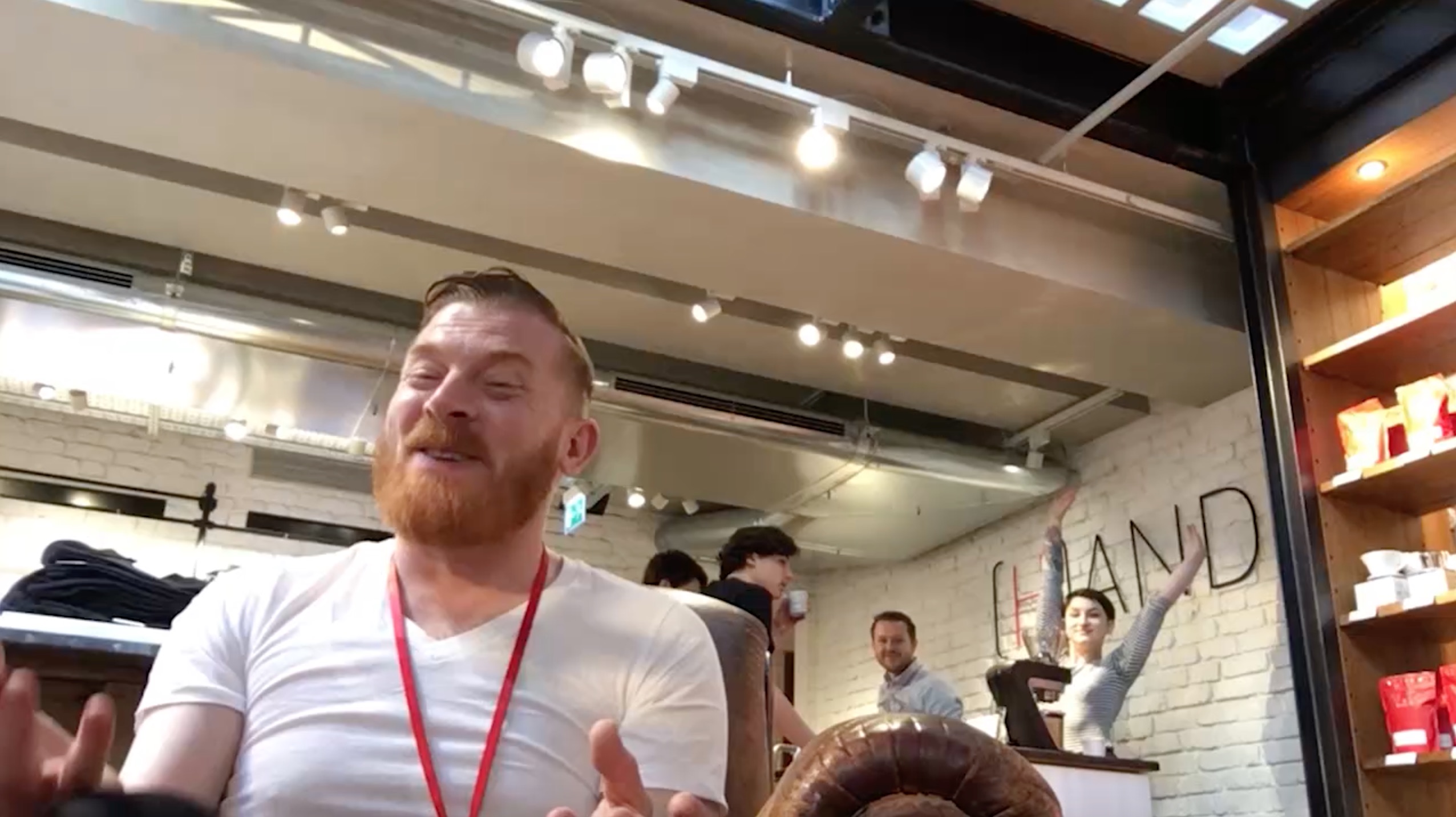
Sunday Apr 16, 2017
Sunday Apr 16, 2017
This farm and its coffee sparked a massive change in what I thought I knew about coffee. I remember the first time I ever cupped this coffee: time stood still as the cup opened my mind to what great coffee is and can be. Gabriel, the farmer, continues to produce great coffee year on year. We have access to the best of the crop this year – and have had for the last three years – on a European exclusive. This is due to the special relationship we, and our importers, enjoy with Gabriel.
Fazenda Cachoeira da Grama has been in the Carvalho Dias family since 1890 and recently celebrated its 109th crop. It is located in the São Paolo state, just three miles from the border with the Minas Gerais state. It enjoys the typical characteristics of the mountainous Mogiana and Sul de Minas regions, and it's located at an altitude of 1,100–1,250 metres above sea level.
Gabriel de Carvalho Dias is one of Brazil’s leading agronomists. His family owns several farms, and they border each other in this area. With a total area of 417 hectares, Fazenda Cachoeira da Grama has a coffee plantation area of 165 hectares. Everything is done manually on this farm since its topography does not allow any kind of mechanisation. The mill is located close to the spa town of Poços de Caldas, which is 45 minutes away from the farm.
The Carvalho Dias family consider social and environmental sustainability to be very important. The farm has a programme of planting native species of trees to maintain a better ecological balance. There is also a school, a club and an official-size soccer field for the employees and workers. There are 47 houses, all with modern facilities. The wastewater is treated in order to avoid polluting the stream that runs across the farm. The farm has a small hydroelectric plant and only buys energy during the peak harvest. Some of the original Bourbon varietal trees are as much as 108 years old.
The beans are harvested on a sheet and prepared by the ‘natural’ process, where cherries are taken and dried in the sun.
This comes from the rare Canario varietal, which is a Bourbon mutation that originated in Brazil. You can find out more about it here, but what you will notice in the cup is that it adds complexity and acidity compared to Bourbon.
In the cup this is a really creamy coffee. It has a digestive biscuit sweetness and gentle orange acidity on the finish.
- Country: Brazil
- Region: Mogiana (São Paolo)
- City: São Sebastião da Grama
- Farm: Fazenda Cachoeira da Grama
- Processing: Natural
- Varietal: Canario
- Altitude: 1,100–1,250 m.a.s.l.
- Owner: Lidolpho de Carvalho Dias and family
CUPPING NOTES
Creamy, digestive biscuit, orange.
Clean cup: (1–8): 6.5
Sweetness: (1–8): 6
Acidity: (1–8): 6.5
Mouthfeel: (1–8): 7
Flavour: (1–8): 6
Aftertaste: (1–8): 7
Balance: (1–8): 6
Overall: (1–8): 7
Correction (+36): +36
Total (max. 100): 88
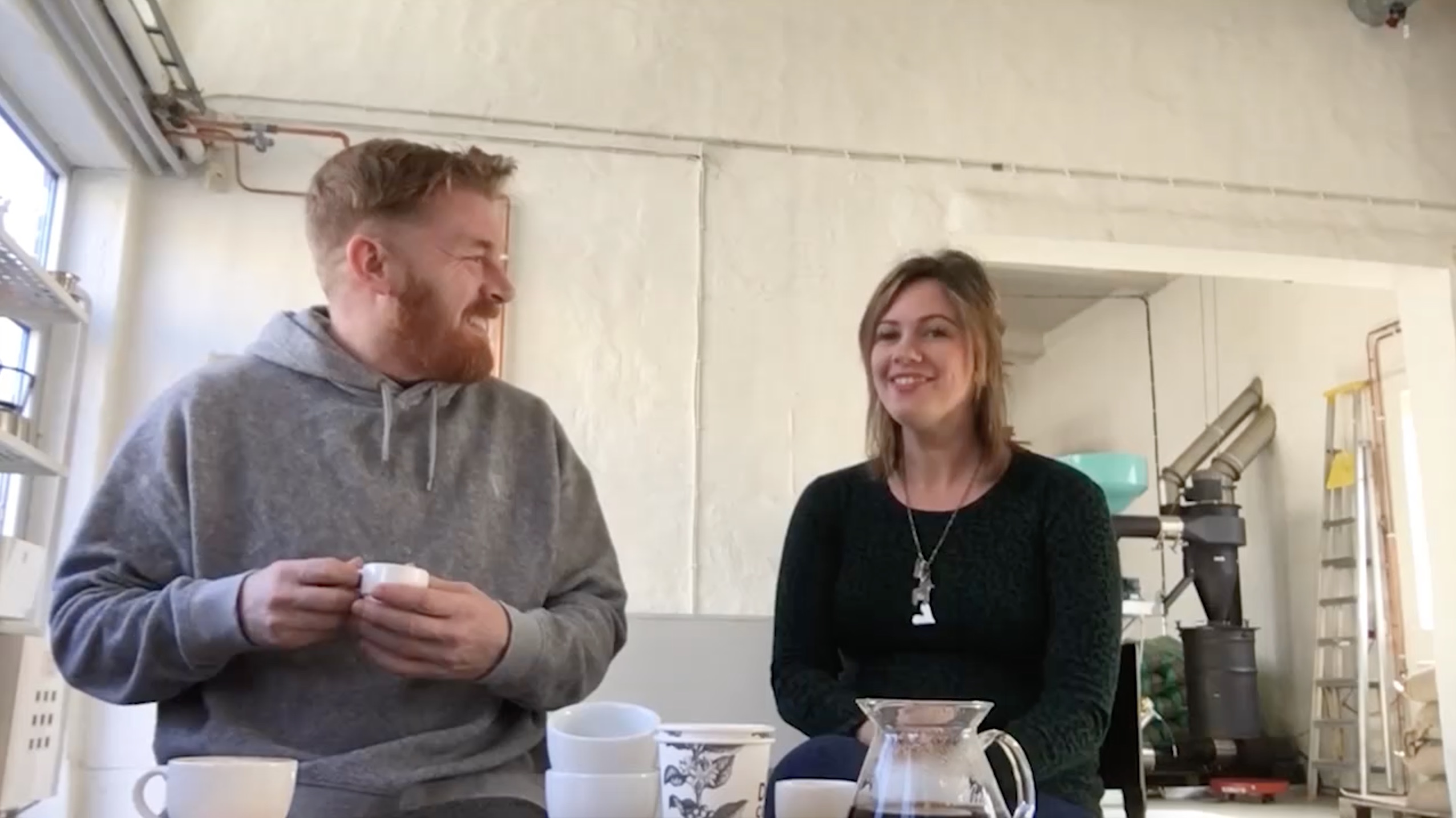
Sunday Apr 09, 2017
Sunday Apr 09, 2017
In the early 1920s Arturo Silva bought land located in Apaneca, Ahuachapán, and planted coffee trees on one of the highest summits of the Apaneca-Ilamatepec Mountain Range. He named the farm San Cayetano. Years later it was inherited by Luis Arturo Silva, father of Rafael Silva, the current owner.
San Cayetano is a 15 hectare, 100% Bourbon, farm that sits at 1,500 meters above sea level in Ahuachapán. The Bourbon plants were planted fifty years ago and are a traditional varietal for El Salvador: one I am always pleased to see. Among its attributes are the vigour and strength of its branches and the volume of the foliage, but most of all it just grows really really well in that region.
The name Rafael Silva might be a familiar one to lovers of El Salvadorian coffee. Rafael and Carmen are the owners of one of my favourite coffees, La Fany. They also own the Siberia farm, and we have bought from them for many years.
I first came across coffee from San Cayetano on a visit to El Salvador a few years ago, Rafael and Carmen very kindly gave me a day of their time and took me to see their lovely new mill and to cup some coffees. This was one of the coffees that jumped off the table at me and is an outstanding example of what Carmen and Rafael can do and so I knew I had to have it.
In the cup expect a really silky coffee that’s full of redcurrants and brown sugar, with cherry and chocolate on the finish.
- Country: El Salvador
- Department: Ahuachapán
- Municipality: Apaneca
- Farm: San Cayetano
- Farmer: Rafael and Carmen Silva Hoff
- Farm Size: 15 Hectares
- Coffee growing area: 15 Hectares
- Annual Production: 17,000 kg
- Workers: 50 during the peak harvest
- Average Temperature: 18 degrees centigrade
- Average Annual Rainfall: 2300mm
- Altitude: 1,500 m.a.s.l.
- Processing Method: Red Honey
- Varietal: Bourbon
CUPPING NOTES
Redcurrant, brown sugar, cherry, chocolate.
Clean Cup: (1-8): 6.5
Sweetness: (1-8): 6
Acidity: (1-8): 7
Mouthfeel: (1-8): 6.5
Flavour: (1-8): 6.5
Aftertaste: (1-8): 6.5
Balance: (1-8): 6
Overall: (1-8): 6
Correction: (+36): +36
Total: (max 100): 87
Roasting Information
Medium dark - just into the start of second crack.
"Quick Look" Guide
Redcurrant, brown sugar, cherry, chocolate.

Sunday Apr 02, 2017
Sunday Apr 02, 2017
The Musasa Dukunde Kawa cooperative has three washing stations lying high in Rwanda’s rugged northwest. Nkara –the cooperative’s third washing station -was built by the co-op in 2007with profits earned from their first two washing stations, Ruli & Mblima, and a bank loan. The washing station lies at 1,800 metres above sea level and serves farmers within the Ruli Sector of Rwanda’s Northern Province.
Much of the success of Musasa Dukunde Kawa can be attributed to the transformational PEARL programme of which it was a part. The project switched the focus in the Rwandan coffee sector from an historic emphasis on quantity to one of quality, thus opening Rwanda up to the much more highly-valued specialty coffee market. The programme and its successor, SPREAD, have been invaluable in helping Rwanda’s small-scale coffee farmers to rebuild their production in the wake of the devastating 1994 genocide and the 1990s world coffee crash.
Most of the small scale producers with whom Musasa Dukunde Kawa works own less than a quarter of a hectare of land, where they cultivate an average of only 250-300 coffee trees each as well as other subsistence food crops such as maize and beans. The cooperative gives these small farmers the chance to combine their harvests and process cherries centrally. Before the proliferation of washing stations such as Nkara, the norm in Rwanda was for small farmers to sell semi-processed cherries on to a middleman, and the market was dominated by a single exporter. This commodity-focused system -coupled with declining world prices in the 1990s - brought severe hardship to farmers, some of whom abandoned coffee entirely
Today, it’s a different picture. Farmers who work with Musasa Dukunde Kawa have seen their income at least double, and the co-op produces some outstanding lots for the specialty market year after year. ‘Musasa’ means ‘a place to make a bed’ and ‘Dukunde Kawa’ means ‘let’s love coffee’ in Kinyarwanda - a reference to the power of coffee to improve the lives of those in rural communities.
Musasa Dukunde Kawa now owns three washing stations and is one of Rwanda’s larger cooperatives, with 2,148 members as of the 2014/15 crop year. Nkara washing station began serving local farmers in 2007-8 and today buys and processes cherries from between 15-20%of the cooperative’s membership. The numbers and paperwork involved are substantial!With the help of the Wet Mill manager, 4 permanent employees and around 53 seasonal workers, Nkara has grown to process 2 containers of exportable coffee lots.
The level of care that Musasa Dukunde Kawa Nkara takes over the processing is impressive. Cherries are hand-picked only when fully ripe and then pulped that same evening using a mechanical pulper that divides the beans into three grades by weight.
After pulping, the coffee is fermented overnight (for around 12 hours) and then graded again using flotation channels that sort the coffee by weight (the heaviest – or A1 – usually being the best). The wet parchment is then soaked in water for between 18 and 24 hours to stabilise moisture content.
As at most washing stations in Rwanda, women do the majority of the hand sorting. This takes place in two stages - on the covered pre-drying tables and on the drying tables. Washed beans are moved from the wet fermentation tanks onto the pre-drying tables, where they are intensively sorted under shade for around six hours. The idea is that greens (unripes) are still visible when the beans are damp, while the roofs over the tables protect the beans from the direct sunlight. Next, the beans are moved onto the washing station’s extensive drying tables for around 14 days (depending on the weather), where they are sorted again for defects, turned regularly and protected from rain and the midday sun by covers, ensuring both even drying and the removal of any damaged or ‘funny looking’ beans. After reaching 11% humidity, the coffee is then stored in parchment in Nkara’s purpose-built warehouse prior to final dry-milling and hand-sorting at the Cooperative’s brand new dry mill in Kigali. Each coffee that arrives is also cupped by Musasa’s team of expert cuppers along with the Q-graders of their exporting partner, Rwashocco.
Lots are usually separated out by days. Upon delivery as cherry, the coffee receives a paper ‘ticket’ that follows the lot through all its processing. This ticket bears the date of harvest and the grade (A1, A2 etc) of the coffee – for instance, if a coffee lot is called ‘Lot 1-06/04 -A1’, this means it was the first lot processed on April 4 and the grade is A1. This simple but effective practice is a crucial tool in controlling quality and ensuring the traceability of lots.
In addition to the great work that the cooperative does with quality improvement and assurance, they also have various social programs that greatly contribute to the livelihoods of their members. School fees and medical insurance are provided along with training in quality and productivity in cultivation of coffee. The cooperative also gives cows as bonus payment for quality cherry. These cows not only produce milk for cheese, which helps improve diets and provides supplementary income for farmers, they also provide fertiliser for coffee! The cooperative has also invested in a fleet of tailor-made bikes that help smallholders deliver their cherry to the cooperative's washing stations.This not only reduces the labour required for producers but also means that it is easier to deliver cherry on the same day as picking, which helps ensure greater quality.
In the cup expect something bright and shiny, lime and white sugar with a light but very clean body. On the finish there’s lime zest and a shoulder of white tea.
- Country: Rwanda
- Province: Northern
- District: Gakenke
- Sector: Ruli
- Washing station: Musasa Nkara
- Owner: Musasa Dukunde Kawa Cooperative (2,100+ smallholder farmers)
- Varietal: Red Bourbon
- Processing method: Fully washed & sun dried on raised beds
- Washing station altitude: 1,800 m.a.s.l.
- Altitude of farms: 1,800 to 2,000 m.a.s.l.
- Average size of farm: 0.25 hectares
CUPPING NOTES
Lime, white sugar, lime zest, white tea.
Clean Cup: (1-8): 6.5
Sweetness: (1-8): 6.5
Acidity: (1-8): 7
Mouthfeel: (1-8): 6
Flavour: (1-8): 6
Aftertaste: (1-8): 6
Balance: (1-8): 6
Overall: (1-8): 7
Correction: (+36): +36
Total: (max 100) : 87
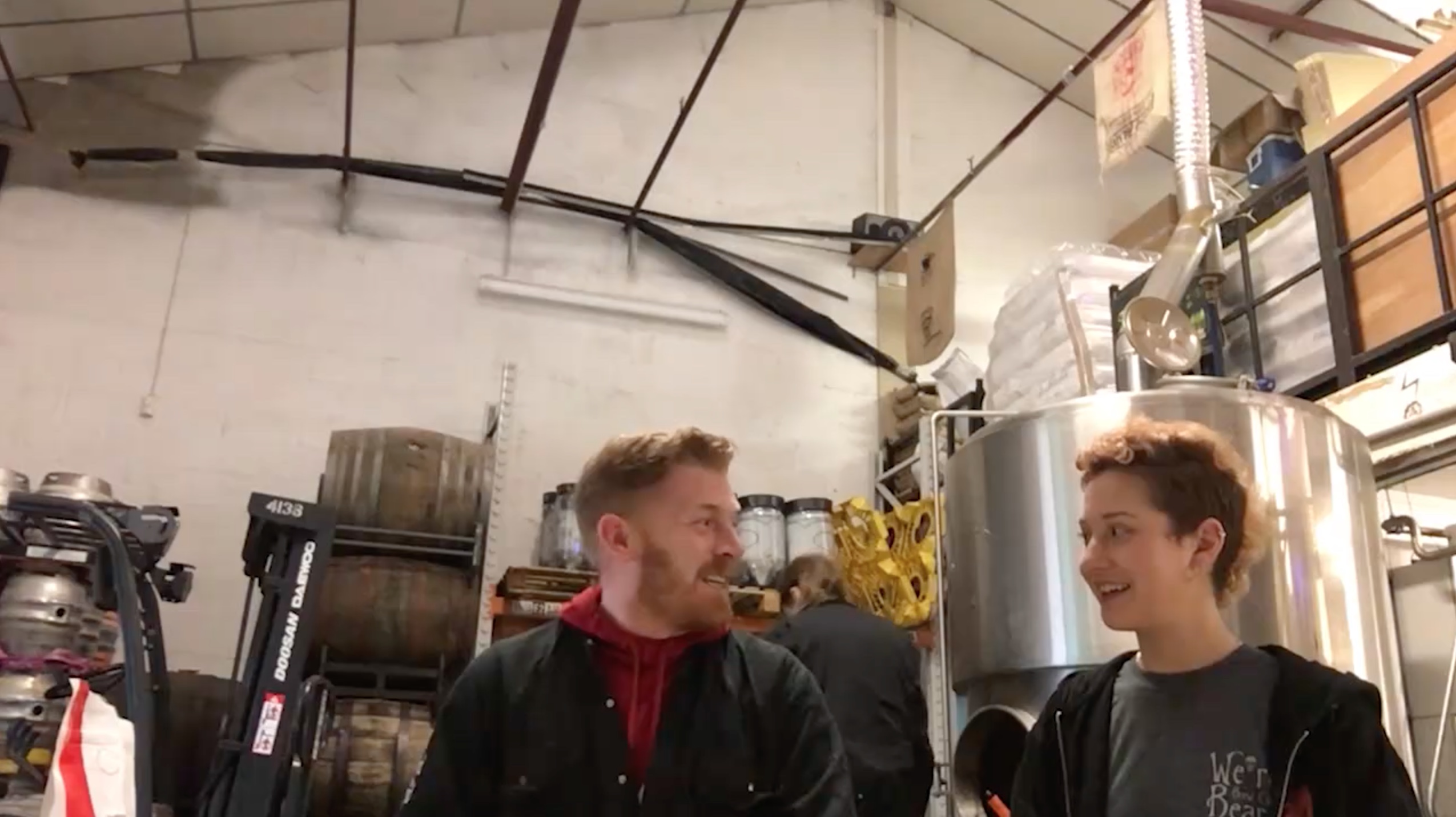
Sunday Mar 26, 2017
Sunday Mar 26, 2017
This coffee's farm is located in a region that is well known for some of the most interesting coffees, as well as some of the most renowned coffees, in Guatemala, Antigua.
It is produced by Alex Illescas, and he grows it on his grandfather's farm. His grandfather has owned the farm for just over 50 years, working the land and selling the cherry along as a commodity coffee because they have no mill with which to process their own coffee. The farm is located at 1,400 metres above sea level in Ciudad Vieja.
Alex had an idea that he wanted to produce amazing, interesting and challenging coffee for the specialty market. So, with the blessing of his grandfather and with help from his uncle, he used the farm to experiment with varietals and processing methods to see what might improve cup quality. This coffee is the result of those experiments. It's dangerous to do something like this, so the lots are small – but they're large enough that this could have caused financial hardship if something had gone wrong. The lucky thing is that, in the cup, this gamble has really paid off.
When I visited Alex you could see how excited he was, and you could see how proud he was about the coffee. All the time I was there I was praying the coffee would be as good as the story, and I'm pleased to report that it's even better.
In the cup expect a boozy body that's like sherry mixed with cream, a candied lemon and white sugar sweetness that finishes off with blueberry muffin.
- Country: Guatemala
- Region: Antigua
- City: Cuidad Vieja
- Farm: Los Jocotales
- Farmer: Alex Illescas
- Altitude: 1,400 m.a.s.l.
- Variety: Yellow Caturra
- Processing System: Natural
CUPPING NOTES
Creamy, sherry, candied lemon, white sugar, blueberry muffin.
Clean Cup: (1-8): 6.5
Sweetness: (1-8): 7
Acidity: (1-8): 6.5
Mouthfeel: (1-8): 6.5
Flavour: (1-8): 7
Aftertaste: (1-8): 7
Balance: (1-8): 6.5
Overall: (1-8): 7
Correction: (+36): +36
Total: (max 100): 89
Roasting Information
Medium Dark - drop just as you reach second crack.
"Quick Look" Guide
Creamy, sherry, candied lemon, white sugar, blueberry muffin.

Sunday Mar 19, 2017
Sunday Mar 19, 2017
The Vieira Ferreira family has specialised in coffee production for three generations and is now headed by Adolfo Vieira Ferreira, whose attention to detail and commitment to producing top-class specialty coffee is second to none.
The farm employs a high number of skilled workers to carry out most of the production process by hand, in order to guarantee quality. They do everything, from soil preparation for planting to hand-picking the ripe cherries. In return, the farm looks after its workers. Permanent workers and their families live on-site and are provided with schooling for their children, professional training and environmental education.
The farm also takes environmental sustainability seriously and abides by all Brazilian environmental protection laws. Its native forests are set aside as protected reserves and are often visited by tourists, school children and ecologists. The farm also regularly plants new trees, particularly around its water sources, in order to maintain the local ecosystem.
Passeio’s coffee is picked by hand only when the cherries reach an advanced stage of ripeness, to avoid processing green beans.
Every now and again a coffee varietal comes along and I know nothing about it, every time it happens I'm reminded why I love coffee varietals and their complexity so much. It’s always kinda been my thing; I went through a spell of writing lots of them up (see here).
This varietal of this coffee is Arara and it originates from the crossing between Yellow Catuai and Obatã (Hybrid of Timor) varieties. It was developed on an experimental farm of the Procafé Foundation in Varginha, Brazil.
The experiment has been part of an on going project in Brazil where many new varietals are being discovered – Procafé found that Arara is one of the most successful to date in both yield and in cup quality – so much so that the Arara seeds are the most requested at Procafé for new seedlings! It’s excelled so much even at this early experiment phase.
The next stage of the experiment is to see how it performs on farms and on a larger scale in the planting dissemination.
Arara is a yellow fruiting coffee, with a high resistance to leaf rust, good productivity and high quality potential.
In the cup dark chocolate is dominant in a big big way, like high % cocoa dark chocolate. There's also brown sugar, hazelnut, walnut and dark chocolate is back on the finish but this time it's very Cadbury's Bournville.
- Country: Brazil
- Region: Minas Gerais
- City: Alfenas
- Farm: Fazenda Passeio
- Owner: Adolfo Henrique Vieira Ferreira
- Varietal: Arara
- Processing: Pulped Natural
- Altitude: 1,100–1,200 metres above sea level
CUPPING NOTES
Dark chocolate, brown sugar, hazelnut, walnut, Bournville.
Clean cup: (1–8): 6
Sweetness: (1–8): 7
Acidity: (1–8): 6
Mouthfeel: (1–8): 7
Flavour: (1–8): 6
Aftertaste: (1–8): 6
Balance: (1–8): 6
Overall: (1–8): 6
Correction: (+36): +36
Total: (max. 100): 86
Roasting Information
Medium dark - just before second crack starts.
Quick Look Guide
Dark chocolate, brown sugar, hazelnut, walnut, Bournville.

Sunday Mar 12, 2017
Sunday Mar 12, 2017
Due to the complications within the Bolivian coffee industry, many of the smaller Bolivian farms we have worked with in the past are no longer producing coffee. Whilst this has created some challenges for us, it has had a much more significant impact on our exporting partners AgriCafe, who have been working with these growers for many years. As a result AgriCafe have decided to begin farming for themselves, in an effort to demonstrate what can be achieved with the application of more modern techniques and a scientific farming approach.
AgriCafe now manage seven farms, and these are collectively known as the Buena Vista Project. Finca Don Carlos is the second farm of the project, and it was planted in Caranavi in 2014.
The farm is named in honour of Don Carlos, the oldest and most unconditionally awesome employee of AgriCafe. He was there at the start of the specialty coffee trend and, together with Pedro, helped to build the wet mill in Caranavi. To show their gratitude for all his good work, the company decided to give him partnership of the farm.
Finca Don Carlos is a very unique farm planted with all the care and dedication of Don Carlos himself. The farm sits at an altitude of between 1,546 and 1,650 metres above sea level, and it is located in Caranavi, which is the capital of the Caranavi province in the Yungas region of Bolivia.
In the cup this is super clean and transparent, think white grape juice with extra spoons of sugar mixed in. In the aftertaste there are delicate apricots and summer fruits. Super long aftertaste.
- Country: Bolivia
- Region: Yungas
- Municipality: Caranavi
- Colony: Bolinda
- Farm: Finca Don Carlos
- Producer: Don Carlos
- Altitude: 1,546 - 1,650 m.a.s.l.
- Farm size: 18.6 hectares, 6.63 hectares that grow coffee
- Processing method: Washed
- Varietal: Yellow Catuai
- Washing: Mechanical
- Fermentation: Full wet
- Fermentation time: approx. 15 hours
- Drying: Mechanical
- Drying time: 40 hours
CUPPING NOTES
White grape, white sugar, apricot, summer fruits.
Clean cup: (1–8): 7
Sweetness: (1–8): 7
Acidity: (1–8): 7
Mouthfeel: (1–8): 6
Flavour: (1–8): 7
Aftertaste: (1–8): 6
Balance: (1–8): 7
Overall: (1–8): 6
Correction: (+36): +36
Total (max. 100): 89
Roasting Information
Medium dark – just up to the first pops of second crack.
"Quick Look" Guide
White grape, white sugar, apricot, summer fruits.

Sunday Mar 05, 2017
Sunday Mar 05, 2017
This coffee's farm is located in a region that is well known for some of the most interesting coffees, as well as some of the most renowned coffees, in Guatemala, Antigua.
It is produced by Alex Illescas, and he grows it on his grandfather's farm. His grandfather has owned the farm for just over 50 years, working the land and selling the cherry along as a commodity coffee because they have no mill with which to process their own coffee. The farm is located at 1,400 metres above sea level in Ciudad Vieja.
Alex had an idea that he wanted to produce amazing, interesting and challenging coffee for the specialty market. So, with the blessing of his grandfather and with help from his uncle, he used the farm to experiment with varietals and processing methods to see what might improve cup quality. This coffee is the result of those experiments. It's dangerous to do something like this, so the lots are small – but they're large enough that this could have caused financial hardship if something had gone wrong. The lucky thing is that, in the cup, this gamble has really paid off.
They chose the honeying process, because all they needed for that was a pulper and some space to dry the coffee. Alex used his uncle's roof on his home in town as the drying patio, and they took it in turns to keep the coffee turning and moving.
When I visited Alex you could see how excited he was, and you could see how proud he was about the coffee. All the time I was there I was praying the coffee would be as good as the story, and I'm pleased to report that it's even better.
In the cup you're going to find a fruity and sweet coffee, at the start there's cherry and a little bit of mixed berry tied up with a brown sugar sweetness and malty finish.
- Country: Guatemala
- Region: Antigua
- City: Cuidad Vieja
- Farm: Los Jocotales
- Farmer: Alex Illescas
- Altitude: 1,400 m.a.s.l.
- Variety: Red Catuai
- Processing System: Honey
CUPPING NOTES
Cherry, mixed berry, brown sugar, malt.
Clean Cup: (1-8): 6
Sweetness: (1-8): 7
Acidity: (1-8): 6
Mouthfeel: (1-8): 6
Flavour: (1-8): 7
Aftertaste: (1-8): 7
Balance: (1-8): 6
Overall: (1-8): 6
Correction: (+36): +36
Total: (max 100): 87
Roasting Information
Medium Dark - just to the start of second crack as you drop.
"Quick Look" Guide
Cherry, mixed berry, brown sugar, malt.
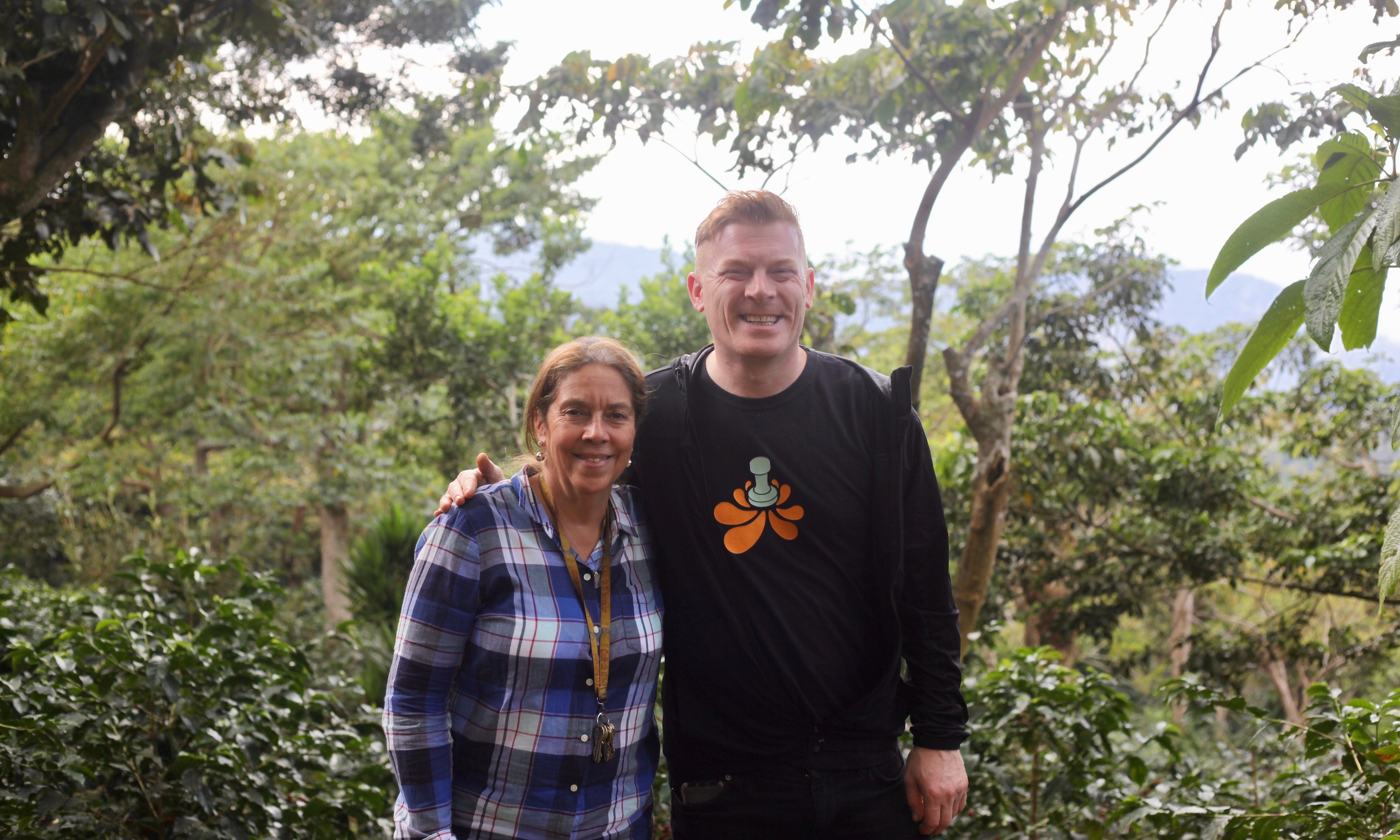
Sunday Feb 26, 2017
Sunday Feb 26, 2017
Finca San José is the pride and joy of the Rodríguez family, and is now in the hands of a fourth and fifth generation of coffee producers. The story begins in 1815, when José María Rodriguez and Josefina Rodriguez (great-grandparents) planted the first coffee trees with their own hands.
Through the generations, the farm has passed through the hands of many committed farmers like José's son Israel Rodriguez. He was then followed by Jose Maria Rodriguez, who took care of the farm until it came to Gloria Mercedes Rodriguez Fontán, the most recent owner.
Ever the strong woman, Gloria has overcome gender barriers in an industry that has historically been the province of men and personally supervises every step at the farm level. Gloria not only takes care of San José but, together with her siblings' support, she manages five other small farms which collectively add up to 38 hectares.
The mountain slopes of Finca San José are fully shaded by trees that help to maintain and preserve the crop and the surrounding environment. In addition to the trees' diversity, the farm is home to a variety of wild animals and birds, which can be seen in their natural habitat. San José is nested in the north-western slope of an extinct volcanic crater that holds inside it a small lagoon. The lagoon is named Nymph Lagoon, due to the abundance of water lilies.
San José has seventeen full-time workers performing several activities, such as shade tree and coffee pruning, vegetative tissue renewing, and weed control. All of this work is done skillfully by hand. Approximately 60 more seasonal workers assist in the harvest process, earning their livelihood from picking and selecting coffee cherries only at the peak of ripeness. The people who harvest coffee have extensive experience and share a commitment of growing a superior quality coffee.
Gloria believes in maintaining highly motivated staff; the farm's permanent workers are receiving almost 10% above the legal wage, while the seasonal workers received almost 50% more during harvest due to the importance of this specific task for the coffee's end quality.
One of Gloria’s major blessings is to have Antonio Avelino as her farm manager or 'mandador'. His level of commitment, knowledge and shared philosophy of quality makes him an integral part of this effort.
At Finca San José, coffee goes through extensive quality control in addition to being grown under standards that support specialty coffee production. The unique micro-climate conditions include an average altitude of 1,500 metres above sea level, an average temperature of 17°C, and rich and loamy clay soil; and the coffee is grown mainly to Bourbon variety.
Some other works done to the farm this past year included three foliar fertilizations and two soil fertilizations, including one of organic fertilizer named 'Huisil', which is based on soil studies to ensure specific requirements. Where possible, workers ply the farm with stem bending or 'agobio', and they perform coffee shade pruning to balance sunlight and shade requirements under sustainable levels. They also perform weed control, mainly manually.
One of Gloria’s commitments is to reinvest an important share of the economic benefits from this activity into the farms, impacting the people who toil the fields and maintaining the quality of the production chain from seed to cup.
In the cup this coffee hits you with Cherry Cola, both acidity and sweetness wise. It's so dominant that unless you look you will miss the cherry and chocolate finish, a delicious espresso.
- Country: El Salvador
- Department: Ahuachapán
- Municipality: Apaneca
- Nearest City: El Saitillal
- Farm: Finca San José
- Owner: Gloria Mercedes Rodriguez Fontán
- Farm Manager: Antonio Avelino
- Type of Shade: Pepeto, inga sp, and other native trees
- Processing Method: Washed
- Varietal: Red Bourbon
- Average Annual Rainfall: 2,100 mm
- Altitude: 1,500 m.a.s.l.
- Average Temperature: 17ºC
- Type of Soil: Clay loam
- Mill & company where lot was processed: Beneficio El Carmen, Agrícola San Agustín, S.A. de C.V.
- Fauna: Armadillo, gray fox, small wildcats, agouti paca, hawks, pocket gopher, magpie, turquoise-browed Motmot, among others.
- GPS Coordinates: Latitude: N 13º 52 52.3 / Longitude: W 89º 48 24.5
CUPPING NOTES
Cherry, chocolate, Cherry Cola.
Clean Cup: (1-8): 6
Sweetness: (1-8): 7
Acidity: (1-8): 6.5
Mouthfeel: (1-8): 6
Flavour: (1-8): 7
Aftertaste: (1-8): 6
Balance: (1-8): 7
Overall: (1-8): 6.5
Correction: (+36): +36
Total: (max 100): 88
Roasting Information
Medium dark - just up to the first pops of second.
"Quick Look" Guide
Cherry, chocolate, Cherry Cola.

Sunday Feb 19, 2017
Sunday Feb 19, 2017
La Pira is located in the high altitude Dota Valley of the Tarrazu region: an area that was known for producing great coffees. This relatively young estate is only 50 years old and is owned by the founder’s son, Carlos Urena Ceciliano. He has worked the farm for 18 years; however, he has worked in coffee all his life.
We first found this coffee in the Cup of Excellence in 2009, and we were pleased to be reunited with it only recently after a lot of effort and hard work. Last year year it proved tricky to secure, stretching both my pocket and patience, but it was well worth it, thankfully this year things were a little less stretchy!
After inheriting the family farm Carlos worked for many years as a certified organic coffee producer, but he realised doing so was just not possible on this farm. Organic coffee is good, but not possible for everyone. The yield was very very affected. So Carlos looked for alternatives, while still holding the organic principles very close to his heart. For instance, instead of using chemicals to control the weeds, sheep roam freely amongst the coffee plants and eat the weeds (and strangely leave the coffee plants alone). They work as automatic and mobile "fertilisation units" (nature’s a wonderful thing). This has eliminated the need for herbicides. This is the kind of thinking Carlos has about coffee.
When I visit the farm Carlos often tells me about how he wakes up in the middle of the night with an idea of how he can improve production, change the way the coffee is harvested and processed, and how systems can be improved upon. I too suffer from this type of sleep deprivation, relating to ideas popping into the head, so I can empathise about this.
During one of these late night bursts of inspiration, Carlos thought that using the coldest water he could would be the best way of processing the cherry. During the night the Dota Valley gets a really sharp, cold breeze, and it runs through the whole farm. He had noticed the way the water on the mill roof, which sprinkled from processing, was almost frosting up. So he created a sprinkling system and a zinc ramp that the water runs across before hitting the cherries in the fermentation tank.
I am convinced that these little details are what makes this coffee so very very special, and you can taste it in the cup. I don't think it’s the processing so much, but Carlos' care and attention to the very smallest detail.
We have chased this coffee ever since we first had it many years ago from the Cup of Excellence program. Due to its low yield it's been tough to get our hands on it, but I pestered the exporter we partner with in Costa Rica so much that I got my wonderful and wicked way! In every Skype call and every email I begged them to sort this one out. Even after visiting it wasn't easy, and what is here is a really small lot, but I think you will love it.
In the cup expect green apple like acidity, with delicate florals, mixed with caramel and toffee sweetness, a very special coffee.
- Country: Costa Rica
- Region: Tarrazú
- City: Santa María de Dota
- Farm: Finca La Pira
- Farmer: Carlos Ureña Ceciliano
- Farm size: 7.00 hectares
- Altitude: 1,650 m.a.s.l.
- Variety: Caturra
- Processing system: Red Honey
CUPPING NOTES
Green apple, floral, caramel, toffee.
Clean Cup: (1-8): 8
Sweetness: (1-8): 6.5
Acidity: (1-8): 7
Mouthfeel: (1-8): 6
Flavour: (1-8): 7
Aftertaste: (1-8): 6
Balance: (1-8): 6
Overall: (1-8): 7.5
Correction: (+36): +36
Total: (max 100): 90
Roasting Information
Medium - just between cracks.
"Quick Look" Guide
Green apple, floral, caramel, toffee.

Sunday Feb 12, 2017
Episode 431 on Monday the 13th of February, 2017. Uganda Rwenzori Natural.
Sunday Feb 12, 2017
Sunday Feb 12, 2017
The Rwenzoris are famously known as the ‘Mountains of the Moon’. They stretch for 120 km along the Western Ugandan border with the D.R. Congo. The snow capped peaks reach 5,109m asl with glaciers forming rivers which feed the valleys below. The area is home to the Bakonzo tribe, a proud and strong people that have farmed the foothills of the Rwenzori for generations. While Uganda produces large volumes of low-grown robusta coffee, the high altitude, fertile soils and plentiful rainfall of the Rwenzoris provides perfect growing conditions for fine Arabica coffee. Coffee offers the Bakonzo farmers a stable income that allows them to support their families and develop their homes with many farms also produce cassava, maize, beans and groundnuts for local consumption and additional income.
The Bakonzo Farmers are located in the West of Kasese District. The Bukonzo county is divided into many sub-counties including Kisinga, Kyondo, Kyarumba, Munkunyu, Mahango, Nyakatonzi and Isango. The area has many small towns situated on the lowlands, which are joined by good road networks. These towns provide ideal locations for coffee processing and are home to many farmer groups and processing facilities including Kisinga station which focusses on specialty Arabica production. Farms are, on average, 2 acres in size with families working by hand before collaborating with other groups in the community to process and market the coffee, an approach known as ‘share farming’.
The farmers harvest their coffee by hand, carefully selecting the ripe cherries. The cherries are then pre-sorted, before being floated in a tank of water. The high quality cherries sink to the bottom, while the less dense cherries float on the surface. The floaters are removed leaving only the best cherries for processing. These are then sun-dried on raised tables for the first week, after which they are transferred to tarpaulins for the remainder of the drying period. Farmers carefully turn the cherries throughout the day ensuring uniform drying. Once dried to the required moisture content, the coffee is hulled at primary processing facility in Kisinga Town. After hulling, the coffee beans undergo a final sorting, removing any black beans or defects. The coffee is then bagged and transported to Kyagalanyi’s new dry mill in Namanve on the outskirts of Kampala. Here it is prepared for export through Mombasa.
In the cup you get punched full on by blueberry and blackcurrant, mixed in with a dark chocolate bitterness and sweetness. This coffee really shows its colours in the espresso and milk drinks where it takes on more red berry notes with some blueberry pie.
- Country: Uganda
- Region: Bakonzo County, Rwenzori mountains
- Producers: Kyagalanyi Coffee Ltd. - Bakonzo Farmers
- Farmers: 1,500 (approx)
- Mill: Kisinga Station
- Varietals: Nyasaland, Bugisu, SL18 & SL28
- Processing: Natural
- Altitude: 1,200m - 2,200 m.a.s.l.
- Rainfall: 1,200mm avg per annum
- Harvest: October - December
CUPPING NOTES
Blueberry, blackcurrant, dark chocolate.
Total: (max 100): 88
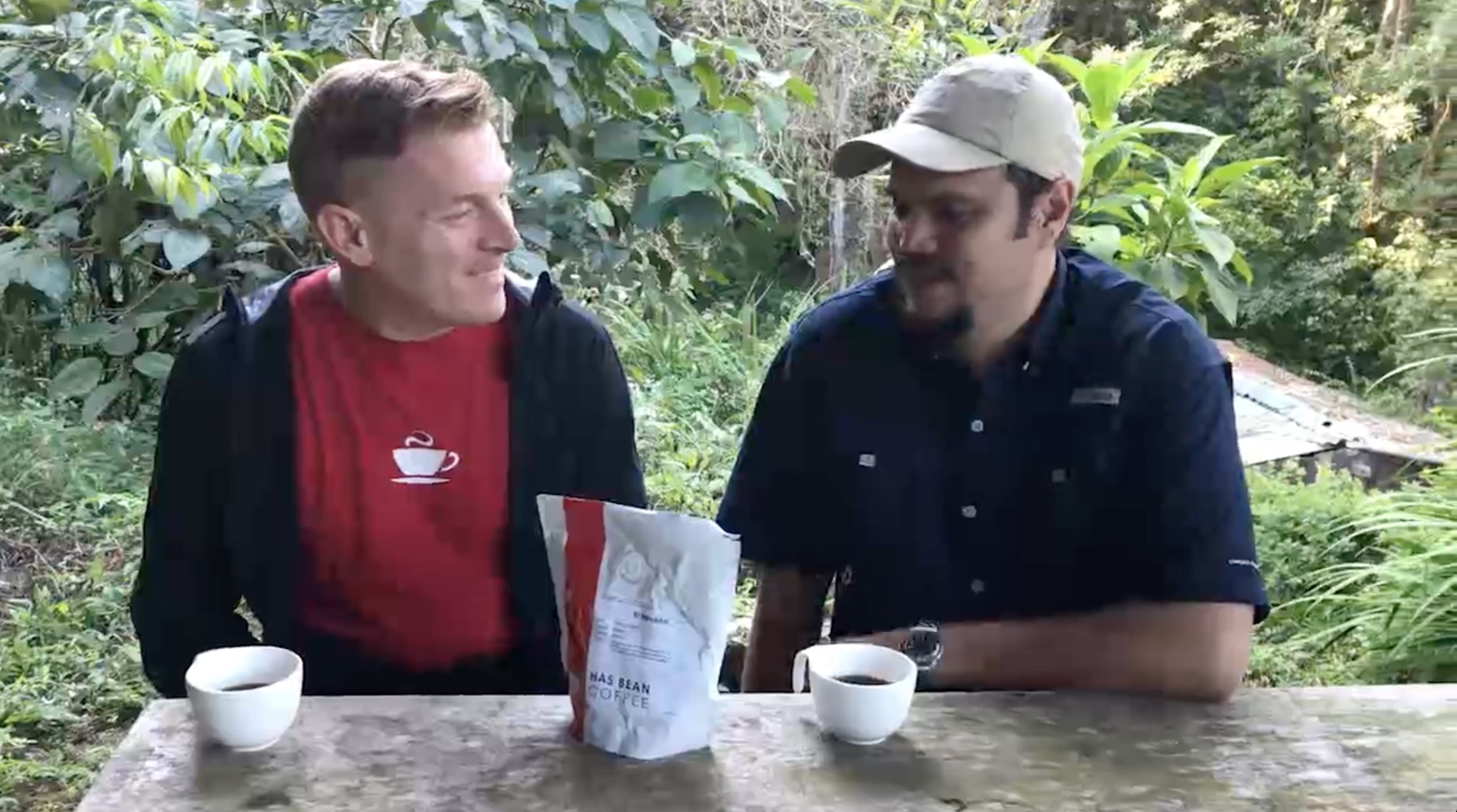
Sunday Feb 05, 2017
Sunday Feb 05, 2017
One of my all-time favourite farms returns! We welcome it back with the widest of arms, it's so, so special. I often get asked what my favourite coffee of all time is but I will never say exactly (although my friends know the true answer). However, I do narrow it to three coffees, and this is one of them.
I went to El Salvador in 2008 on a buying trip, and I was visiting some of the farms that we buy from. I actually arrived the evening of the Cup of Excellence awards, and after the ceremony I was walking around when this guy who seemed very popular came over to me and introduced himself. He was Ernesto or, as I would come to know him, Neto. He'd just won the Cup of Excellence competition with his 'La Ilusión' farm, the sister farm of 'Alaska'. Alaska is a farm we had bought from via the Cup of Excellence the year before. Ernesto invited me to visit La Ilusión the next day, and it was so great to finally meet someone I had communicated with so many times via email!
Neto bought La Ilusión nine years ago. The farm has coffee trees averaging nineteen years of age and is growing 95% Bourbon (70% is red Bourbon and 25% is Orange Bourbon). The remaining 5% is a combination of other varietals, and it is possible to spot some Typica and Kenya trees.
The farm is run using environmentally friendly practices because they are trying to maintain a balance with the surrounding ecosystem, which is part of a natural fauna corridor crucial to migratory and native birds. This is very important for Ernesto because La Ilusión neighbours one of the most important national parks in El Salvador, known as 'Los Andes'. It is nestled on the Santa Ana volcano and delineates his farm with dense pine and cypress forest, which itself provides a special micro-climate for La Ilusión.
The naturally processed version of this coffee was used by the 2011 World Barista champion, Alejandro Mendez. He caused a bit of a stir in the world of barista competition by using the naturally processed lot in his milk drinks and his signature drink, and then using the washed version (this coffee) as his espresso. He caused such a stir that he won! That year I had roasted the coffee for Alejandro, and it had been grown by Neto. There was a magical moment backstage in which I was stood, polishing glass, with Alejandro and Neto; the grower, roaster and barista all stood together, preparing for the presentation. It's not too often you get such wonderful things happening! Aah, the wonders of barista competition. :)
In the cup I get Fruit Salad sweets, a lot of white sugar, and candied lemon. A very clean, sweet and delicious coffee.
- Country: El Salvador
- Region: Apaneca-Ilamatepec mountain range
- City: Santa Ana
- Farm: La Ilusión
- Farmer: Juan Jose Ernesto Menéndez Argüello
- Altitude: 1,750–1,850 m.a.s.l.
- Variety: Bourbon
- Processing system: Washed
CUPPING NOTES
Fruit salad sweets, white sugar, candied lemon.
Clean cup: (1–8): 8
Sweetness: (1–8): 7
Acidity: (1–8): 7
Mouthfeel: (1–8): 6
Flavour: (1–8): 7.5
Aftertaste: (1–8): 6.5
Balance: (1–8): 8
Overall: (1–8): 8
Correction:(+36): +36
Total: (max. 100): 94
Roasting Information
Medium – just before second crack starts.
"Quick Look" Guide
Fruit salad sweets, white sugar, candied lemon.
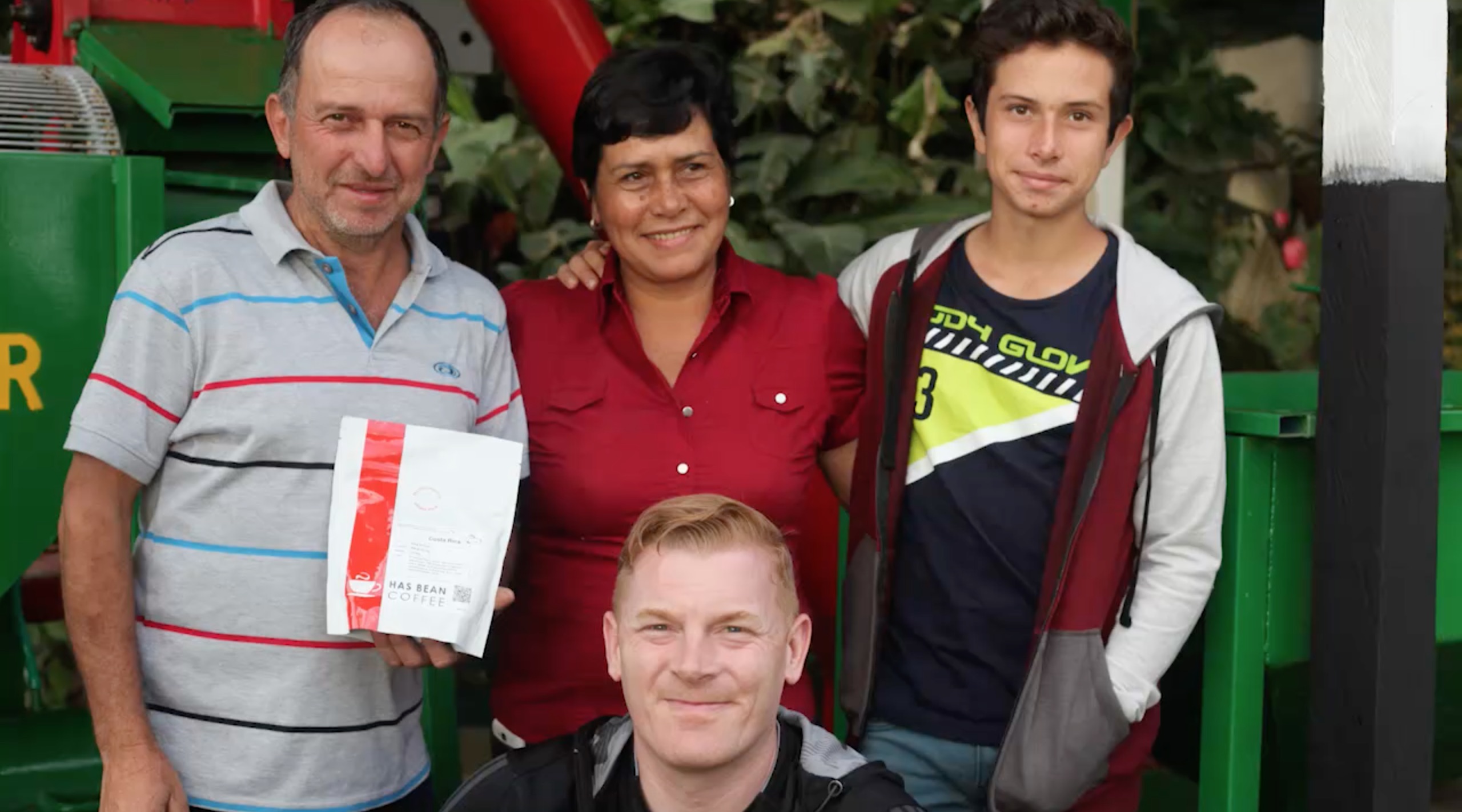
Sunday Jan 29, 2017
Sunday Jan 29, 2017
We had very little information about this farm when we first found it in 21013 – so little information that the coffee didn’t even have a name! Back then all we knew was that the coffee was grown by Carlos Arrieta and it was delicious, but since then I've been lucky enough to visit the farm on trips to Costa Rica and, over the past few years, have found out lots more. Let me tell you what I know so far ...
I first got to meet Carlos at the exporter's office on the last day of my visit to Costa Rica in 2013. He arrived around ten minutes after I had cupped the first table of coffees, where I had found one lot that was making me sing. It just had to be his coffee.
Here ensued the worst negotiation to ever take place in the history of coffee buying ...
"How much do you want?" I asked.
He replies, "How much do you like it?"
"A lot,” I say.
"I'd like a lot then, please," Carlos says.
"OK ... "
Luckily at this point a grown-up from the exporter's office stepped in and made sure I didn't give Carlos my house, car and pension plan. We agreed a price that rewarded Carlos with more than he had ever got before and left me with a home to return to in Stafford.
The year before last I got to spend some time with Carlos and his family. I stopped for some lunch, hung out and asked lots of questions. First of all there's the mill, which is called Arbar and is very close to the house. It has drying tables and a small nursery, but it didn't have a deplulper (more about this later). The mill was brand new, and before it existed they would just sell their coffee to the local coop and so have no interaction with the coffee.
Then I found out that they own two small farms; this coffee is from the farm El Manatial, which was a new farm to us in 2014 but is now back for yet another year after being a massive favourite over the past few years. The farm is located in the Western Valley region near to the town of Lourdes de Naranjo. It's located at 1,600 meters above sea level and contains mostly Caturra, Catuai + a tiny bit of Villa Sarchi, there are also plans to plant some small micro lots too in the future. The farm produces between 700 - 1,400kg a year.
Carlos runs the farm with his wife and children, Maria Isabel, Yesica, Karen, Stephen and Jose Ignacio. He has owned this farm for sixteen years but only started processing the coffee himself in 2014 (while still paying someone else to pulp it for him). He hadn't been able to present his coffee to a single buyer previously, so he would send it to the exporter we use in Costa Rica and, thankfully, that's how we found him!
You may remember that two years ago the coffee was priced a little differently; our normal, nicely rounded-down price was not there. The coffee should have been sold for £7.50 (we negotiated a small price drop from the previous year because we bought everything from both farms, and this worked out that there were some economies of scale compared to the £10.00 of 2013), but we charged £7.88. Well, this was so that we (by “we” I mean “you”) could buy Carlos and his family a depulper for his next harvest. This meant he didn’t have to pay someone else to pulp his coffee, and he could gain more control of his amazing coffee.
I lent the money to Carlos, because I promised you would pay it back (and you did!). You can go and see what your generosity bought at the blog post here.
Last year one of my roasting team, Roland (of 'Roland's Daft Fact' fame), travelled to Costa Rica to be on the jury for their Cup of Excellence competition. If you ever wondered what a coffee roaster from the UK would get up to if let loose in Costa Rica, you should have a read about his trip in Roland Glew's Costa Rican Adventure.
In the cup you can expect the traditional amazing Costa Rican milk chocolate and caramel sweetness but here it's doing a dance partnered with a delicate apricot and peach acidity. In the finish there's also a super clean hit of pineapple.
- Country: Costa Rica
- Region: Western Valley
- Town: Lourdes de Naranjo
- Farm: El Manantial
- Farmer: Carlos Arrieta
- Micro mill: Arbar
- Altitude: 1,600 m.a.s.l.
- Varietals grown: Catuai, Caturra and a small amount of Villa Sarchi
- Processing system: Red Honey
CUPPING NOTES
Milk chocolate, caramel, apricot, peach, pineapple.
Clean cup: (1–8): 7
Sweetness: (1–8): 8
Acidity: (1–8): 7
Mouthfeel: (1–8): 6
Flavour: (1–8): 7
Aftertaste: (1–8): 6
Balance: (1–8): 7
Overall: (1–8): 7
Correction:(+36): +36
Total: (max. 100): 91
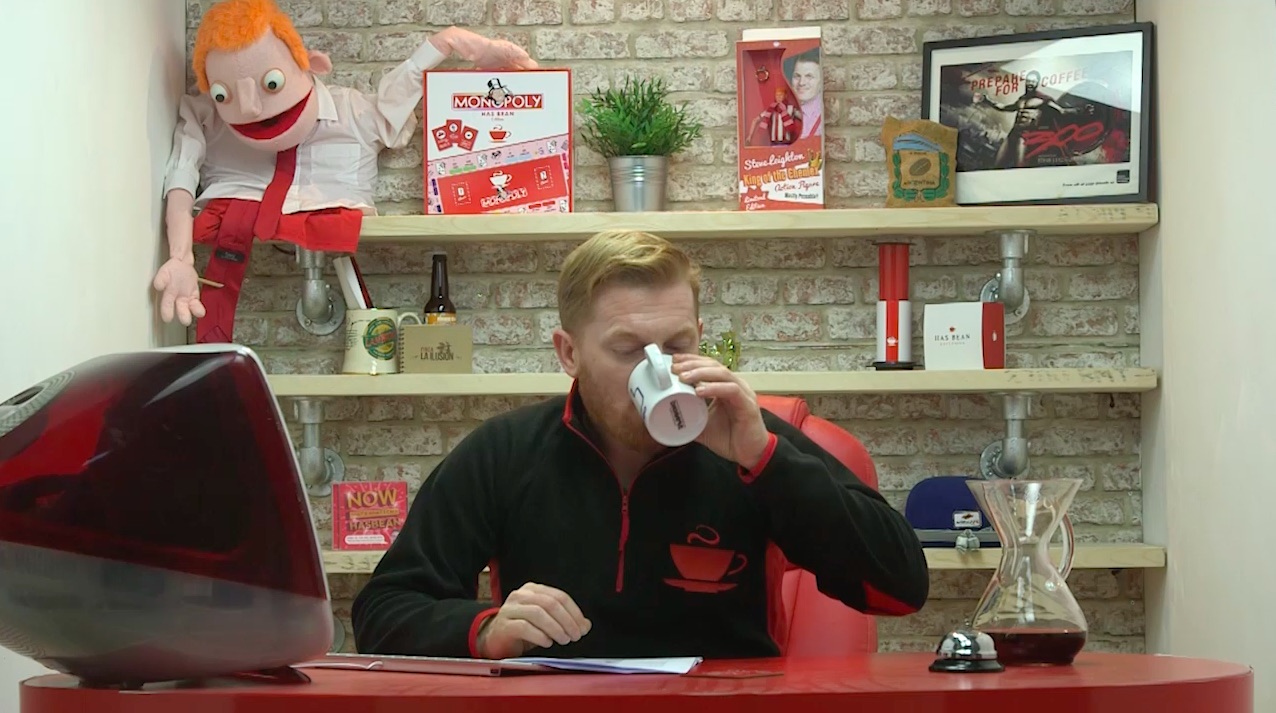
Monday Jan 23, 2017
Monday Jan 23, 2017
This coffee comes from the Abahuzamugambi ba kawa Maraba Cooperative (what a name!!) in the Huye district of the southern province of Rwanda.
Abahuzamugambi ba kawa Maraba is one of Rwanda’s first coffee cooperatives that today manages four washing stations: Sovu, Kibingo; Kabuye and Cyarumbu. Now counting with 1,372 members, the cooperative has grown to encompass various sectors of the Huye district, providing not only services associated with the milling and marketing of coffee but also improvement of local livelihoods through providing health care and other social programming.
Maraba itself was created in 2001 – one of the first coffee cooperatives (if not the very first) to arise in the wake of in of the devastating 1994 genocide and the 1990s world coffee crash. Sovu washing station began operating in 2005: currently around 500 producers deliver their cherry here and the washing station produces about 18 metric tonnes of exportable green coffee annually.
Most of the small scale producers with whom Maraba works own less than a quarter of a hectare of land, where they cultivate an average of only 250 – 300 coffee trees each as well as other subsistence food crops such as maize and beans. The cooperative gives these small farmers the chance to combine their harvests and process cherries centrally.
Before the proliferation of washing stations such as Sovu, the norm in Rwanda was for small farmers to sell semi-processed cherries on to a middleman, and the market was dominated by a single exporter. This commodity focused system – coupled with declining world prices in the 1990s – brought severe hardship to farmers, some of whom abandoned coffee entirely. Today, it’s a different picture. Farmers who work with Maraba have seen their income increase substantially and for the last 6 years, Maraba has won at least one lot to the Cup of Excellence competition.
The level of care that Maraba takes over the processing is impressive. Cherries are hand-picked only when fully ripe and then pulped that same evening using a mechanical pulper that divides the beans into three grades by weight. After pulping, the coffee is fermented overnight (for around 12 hours) and then graded again using flotation channels that sort the coffee by weight (the heaviest – or A1 – usually being the best). The wet parchment is then soaked in water for between 18 and 24 hours to stabilise moisture content.
As at most washing stations in Rwanda, women do the majority of the hand sorting. This takes place in two stages – on the covered pre-drying tables and on the drying tables. Washed beans are moved from the wet fermentation tanks onto the pre- drying tables, where they are intensively sorted under shade for around six hours. The idea is that greens (unripes) are still visible when the beans are damp, while the roofs over the tables protect the beans from the direct sunlight. Next, the beans are moved onto the washing station’s extensive drying tables for around 14 days (depending on the weather), where they are sorted again for defects, turned regularly and protected from rain and the midday sun by covers, ensuring both even drying and the removal of any damaged or ‘funny looking’ beans. After reaching 11% humidity, the coffee is then stored in parchment in CWS purpose-built warehouse prior to final dry-milling and hand-sorting at the Cooperative’s brand new dry mill in Kigali. Each coffee that arrives is also cupped by the Q-graders of Maraba’s exporting partner, Rwashocco.
Lots are usually separated out by days. Upon delivery as cherry, the coffee receives a paper ‘ticket’ that follows the lot through all its processing. This ticket bears the date of harvest and the grade (A1, A2 etc) of the. This simple but effective practice is a crucial tool in controlling quality and ensuring the traceability of lots. In addition to the great work that the cooperative does with quality improvement and assurance, they also have various social programs that greatly contribute to the livelihoods of their members. School fees and medical insurance are provided along with training in quality and productivity in cultivation of coffee.
Rwanda is a country that has a troubled past. In the early 1990s, coffee was Rwanda’s most lucrative export with the country exporting 45,000 tonnes of it in 1990. Events in the 1990s, however, decimated Rwanda’s coffee industry. Most importantly, the 1994 genocide claimed the lives of nearly a million Rwandans, destroying Rwanda’s economy and erasing much of the specialised knowledge needed to export coffee profitably. Simultaneously, world coffee prices plummeted in the 1990s due to increased worldwide production and consolidation of purchasing by multinational corporations.
In the cup this starts off very sweet with a typical Bourbon sweetness, makes me think of Dolly Mixtures, a really sugary sweet coffee. This is followed up by creamy lychee and milk chocolate on the finish.
- Country: Rwanda
- Region: Southern Province
- District: Huye
- Town: Maraba
- Cooperative: Abahuzamugambi ba kawa Maraba
- Washing Stations: Sovu, Kibingo, Kabuye and Cyarumbu
- Altitude: 1,700-2,200 m.a.s.l.
- Varietal: Red Bourbon
- Processing Method: Fully Washed
CUPPING NOTES
Dolly Mixtures, lychee, milk chocolate, sweet, creamy.
Clean Cup: (1-8): 7
Sweetness: (1-8): 7
Acidity: (1-8): 7
Mouthfeel: (1-8): 6
Flavour: (1-8): 6
Aftertaste: (1-8): 7
Balance: (1-8): 6
Overall: (1-8): 6
Correction: (+36): +36
Total: (max 100) : 88

Monday Jan 16, 2017
Monday Jan 16, 2017
We first discovered this farm through the Mierisch auction 'Los Favorties', which is an auction of their finest lots from their nine farms. They sifted through each one of their lots from every farm; all the lots come from various plots on the farms, different harvest days, cultivars, microclimates and, in some cases, different processing methods.
These coffees are truly the best of their production and the best representation in their class. The lot sizes were kept small to make the coffees unique and exclusive.
The San Jose farm was acquired in November 2003. At the time it was completely abandoned, and due to its inaccessibility it's been a work in progress for many, many years. It's up in the chain of mountains that marks the border of Jinotega and surrounds the skirts of Apanas lake at 1,300-1,400 metres above sea level. San Jose overlooks the long-time favourite farm 'Escondida', and that farm can be seen from the very top of San Jose.
It's an incredibly beautiful farm with amazing views that are well worth the off-road trek up the mountain to gain access (even if we did get stuck two times). Dr. Mierisch said that he may build himself a small house on the farm to retire to one day: "overlooking the coffee plants and Lake Apanas in the background sounds like a dream come true".
In the cup there's tea! White tea, with juicy peach and a satisfyingly viscous mouthfeel that makes me think of cocoa butter.
- Country: Nicaragua
- Community: Lipululo
- Departament: Jinotega
- Farm: San Jose
- Farm manager: Jesus Antonio Cruz
- Coffee area: 66 manzanas (hectares)
- Elevation: 1,250–1,400 m.a.s.l.
- Harvest months: December–March
- Diurnal temperature cycle: average: high 27° C, low 15° C
- Varietal: Longberry
- Processing type: Pulped Natural
CUPPING NOTES
White tea, peach, cocoa butter.
Clean cup: (1–8): 7
Sweetness: (1–8): 7
Acidity: (1–8): 6
Mouthfeel: (1–8): 6
Flavour: (1–8): 7
Aftertaste: (1–8): 6
Balance: (1–8): 7
Overall: (1–8): 7
Correction: (+36): +36
Total (max. 100): 89

Monday Jan 09, 2017
Monday Jan 09, 2017
This coffee is a staple, a big favourite and a stunning example of what a very fine coffee from Brazil should be. Brazil Fazenda Cachoeira Pulped Natural Yellow Bourbon from the Minas Gerais area is one of my all-time great cups. This coffee has always been fantastic, and it has such amazing memories for me.
This farm and its coffee sparked a massive change in what I thought I knew about coffee. I remember the first time I ever cupped this coffee: time stood still as the cup opened my mind to what great coffee is and can be. Gabriel, the farmer, continues to produce great coffee year on year. We have access to the best of the crop this year – and have had for the last three years – on a European exclusive. This is due to the special relationship we, and our importers, enjoy with Gabriel.
Fazenda Cachoeira da Grama has been in the Carvalho Dias family since 1890 and recently celebrated its 109th crop. It is located in São Paolo state, just three miles from the border with Minas Gerais state. It enjoys the typical characteristics of the mountainous Mogiana and Sul de Minas regions, and it's located at an altitude of 1,100–1,250 metres above sea level.
Gabriel de Carvalho Dias is one of Brazil’s leading agronomists. His family owns several farms, and they border each other in this area. With a total area of 417 hectares, Fazenda Cachoeira da Grama has a coffee plantation area of 165 hectares. Everything is done manually on this farm since its topography does not allow any kind of mechanisation. The mill is located close to the spa town of Poços de Caldas, which is 45 minutes away from the farm.
The Carvalho Dias family consider social and environmental sustainability to be very important. The farm has a programme of planting native species of trees to maintain a better ecological balance. There is also a school, a club and an official-size soccer field for the employees and workers. There are 47 houses, all with modern facilities. The waste water is treated in order to avoid polluting the stream that runs across the farm. The farm has a small hydroelectric plant and only buys energy during the peak harvest. Some of the original Bourbon varietal trees are as much as 108 years old.
The beans are harvested on a sheet and prepared by the ‘pulped natural’ process, which separates the greens. The beans receive the maximum possible attention after harvest so that they don't lose any of the body and cup qualities for which this region is famed.
In the cup what really hits you is the outstanding sweetness. There is chocolate, hazelnut and caramel. It's super creamy, with just a little hint of chocolate coated raisin on the finish.
- Country: Brazil
- Region: Mogiana (São Paolo)
- City: São Sebastião da Grama
- Farm: Fazenda Cachoeira da Grama
- Processing: Pulped Natural
- Varietal: Yellow Bourbon
- Altitude: 1,100 – 1,250 m.a.s.l.
- Owner: Lidolpho de Carvalho Dias and family
CUPPING NOTES
Chocolate, hazelnut, caramel, creamy, chocolate coated raisin, sweet.
Clean Cup: (1-8): 6
Sweetness: (1-8): 7
Acidity: (1-8): 6
Mouthfeel: (1-8): 7
Flavour: (1-8): 7
Aftertaste: (1-8): 6
Balance: (1-8): 8
Overall: (1-8): 7
Correction: (+36): +36
Total (max 100): 90
Roasting Information
Medium dark - just before 2nd crack starts.
"Quick Look" Guide
Chocolate, hazelnut, caramel, creamy, chocolate coated raisin, sweet.
Good filter?
Yes
Good espresso?
Yes yes yes!

Monday Jan 02, 2017
Episode 425 on Monday the 2nd of January, 2017. Christmas Espresso Blend.
Monday Jan 02, 2017
Monday Jan 02, 2017
It just wouldn't be Christmas without a Christmas blend now, would it?!
Now in its eleventh year (!!!), it's time to say hello to our Has Bean-y take on the best espresso you should be drinking this festive season.
This blend will only be roasted throughout the month of December so enjoy it while you can! For the first year ever we're offering our Christmas blends with all our grinding options, and also in 1 KG bags.
- 50% El Salvador Finca Alaska Washed Bourbon.
- 50% Kenya Kiriga AB Washed.
In the cup you really are getting a shot of Christmas! Dried fruit and rich fruit cake meet creamy blackcurrant, along with an edge of molasses and spice.
CUPPING NOTES
Dried fruit, fruit cake, creamy, blackcurrant, molasses, spice.
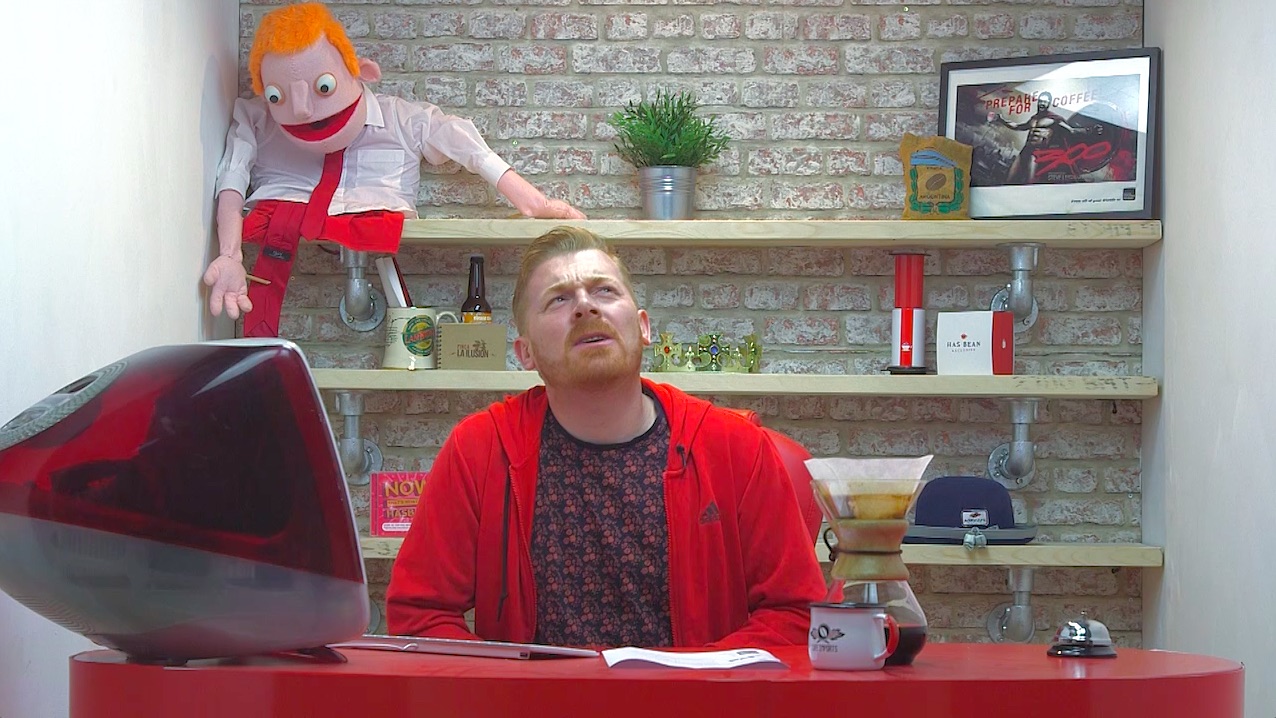
Monday Dec 26, 2016
Episode 424 on Monday the 26th of December, 2016. Christmas Filter Blend.
Monday Dec 26, 2016
Monday Dec 26, 2016
It just wouldn't be Christmas without a Christmas blend now, would it?!
Now in its eleventh year (!!!), it's time to say hello to our Has Bean-y take on the best filter coffee you should be drinking this festive season.
This blend will only be roasted throughout the month of December so enjoy it while you can! For the first year ever we're offering our Christmas blends with all our grinding options, and also in 1 KG bags.
- 33% Costa Rica Monte Brisas Finca Salaca Black Honey Typica.
- 33% El Salvador Finca La Ilusion Washed Bourbon.
- 33% Guatemala El Limon Black Honey x Natural San Ramon & Catisic.
- 1% Reindeer Tears.
In the cup this is like sparkly snow coffee. There's lemon and white sugar with a hint of sparkling effervescence and cloudy lemonade.
CUPPING NOTES
Lemon, white sugar, effervescence, cloudy lemonade.
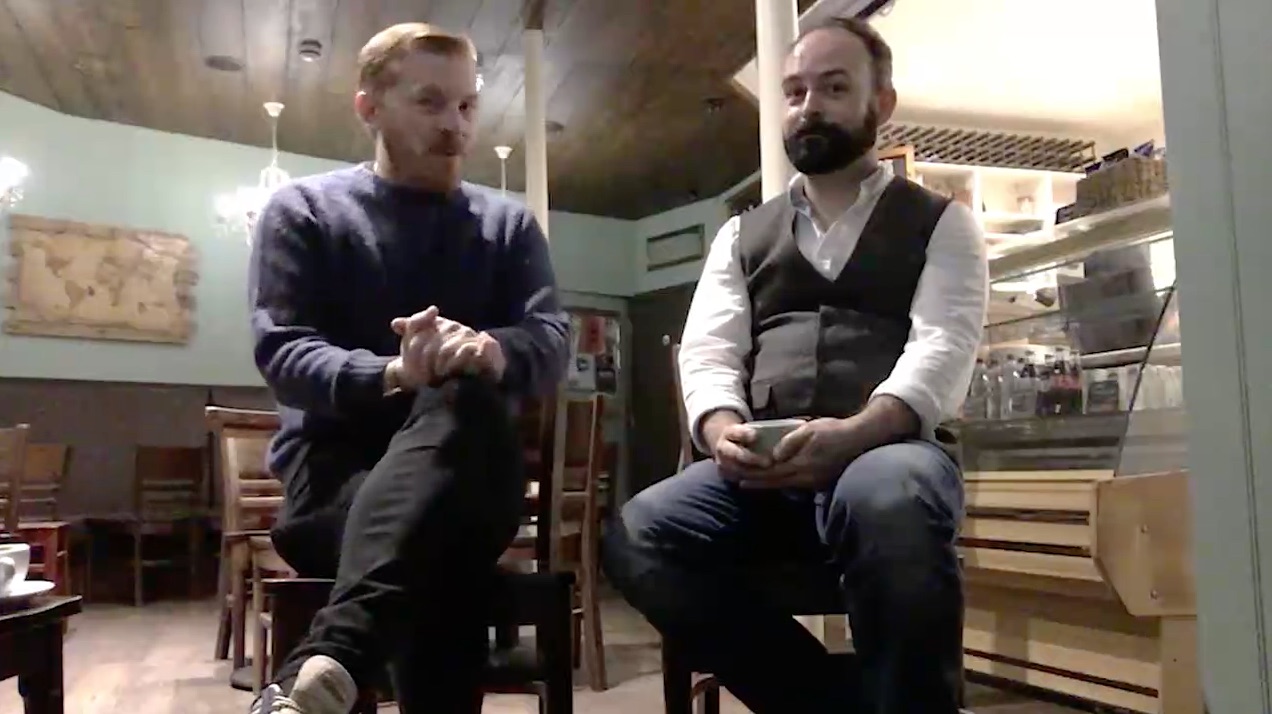
Monday Dec 19, 2016
Monday Dec 19, 2016
Juan Jose Ernesto Menéndez Argüello belongs to the fourth generation of coffee farmers in his family. His father died in 1995, and after completing his studies at university he had the opportunity to start working in the coffee industry at J. Hill & Cia in 2000. After five years he left J. Hill & Cia to begin his second experience at JASAL. Both companies gave him the opportunity to meet “Grano de Oro” from another perspective, allowing him to learn the art and passion of cupping. He says those are very important in his life, and that they give him the opportunity to apply his coffee knowledge and experience gained through the years.
During his time in the coffee world, Neto has participated in various events like the Cup of Excellence (National Jury from 2003 to 2011), Q Auction, Q Grader, and the Star Cupper program organised by SCAA and CQI.
The farm, Las Brumas, is located between 45 to 60 minutes from the City of Santa Ana. It has a cultivated area of 60 hectares' worth of coffee yield, all of which is at an altitude ranging from 1,450 to 1,700 m.a.s.l. It produces around 600 bags of coffee each year, and has an area of 35 hectares of virgin mountain at an altitude from 1,700 to 2,000 m.a.s.l.
The farm is located in the Sonsonate department near the area known as San Blas. Las Brumas has a very rich volcanic soil, deep and very fertile, which has been generated by different Ilamatepec and Izalco volcanic eruptions throughout its history.
One of the most important elements is the micro climate. It's very misty for most of the year, and that's why Neto decided to name the farm Finca Las Brumas. This amazing micro climate is generated when the warm air when the Pacific ocean collides with the high peaks of the Volcanoes Park (Santa Ana volcano, Cerro Verde volcano and Izalco volcano). Due to its location between these three famous volcanoes in El Salvador, this unique micro climate reduces the amount of daylight that the coffee tree receives. This helps the coffee tree to have a very slow photosynthesis, improving the maturation process, and this in turn improves some attributes that are closely related to maturity, like the aroma, sweetness, acidity and flavour.
This coffee was produced as part of the brand new and super exciting Las Brumas Wild Coffee Project, the project is to use land for coffee producing that's forest, but to do it in a thoughtful and careful way so as not to remove any of the flora and fauna and so the space remains primarily a forest. This effects the speed of the growth of the coffee (lots of shade) but also provides it with its own fertilisation system, with all the forest floor goodness, and the constant supply of twigs and leaves to continue to enrich the soil.
In the cup expect lemon citrus and a lingonberry jam sweetness. The complexity of this cup makes it take a left turn as it cools into chocolate and caramel, “hey Mr Beaver, why are you beavering around with this Cadbury’s Caramel sweetness and smoothness?!” (sorry an in-joke for those of a similar age to me!)
- Country: El Salvador
- Department: Sonsonate
- Nearest City: Santa Ana
- Farm: Finca Las Brumas
- Farmer: Juan Jose Ernesto Menéndez Argüello
- Altitude: 1,450 - 1,700 m.a.s.l. / 1,700 - 2,000 m.a.s.l.
- Variety: Pacamara
- Processing System: Washed
CUPPING NOTES
Chocolate, lemon, lingonberry jam, caramel, Cadbury's Caramel.
Clean Cup: (1-8): 7
Sweetness: (1-8): 6
Acidity: (1-8): 7
Mouthfeel: (1-8): 6
Flavour: (1-8): 7
Aftertaste: (1-8): 7
Balance: (1-8): 6
Overall: (1-8): 6
Correction:(+36): +36
Total: (max 100): 88
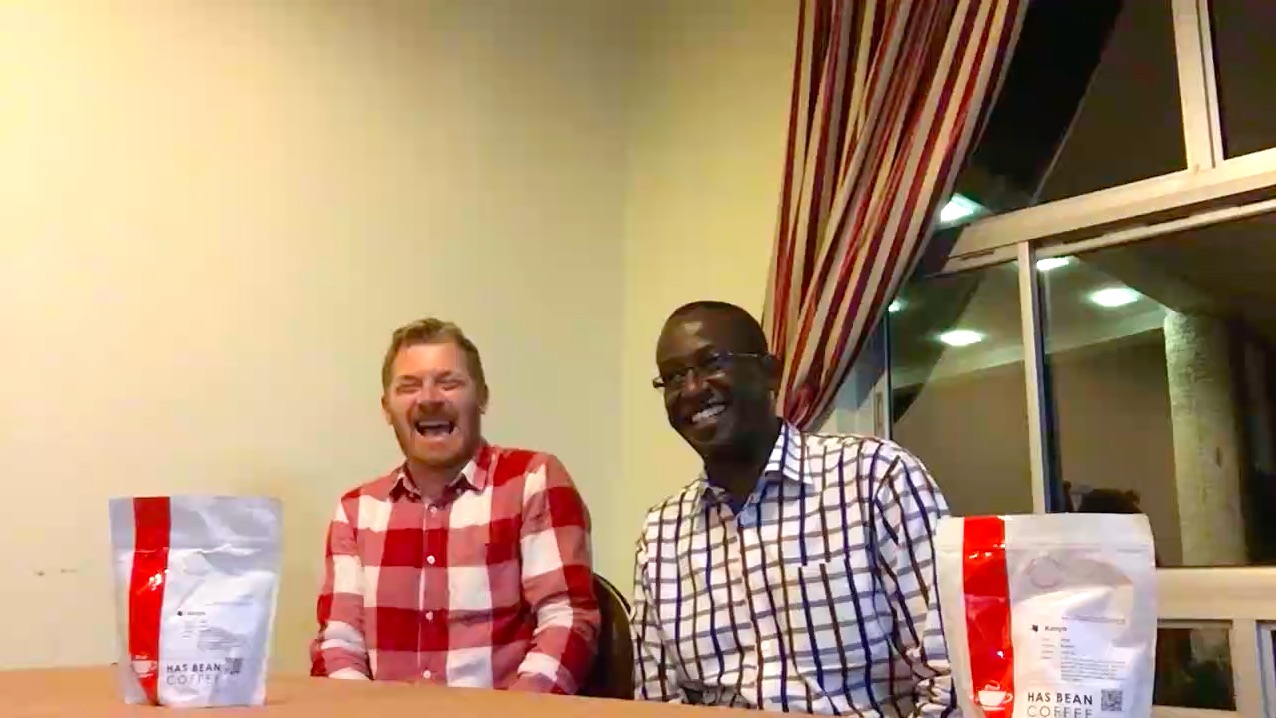
Monday Dec 12, 2016
Episode 422 on Monday the 12th of December, 2016. Kenya Kiriga AA Washed.
Monday Dec 12, 2016
Monday Dec 12, 2016
Well hello there, children. Uncle Steve has a story to tell you! So sit back, relax and enjoy the story of the Kiriga coffee estate in Kenya. :)
The first coffee bush at Kiriga estate was planted in approximately 1954 by colonial settlers. At about the same time, less than ten kilometres away along the same Kigio road, a young boy (Aloysius Gakunga, son of the chief for the larger Murang'a county) helped his father – Senior Chief Ndungíu Kagori – plant the first coffee seedling in the area. The area was known as Gaitegi village, Muranga Location 1 (Loco One). A love affair with coffee had been born!
Several years went by and the young boy grew up. He was riding his bicycle along Kigio road and, as he rode past the vast – by now well-established – coffee estates, he promised himself that he would one day own one of them.
He realized this dream in 1976.
Sadly the boy, or Mr. A. N. Gakunga, passed away in July 2014. By the time of his death, Mr. Gakunga had passed on the love of coffee, and the mantle of Kiriga coffee estate, to Dr. Brian Ndungíu Gakunga. Brian was his second child, and the eldest son out of his six children. According to Kikuyu cultural naming systems, Brian is named after Mr. Gakungaís' father, who was both his grandfather and his pioneer coffee farmer.
- Dr. Brian Gakunga is a coffee farmer who is well known in Kenyan coffee circles. He is a founding member and a former long-serving Honorary Secretary of the Kenya Coffee Producers Association, which is a national farmer's organization that works to promote the economic and social interests of the coffee farmers through active participation in the national and international arena.
- Brian is also a former Board Member and Chairman of Transitional Exchange Committee (operationally, he was the then-Chairman of Nairobi Coffee Exchange), where over 90% of all of Kenya's coffee is currently sold. He's also currently the Founding Chairman of Africa Coffee Farmers' Network.
- Africa Coffee Farmers' Network represents the interests of coffee farmers, as spelled out in the organisation's core objective of improving the earnings of poor coffee farmers in order to break the vicious cycle of poverty. One way of doing this is by getting direct sales for the farmers.
The Kiriga coffee estate sits between 1,550 and 1,650 metres above sea level. It is approximately five kilometres from Thika town, which is an industrial town in the central province of Kenya. It's four kilometres from Blue Posts hotel, which has the famous Chania and Thika falls. Thika lies 50 kilometres northeast of Nairobi.
Administratively, Kiriga coffee estate is in the Gatanga constituency of Muranga county, and it's separated from Kiambu county by the Chania river.
Kiriga coffee is Arabica of predominantly SL28 variety (notable for its world-renowned cup quality). The farm has an estimated two hectares of Ruiru 11 variety (which has improved resistance to coffee berry disease and leaf rust); some K7 variety (similar characteristics as SL28, but with better resistance to leaf rust compared to SL28); and a field of the newest Batian variety.
All coffee activities at Kiriga are carried out from the coffee nursery to all the farm operations (pruning, weed control, nutrition, irrigation, basin digging, disease control, infilling, mulching, and planting). Wet mill operations are also carried out on the factory level. Kiriga delivers both parchment coffee and Mbuni (naturals) to the commercial dry mill for milling and grading, in preparation for sale at the coffee auction and in direct sale.
In addition to growing coffee the estate also has, I was told, shoats (sheep and goats), a dairy, and the potential to keep fish. It's all about diversity, and what's more diverse than a 'shoat'?! The estate is also occasionally visited by two hippos, in addition to some bird-life, while also being the home of a family of monkeys.
Kiriga irrigated all its coffee trees – despite the crippling electricity costs involved – during the dry season that happened earlier this year, in order to ensure their high standards were maintained despite the weather.
By the end of last year (2015) the estate changed the cycle of its coffee trees by removing the old heads and growing new heads, which in return gave a higher yield of bold beans with the characteristic 'Kiriga coffee characteristics'. Over 40% of the 'old heads' had to go! This is way above the recommended 25%, and as a result we expect to have decreased yield but increased quality.
At Kiriga they talk about having a 'Kiriga Family'; 30% of the total workforce is made up of resident families who live on the estate, and 50% of those know no other home. The remaining percentage consists of smallholder farmers who commute daily and depend on the estate for survival. There are smallholder farmers who have been part of the family since 1976 and have no desire to work anywhere else, commuting a whopping 10 KM (or more!) daily, past other estates, just to work at Kiriga.
Something really amazing I wanted to tell you about is the Kiriga Welfare Fund. In the past the estate saw its workers get turned away from banks when they tried to acquire loans for dealing with family issues or emergencies. To help his 'Kiriga Family', over the past year Brian has encouraged the workers to set up a welfare group with him as its patron, and Brian has provided money for loaning out to staff according to their most pressing needs.
Brian has also approached a banking institution to see whether they can fund workers to acquire dairy animals on loan and repay from the milk proceeds. Under such an arrangement, 50% of the proceeds would go towards paying for the loan. A market would be readily available and the remaining 50% would be extra income to the workers. This is ongoing and, if successful, it would have the effect of supplementing the workers' wages and greatly improving their quality of life.
During my visit to Kenya last year I was fortunate enough to spend some time chatting with Brian. I even managed to record some of it, too! Make sure to have a listen. :)
Has Blog: An Interview with Brian and Peter from Kiriga (Part 1)
Has Blog: An Interview with Brian and Peter from Kiriga (Part 2)
In the cup you can expect fruit – ALL the fruit! It starts off with blackcurrant and is creamy, smooth and balanced with a fantastic body and structure. Then there's a delicious white grape / green apple acidity, a whopping citrus delight, and a black cherry finish.
- Country: Kenya
- Constituency: Gatanga
- County: Muranga
- Nearest town: Thika
- Estate: Kiriga
- Farmer: Dr. Brian Gakunga
- Altitude: 1,550–1,650 m.a.s.l.
- Varietal: SL28 AA
- Processing method: Washed
CUPPING NOTES
Blackcurrant, creamy, smooth, balanced, white grape, green apple, black cherry.
Clean Cup: (1–8): 7
Sweetness: (1–8): 7
Acidity: (1–8): 8
Mouthfeel: (1–8): 7
Flavour: (1–8): 7
Aftertaste: (1–8): 7
Balance: (1–8): 7
Overall: (1–8): 8
Correction: (+36): +36
Total: (max 100): 94

Sunday Dec 04, 2016
Sunday Dec 04, 2016
From the same region in Costa Rica that gave us the wonders of Finca de Licho and Herbazu (i.e. the Western Valley in Lordes de Naranjo, in case you're wondering), we're super excited to have Finca La Casa Vista al Valle back once more!
Located between 1,500 and 1,600 metres above sea level and owned in partnership by Oldemar Arrieta Lobo and Marlene Brenes Morera, the name Vista al Valle translates as 'view of the valley'. I'm sure you'll understand why if you take a look at some of the pictures on the left of this page.
Oldemar and Marlene are also processing this coffee through a virtually brand new micro mill, which is in only its forth year of production. They both learnt their skill while working for other people, but now they have a mill of their own. They own three farms; this one surrounds the home where they live, and the other farms are called Zapote and Fidel. Fidel won the Costa Rican Cup of Excellence two years ago!
The varietals on this farm are Villa Sarchi and Caturra. They use the sun dried processing method in their poly tunnel, and the Yellow Honey process.
In the cup there's sweet and juicy lemon but think cloudy lemonade / Lemsip rather than fresh lemon juice. The sweetness for me is white sugar and there's a hint of black tea, all finishing off with a red apple sweetness.
- Country: Costa Rica
- Region: Western Valley
- Micro-Region: Naranjo, Lourdes
- City: Naranjo de Alajuela
- Farm: Finca La Casa
- Micromill: Vista al Valle
- Farmer: Oldemar Arrieta Lobo and Marlene Brenes Morera
- Farm Size: 20 Hectares
- Coffee growing area: 15 Hectares
- Altitude: 1,500 - 1,600 m.a.s.l.
- Varietals: Villa Sarchí
- Drying Method: Poly Tunnel Sun Dried
- Processing System: Yellow Honey

Friday Nov 25, 2016
Friday Nov 25, 2016
Cerro Azul is one of the Mierisch family’s newer coffee projects in Honduras. The name 'Mierisch' might sound familiar; they have brought us Limoncillo, Escondida, San Jose and Mama Mina, to name just some of their amazing farms.
The Mierisch family have been growing coffee for four generations, going on five, in Nicaragua. They have achieved great results with their special way of farming, and more importantly by reaching out to specialty buyers and being at the forefront of coffee development.
This farm is a new experiment for the Mierisch family. To farm here, they're going across the border of their mother country and driving six hours from their home to neighbouring Honduras. I've spoken with Erwin a lot about why the family made this decision, and it came down to his experiences as one of the Head Judges for the Cup of Excellence competitions in Honduras. He had seen amazing potential, but he'd also seen a lack of care and attention to detail during the processing stage. This detail is vital to truly special coffee, and Erwin and his family are some of the best-qualified technicians of processing whom I have ever met. A match made in heaven.
In 2011 they started the project of revitalising Finca Cerro Azul in the region of the national park, Azul Meambar. It's in Siguatepeque, Comayagua, Honduras, and is across El Cielito, Santa Barbara. The farm lies on the other side of Lake Yojoa, and is blessed with micro-climates and conditions which are familiar to the family because those conditions are similar to the ones they experience on their lands in Nicaragua.
But the soil is something else, as is the plant stock they have inherited, and this is the first production they have been happy enough to share with special international friends. We are some of the first to taste the fruits of their hard work and long drives to their new farm.
In the cup expect a heap of cherry, dark chocolate bitterness and a little bit of funky fruit. This coffee also has a delicate floral side, think Turkish Delight.
- Country: Honduras
- Community: Rio Bonito
- Municipality: Siguatepeque
- Department: Comayagua
- Farm name: Finca Cerro Azul
- Farm manager(s): Francisco Escobar and Lidia Zeledon
- Farm owners: Family Mierisch
- Area: 135 hectares
- Elevation: 1,450–1,900 m.a.s.l.
- Diurnal temperature cycle: average high: 26 C, average low: 16 C
- Varietal: Red Catuai
- Shade: Inga and Liquidambar
- Processing method: Red Honey
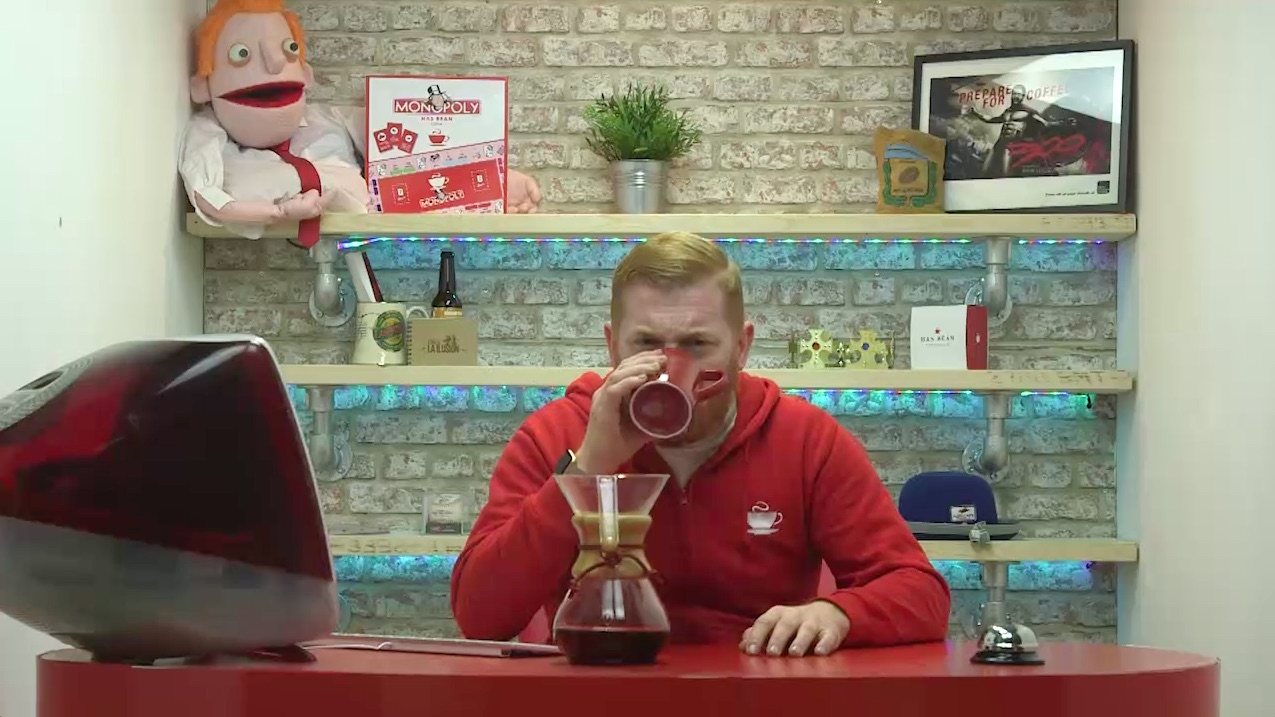
Sunday Nov 20, 2016
Sunday Nov 20, 2016
Back for a third year we have the coffee that in the past I affectionately started calling 'Monty Burns' : ) In previous years we've only had 1 lot from this mill/farm combo but this year we have 2! A black honey Typica lot that is available on our website and this lot which has been sent out exclusively to In My Mug subscribers and isn't available to purchase on our website.
So I think I should start by explaining this coffee's long and rather complicated name. The mill where this coffee is processed is called Monte Brisas, and the name of the farm is Finca Salaca. The varietal of the coffee plant is Villalobos, and the processing method is natural.
This coffee comes from the west valley in the region of Zarcero; both the farm and the mill are very near to the famous mill owned by our friends Gillio and Zarcero. The farm (Salaca) is located at 1,750 metres above sea level and is owned by Luis Salazar, who has a total of 12 hectares of land (11 of which are for coffee production).
Although the family have been farming for years, Monte Brisas is a brand new micro mill in only its third year of production. I visited last year. The family had the tiniest amount of coffee, and had already pre-sold it to another buyer. Luis promised he would have something for me this year, and the sample was waiting when I visited again.
Natural processing, well I could type a bit about what it's all about, or...I could give you a link to a sweet video! https://www.hasbean.co.uk/blogs/processing-videos/7476774-natural-coffee that's 1 of a series of 3 videos we made to explain more about coffee processing methods, I hope you enjoy it : )
In the cup you can taste that it's almost December, a very clean coffee where Christmas cake meets tinned prunes all sprinkled with brown sugar.
- Country: Costa Rica
- Region: Zarcero
- Farm: Finca Salaca
- Mill: Monte Brisas
- Farmer: Luis Salazar
- Farm Size: 12 hectares
- Coffee growing area: 11 hectares
- Altitude: 1,750 m.a.s.l.
- Variety: Villalobos
- Processing System: Natural
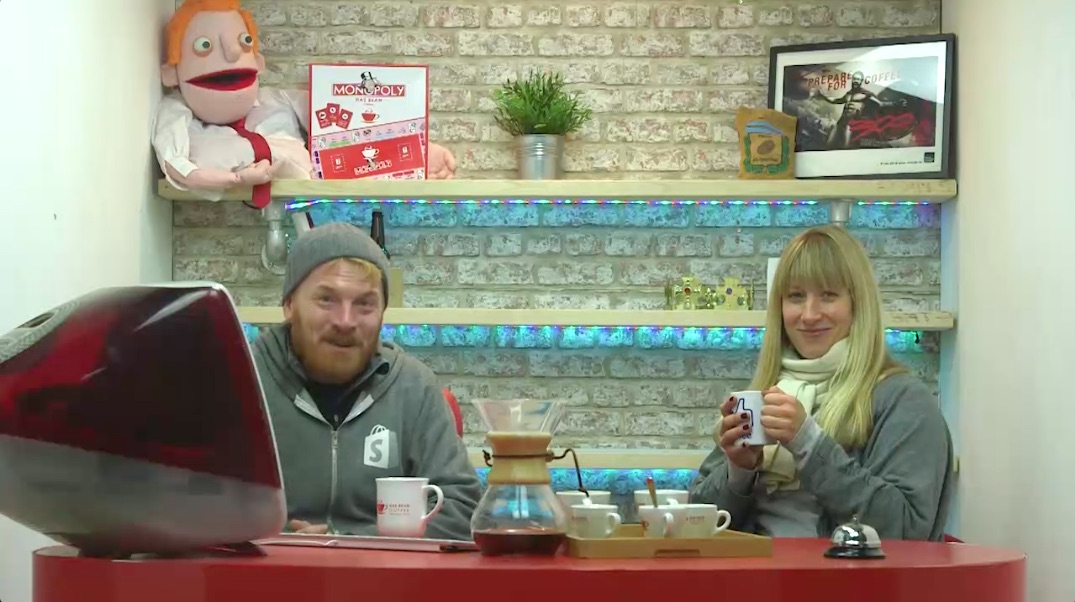
Sunday Nov 13, 2016
Sunday Nov 13, 2016
This is our fourth year of working with this farm, but the first year's lot was so tiny it never made it onto the website and was sold as an exclusive to one of our lucky wholesale partners. Luckily ever since then we've been able to focus a little bit more on the farm: we cupped a lot more pickings and found a little more coffee.
Finca La Chorrera is located near to the city of Pitalito, in the south of the Huila department. It's in the valley of the Rio Grande de la Magdalena, known as "The Valley of Laboyos", which is 180 KM from Nieva – the capital of Huila. Pitalito is also the second largest city of the department of Huila, at approximately 125,000 inhabitants, and is considered one of the largest coffee producers in Colombia.
This farm is located on top of a mountain at 1,735 metres above sea level. The farm contains 70% Caturra (25,000 plants; this lot comes from them), 20% Colombia F6 (7,000 plants) and 10% Castillo (2,000 plants). The farm consists of eight hectares, six of which are planted with coffee. The other two hectares house the mill and inaccessible mountainous areas. The family house, which is also used for drying, is at the bottom of the hill at around 1,400 metres above sea level.
I took some amazing pictures on my trip in 2013 so take a look here, and I took some more on my trip in 2014 – find them here!
The farm is owned and run by the Claros family: Pedro, his wife Nelcy and their six children (Alberio, Edilson, Sandra, Hermes, Diana, and Monica). It's a real family business with everyone pitching into the farm to make it work.
Carlos sent us every day's pickings to cup and we bought everything that scored over 86 points on the cupping table; anything below 86 was sold for commodity. This meant we had to pay a premium for the coffee, but I think it's definitely worth it.
The drying patio was one of the most amazing things I’ve seen, with a greenhouse built on top of the house so that the coffee could be kept turning regularly but also to make sure no one steals it. The latter is not so much of a problem this year with market prices being low, but it was a real problem over the last three years. Of course, Pedro doesn't have to worry about market prices; he always get a premium because he consistently gives quality, but black market coffee goes to the highest market bidder.
In the cup this begins with a white sugar sweetness followed by a complex turn into the land of sweet vanilla marshmallow! There's even more complexity in the form of a white grape and green apple acidity, and a finish that's long and strong.
- Country: Colombia
- Department: Huila
- Nearest town: Pitalito
- Farm: Finca La Chorrera
- Owners: Claros family
- Altitude: 1,735 m.a.s.l.
- Farm size: 8 hectares (6 of coffee)
- Varietal: Caturra
- Processing: Washed

Monday Nov 07, 2016
Monday Nov 07, 2016
This coffee comes from the town of Irupana in the Sud Yungas province of Bolivia, it's grown at an altitude of between 1,800 and 1,850 metres above sea level and is a mechanically washed, dry fermented Typica.
Estanislao Panuni is young, enthusiastic and a self-confessed coffee lover (just like me!) He started out in coffee controlling the fermentation process at the Coaraca Cooperative in Bolivia and it was there that he really developed his skills as a coffee producer. 2 years ago he decided he wanted to help his father and so moved away from his day job to take on a role producing coffee with his Dad, this coffee is the product of all that hard work, learning and family love.
In the cup expect orange Jelly Tots covered with white sugar, a floral honey-like mouthfeel and aftertaste mixed with cacao drops.
- Country: Bolivia
- Department: La Paz
- Province: Sud Yungas
- Municipality: Irupana
- Town: Irupana Town
- Producer: Estanislao Panuni
- Altitude: 1,800-1,850 m.a.s.l.
- Varietal: Typica
- Processing method: Washed
- Washing: Mechanical
- Fermentation: Dry fermentation for 16 hours
- Drying: African beds for 7-8 days
- Coordinates: 16°27′58″S 67°27′17″O
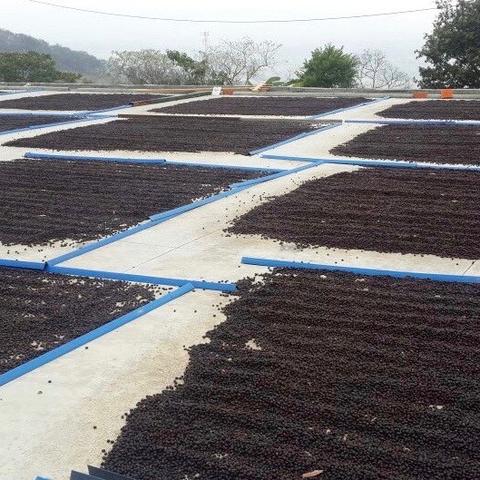
Sunday Oct 30, 2016
Sunday Oct 30, 2016
I first discovered El Limon on my trip to Guatemala in early 2013, at the time we 'd never bought coffee directly from Guatemala; but since then this has become one of our strongest and most amazing relationships.
My friend Raul (who you may remember as the World Barista Champion of 2012!) in Guatemala had been buying coffee from these guys for a couple of years and was very keen for me to go and meet them. Located around an hour's drive to the east of Guatemala City in the small town of Palencia, this farm sits at an altitude of between 1,600 and 1,800 metres above sea level. It's owned by Guadalupe Alberto Reyes, who used to be the Mayor of Palencia and helped to build and develop the town.
Palencia is not part of the eight regions of coffee as defined by Anacafé, but you can see a lot of development in the zone, and this farm is a perfect example of that development. I like being in places that are working to be hot and up-and-coming, as well as those that are established players.
1 of the main reason I love El Limon is the desire to experiment, it mostly produces Bourbon and Caturra but also plays around with a few other varietals. The experimentation comes from the motivation of 'Beto', who has really focused on the farm in the last three years. He wanted to take more care in every step they take – from picking to processing, to shipping – and also take more care in the agronomy of the farm. This is very much a family affair; his wife and son also work on the farm, along with Beto's siblings. In fact, his son is studying agronomy at the local college for the benefit of the farm.
The dedication and care devoted to each step of production is reflected in the fact that they have built a new wet mill so that they can separate different lots and have control over the quality of the coffee. Previously the mill could process only one lot; now they are able to process many lots, and keep separate days' pickings and varietals in their own parcels. With this wet mill came another opportunity, which was for neighbours and people within the region of Palencia to bring their coffees to the mill where they could get them processed. Again, another sign that this is a hot spot for Guatemalan coffee.
As time moves on Beto doesn't want to stand still and is continuing to invest in the farm, recently he showed me lots of new planting during my visit, as well as a lot of building work around the wet mill. He is also building a QC lab and new accommodation for people working on the farm, it was a real hive of activity.
Beto and his family have always been the perfect hosts when I have visited the farm, they are such welcoming people and take great pride in showing me around their farm. 1 of the kindest things they've done for me is welcome me into their home when I am visiting, and they always prepare the most amazing meals! When you travel as much as I do, mid-trip you find yourself longing for something big, home-cooked and not from a restaurant or roadside pop-up cafe...traditional Guatemalan meals are just the ticket and I always look forwards to the food, but mainly I look forward to the company.
Purely as an experiment, Raul and Beto decided they wanted to try doing something different with a coffee. They tinkered with processing methods to see what happened and to see what they could get out of the coffee. When I visited they told me about it, and OF COURSE I tasted the coffee and OF COURSE I bought the coffee! Last year we had this process but with a Caturra lot, this year it's the same process but with a lot of San Ramon and Catisic.
When farms are processing a coffee, they use a depulping machine that removes the cherry and most of the mucilage. There is a setting on this machine that adjusts how close to the bean it cleans, and therefore how much of the fruit is left behind. The farms Raul works with in Guatemala have, when honey processing, typically used a middle setting (Red Honey). However, Raul wanted to try a Black Honey.
In Costa Rica, where these are most often produced, this would mean leaving all the mucilage and just taking off the fruit skin. However, when they have done Black Honey in Guatemala they have opened the depulper very wide, and some of the cherries have had the skin removed, whilst a few have been left intact. I guess this means it's kind of a hybrid Black Honey x natural process. These were then left on patios for thirteen days, which is about the same time that they use to dry their washed coffees.
In the cup this is a gooey black cherry covered in super high cocoa dark chocolate, that gooeynesscontinues in the thick mouthfeel and on the finish, sultana.
- Country: Guatemala
- Region: Palencia
- Farm: El Limon
- Farmer: Guadalupe Alberto Reyes
- Altitude: 1,600 m.a.s.l.
- Varietal: San Ramon & Catisic
- Processing System: Black Honey x Natural Hybrid

Sunday Oct 23, 2016
Episode 415 on Monday the 24th of October 2016. Kenya Kieni AB Washed.
Sunday Oct 23, 2016
Sunday Oct 23, 2016
The Kieni wet mill is located in Nyeri in the central highlands of Kenya, at an altitude of 1,700 metres above sea level. It's run by the Mugaga Farmers' Cooperative Society.
Nyeri county has cool temperatures and fertile central highlands; it lies between the eastern base of the Aberdare (Nyandarua) mountain range, which forms part of the eastern end of the Great Rift valley and the western slopes of Mt. Kenya. Nyeri town (county headquarters) acts as a destination for those visiting Aberdare National Park and Mt. Kenya. It is in Nyeri county, at the Treetops hotel, (a rustic treehouse hotel) where the young Elizabeth went upstairs a princess and came down in the morning as Queen of England. Her father, King George VI, died on 5 February 1952, the night she spent at Treetops while on honeymoon.
Most of the coffee beans from Nyeri develop and mature slowly, producing extra hard beans. This quality is also evident in the cup. As a result, Nyeri is traditionally known as the heart of Kenya’s black gold coffee.
The coffee is mainly grown on the slopes and the upper plateau where most of the farmers' homes are located. The farms are demarcated into small family plots where each individual family looks after their own coffee.
The coffee is wet processed. It's pulped, fermented, washed and then dried slowly over 2–3 weeks, while the moisture content is reduced to 10–12%. The coffee is then delivered to the dry mill.
In the cup expect fresh orange juice-like acidity, with a lovely floral edge, and an aftertaste of rose water alongside a gentle fruit sweetness.
- Country: Kenya
- County: Nyeri
- Mill: Kieni
- Society: Mugaga Farmers’ Cooperative Society Limited
- Farmers: 905
- Acreage farmed: 202 acres
- Altitude: 1,700 m.a.s.l.
- Coffee grade: AB
- Flowering period: March
- Harvest season: October–December
- Average annual rainfall: 1,680mm
- Average annual temperature: 12–27°C
- Soil type: red volcanic soils that are rich in phosphorus, and which are drained well
- Processing method: wet processing (Washed)
- Drying process: dry, milling after the parchment has dried
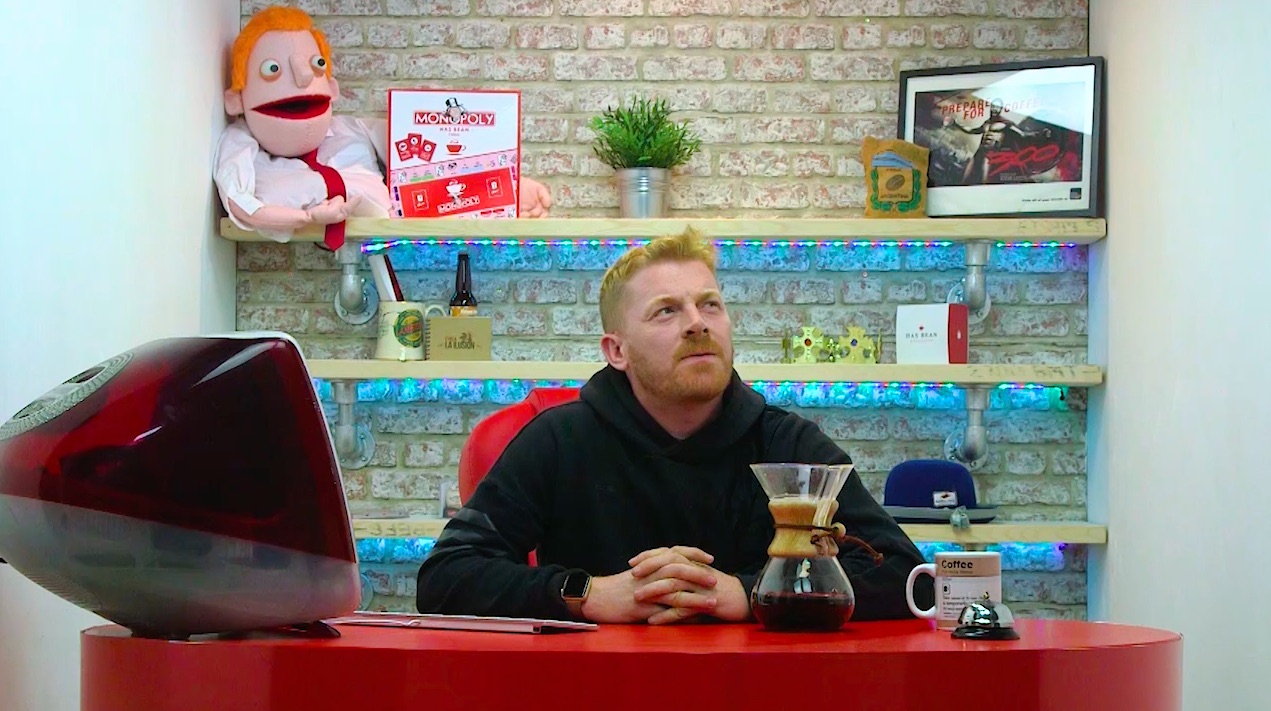
Sunday Oct 16, 2016
Sunday Oct 16, 2016
Right then folks, listen up! Long coffee name right here so please allow me to explain! Costa Rica (I'm guessing you worked this out!) is the country it's from. Don Mayo is the name of the micro mill where the coffee is milled and processed. Finca La Loma is the farm that the coffee was grown on. Yellow Honey is the processing method (if you want to learn a little more about processing be sure to check out our processing videos) and Caturra is the varietal of coffee bean (more information about Caturra available in our varietal archive) See I told you it was all important stuff!
Finca La Loma is located at an altitude of 1,850–1,900 metres above sea level in the Tarrazú region of Costa Rica and is owned by Hector Bonilla and his family. We first had a chance to enjoy coffee from this awesome farm/mill combo in 2014, and I'm delighted to see it back for a third year. I came across it on my trip to Costa Rica in January 2013, because we were already working with the Bonilla family on coffee from the neighbouring Finca Bella Vista.
The Don Mayo mill is somewhat of a celebrity in the world of coffee mills, winning a beautiful selection of awards for its coffees which are bought by many top buyers from around the world and I am (of course) very pleased to be one of them.
In the cup this makes me think of a creamy apricot fruit smoothie, there's loads of body and the sweetness of brown sugar + a wonderful long aftertaste of lingering deliciousness.
- Country: Costa Rica
- Region: Tarrazú
- City: Llano Bonito de León Cortes
- Farm: Finca La Loma
- Farmer: Hector Bonilla
- Micro Mill: Don Mayo
- Altitude: 1,850 - 1,900 m.a.s.l.
- Variety: Caturra
- Processing System: Yellow Honey and sun dried
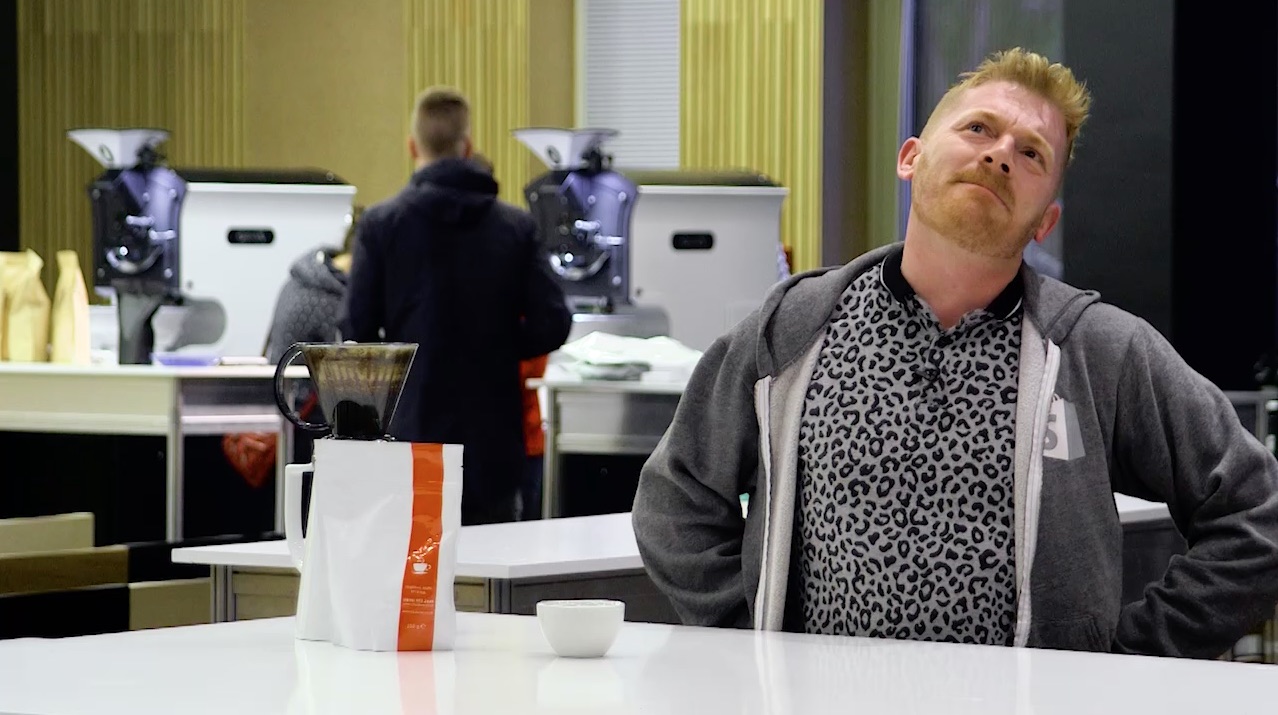
Monday Oct 10, 2016
Monday Oct 10, 2016
Bosque is a huge, special coffee that I love very much, and am super pleased to see back for a whopping 11th season!
I already loved this coffee before I got to try it at El Bosque. I mean that I was truly blown away with how good it tasted. However, my first visit to the farm in January 2007 made me love it some more because I got to meet the fantastic people behind the coffee.
Don Roberto and his two brothers have tried to move away from generic commercial coffee by raising their growing and milling standards, and you can really tell this in the cup. During another visit in 2009 I got talking to Francisco about the Bourbon, and I asked if it would it be possible to split the red and yellow beans to compare the results. Of course, I could only really ask them to do this for me if we bought all of the coffee, and we were delighted to do so. Nowhere else in the world will you be able to try this famous coffee using just the specific Red Bourbon varietal.
Julian Flores founded Finca El Bosque in 1932. The fourteen-hectare extension of land was planted out with Bourbon varietal coffee, and the farm grew over the next few years with the purchase of additional land. Julian Flores died in 1947 and his only son, José Eladio Flores, continued in his father’s footsteps. In 1970, José bought another 23 hectares and planted the same Bourbon coffee varietal. Since his death in 1996, a third generation has taken charge under the direction of José’s widow, Martha Stalla, and their sons Julio, José, Francisco and Mario.
The first two generations cultivated and sold coffee in cherry form only. Now the third generation has taken care to innovate, and they have built a plant for processing the cherries in line with strict environmental guidelines. They have also diversified into growing other plants for local consumption such as avocados, roses and lemons, as well as growing a new grass innovation.
The El Bosque farm is located on a hillside running parallel to and a way off from the main road near the capital, Guatemala city. It may be jeopardised by urban development in future but, during the time we have been working with El Bosque, prices and returns for the farm have made it a much higher concern for the brothers, and they are very motivated.
This coffee is a world exclusive. We buy every single Bourbon bean from this farm. We also bought the rest of their coffee last year and, after the success of the year before that, we sent most of it off for decaffeination. We are the only people from whom you can get this current crop of coffee.
In the cup expect chocolate biscuit, a spoonful of brown sugar and a hint of green apple. With every sip you’ll enjoy the smooth mouthfeel and a lovely long finish.
- Country: Guatemala
- Region: Aldea Loma Larga Mountains, Amatitlán
- City: Municipality of Villa Canales
- Farm: El Bosque
- Farmer: Flores family
- Farm size: 37 hectares
- Coffee growing area: 14 hectares
- Altitude: 1,400–1,645 m.a.s.l.
- Variety: Red Bourbon
- Processing system: Washed
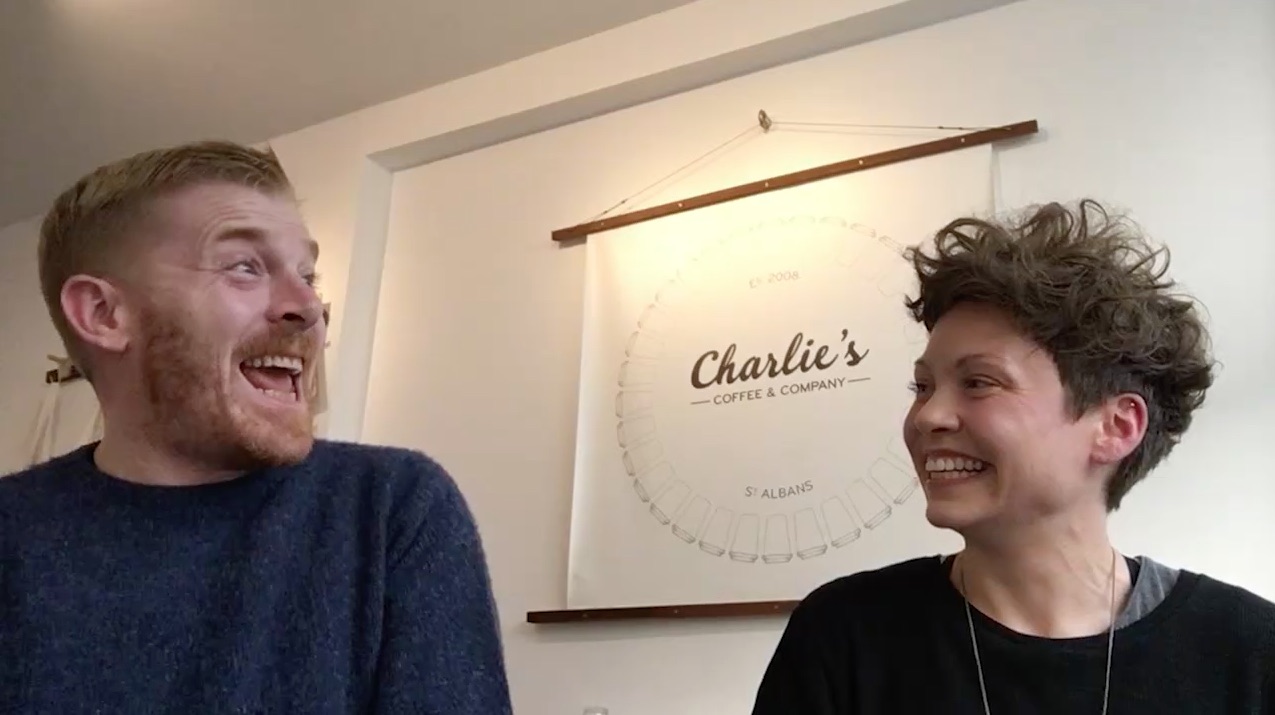
Monday Oct 03, 2016
Monday Oct 03, 2016
Finca La Escondida is close to Lake Apanas near the city of Jinotega, which is the capital of the department of Jinotega in the north central region of Nicaragua. The straight translation from Spanish to English of 'escondida' is ‘hidden’ and Escondida is called Escondida because the farm is 'hidden' from the road by forest and trees, which makes it appear to blend right into the side of the mountain.
As coffee farms go La Escondida is a rather young farm as the first trees were planted there only 10 years ago in 2006. La Escondida is planned around identifying the plots with individually different microenvironments resulting from factors such as soil quality, sun exposure and temperature range. This is one of the upsides of starting to plant a new farm.
This coffee is a Red Catuai varietal, which you don't see so much in speciality coffee. The varietal was selected for this farm because it was thought it would do very well with the identified soil quality, sun exposure, temperature range and weather conditions in particular, given the farm's quite exposed on the side of the mountain.
Catuai is related to Yellow Caturra and Mundo Novo, and it's a hybrid that grows best at 800 metres above sea level. It is mostly prevalent in Brazil and Central / South America. This is a dwarf variety of plant; it doesn't grow very high, and this is its most obvious distinguishing trait. Selected by the instituto Agronomico in the 1950s–1960s, it now accounts for 50% of the coffee acreage in Brazil and is widely used in Central America. It also benefits from the fruit not falling off the branch easily, which helps when there are strong winds or rain, or where windbreaker coverage is at a minimum like it is here.
Some of the downsides of starting a brand new farm can be that it may take a while for the quality of the cup profile to build up, it might take time to have the right facilities for processing and picking, and it might take time to train the staff for picking and processing. Not to mention that it might take a while to achieve the yield to go with it all. But this farm, for me, has hit the whole group of requirements running. As a result of their experience in the area, the Mierisch family have built a new mill with a huge investment, and they use some of the people already in place in the neighbouring 'San Jose' to blend together an Escondida team comprising experienced and new members.
In the cup there’s a liquid chocolate orange Club Biscuit (you know, “If you like a lot of chocolate on your biscuit, join our Club!”) Chocolate, biscuit, sweet orange, yum. There’s also brown sugar alongside both the taste and mouthfeel of melted milk chocolate.
- Country: Nicaragua
- Municipality: Lipululo
- Department: Jinotega
- Farm: La Escondida
- Farm Manager: Boanerje Martinez Montenegro
- Coffee Area: 92 Manzanas
- Protected Area: 3 Manzanas
- Elevation: 975 - 1,230 m.a.s.l.
- Harvest Months: December-March
- Diurnal Temperature Cycle: Avg-High 27C, Low 16C
- Coffee Varieties Grown: Bourbon, Java, Caturra, Catuai & Laurina
- Processing Method: Dry Fermented then Washed
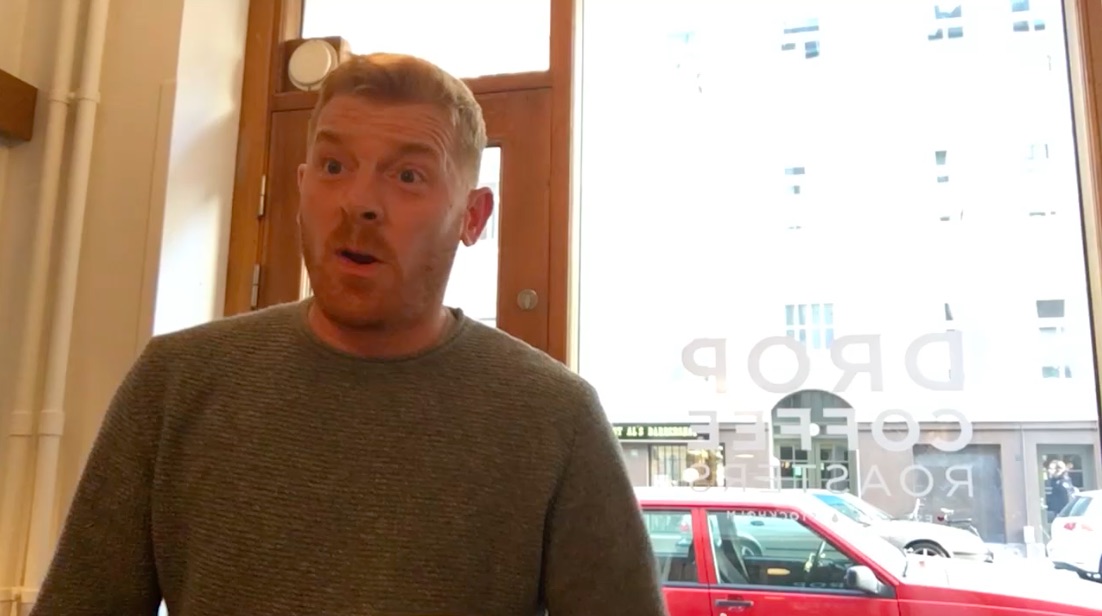
Sunday Sep 25, 2016
Sunday Sep 25, 2016
When we first found this farm in 2013 we had very little information about it; so much so that it didn’t even have a name! Back then all we knew was that the coffee was grown by Carlos Arrieta and it was delicious, but since then I've been lucky enough to visit the farm on trips to Costa Rica and over the past few years have found out lots more. Let me tell you what I know so far...
I first got to meet Carlos in 2013 at the exporter's office on the last day of my visit in Costa Rica. He arrived around 10 minutes after I had cupped the first table of coffees, where I had found one lot that was making me sing. It just had to be his coffee.
Here ensued the worst negotiation to ever take place in the history of coffee buying...
"How much do you want?" I asked.
He replies, "How much do you like it?"
"A lot” I say.
"I'd like a lot then please" Carlos says.
"OK..."
Luckily at this point a grown-up from the exporter's office stepped in and made sure I didn't give Carlos my house, car and pension plan. We agreed a price that rewarded Carlos more than he had ever gotten before and left me with a home to return to in Stafford.
The year before last I got to spend some time with Carlos and his family, I stopped for some lunch, hung out and asked lots of questions. First of all there's the mill, which is called Arbar and is very close to the house, it has drying tables and a small nursery but didn't have a deplulper (more about this later!) The mill was brand new and before it existed they would just sell their coffee to the local coop and so have no interaction with the coffee.
Then from chatting to Carlos I found out that he actually owns two small farms; this one being El Oasis, which provided the coffee we bought back in 2013. The farm is located in the Western Valley region near to the town of Lourdes de Naranjo and is located at 1,600 metres above sea level. It grows mostly Caturra and a tiny bit of Villa Sarchi, with plans to plant some small micro lots in the future. The farm produces between 700–1,400 KG of coffee a year.
Carlos runs the farm with his wife and children, Maria Isabel, Yesica, Karen, Stephen and Jose Ignacio. He has owned this farm for 16 years but only started processing the coffee himself in 2014 (while still paying someone else to pulp it for him (more on this later). He hadn't been able to present his coffee to a single buyer previously, so he would send it to the exporter we use in Costa Rica and thankfully that's how we found him!
You may remember that 2 years ago the coffee was priced a little differently; our normal, nicely rounded-down price was not there. The coffee should have been sold for £7.50 (we negotiated a small price drop from the previous year because we bought everything from both farms, and this works out that there are some economies of scale compared to the £10.00 of 2013), but we charged £7.88. Well, this was so that we (by “we” I mean “you”) could buy Carlos and his family a depulper for his next harvest. This meant he didn’t have to pay someone else to pulp his coffee, and he could gain more control of his amazing coffee.
You can go and see what your generosity bought as I lent the money to Carlos as I promised you would pay it back (and you did!) at the blog post here.
Last year one of my roasting team Roland (of Roland's Daft Fact fame) travelled to Costa Rica to be on the jury for their Cup of Excellence competition, if you ever wondered what a coffee roaster from the UK would get up to if let loose in Costa Rica then you should have a read about his trip in Roland Glew's Costa Rican Adventure.
In the cup immediately this is sweet, white sugar sweet like someone slipped a spoonful in when you weren't looking. That sweetness is followed up by apricot and a lovely velvety texture before shifting towards lemon in the finish, a super clean and sweet coffee.
- Country: Costa Rica
- Region: Western Valley
- City: Lourdes de Naranjo
- Farm: El Oasis
- Farmer: Carlos Arrieta
- Micro Mill: Arbar
- Altitude: 1,600 m.a.s.l.
- Varietals Grown: Catuai, Caturra and small amount of Villa Sarchi
- Processing System: Yellow Honey

Sunday Sep 18, 2016
Sunday Sep 18, 2016
This could be the start of something beautiful. This coffee represents our first attempt at working directly in Ethiopia; not only that, but the coffee's made by the first private estate from which we have ever bought in Ethiopia. Add to these points the fact that it's one of the most unique coffees I have ever tasted, and you can understand why I’m excited.
This private farm is owned by Israel Degfa, a second generation coffee grower from Ethiopia. The farm covers 250 hectares, only 150 of which are currently producing coffee; however, it is estimated that the remaining 100 hectares will be in full coffee production by 2018.
Situated alongside the river Turo, the farm currently only produces natural process coffee. However, in future the farmers will take advantage of the water source and the planned increased production capacity to begin producing coffee processed by the "washed process" method. Israel plans to build a processing station on his land by 2018.
It's a brand new farm, only formed in 2013, and it's located at a whopping altitude of between 1,900 and 2,350 metres above sea level. It is unusual to find private farms of 250 hectares in Ethiopia, and even more unusual to find them at such high altitude. The high altitude helps with the slower maturation of the coffee cherry, and gives more time for the plant to develop.
Coffee growing is popular in this area, and Israel hopes that the surrounding area will be populated by smallholder farmers who speak Oromife and are of Oromo ethnicity. Israel believes in helping these farmers through education in husbandry and also through financial assistance.
Cherries are hand-sorted for unripes and overripes before they go into floatation tanks, where the cherries are covered with water. Any cherries that float are removed. Whole, ripe cherries are then dried in the sunshine on raised African drying beds, which are laid out on hessian cloths for about 15–18 days depending on the weather conditions. The cherries are covered with plastic or shade nets during the midday heat and at night.
This is a unique coffee, certainly for its cup profile but also because of the cherries that contribute to the coffee.
In the cup expect an amazing Ethiopian natural that's so very similar to the Parma Violet sweets I loved as a child, while also being one of the cleanest naturals I’ve ever tasted. Blueberry juice! It's so floral that it's bigger than the biggest bouquet of violets I can imagine. This is a truly special and unique cup from a special and unique coffee bean.
- Country: Ethiopia
- Region: Yirgacheffe
- Area: Guji zone
- Nearest town: Yirgacheffe
- Farm: Ana Sora
- Varietal: wild
- Processing: natural
- Founding year: 2013
- Altitude: 1,900–2,350 m.a.s.l.
- Producer type: estate
- Farm size: 250 hectares, of which 150 hectares are coffee.

Sunday Sep 11, 2016
Sunday Sep 11, 2016
The story of Has Bean and Finca Limoncillo has been told many a time but it's 1 I really love to share, so much of where we are today has come from this relationship and I'm super proud of everything that's happened in the past + amazingly excited for where we can go in the future.
We first bought this coffee back in 2007 and back then it was as part of a buying group, I loved it from the first time I cupped it and it was a coffee I just had to get. It was only after the auction closed that I found out it was owned by a family in Nicaragua who are good friends and probably the only people I know from the whole country!
The following year I visited the farm with our importers and spent the whole trip begging them to bring the coffee in for us, eventually they caved in (possibly just to stop me pestering them!) and kindly did it.
This setup worked well for a couple of years, but we received notice a couple of years ago that the importers were not going to be buying the coffee any more, for reasons other than the cup quality. This led to some frantic phone calls and some thorough searching of the back of the sofa for loose change to fund buying 12 months' worth of coffee all at once. There were many many obstacles in the way of doing this deal, but we were lucky that we were able to pull everything together in a very short amount of time.
The upside of all this is that we now work directly with Limoncillo instead of going via anyone else, and it's a relationship I'm super happy to have. This coffee has gone from 1 off Cup of Excellence buy to a long-term relationship.
The farm is located in Matagalpa and is huge, at 171 hectares it's an amazing location and boasts 9 waterfalls within the farm. It's owned by the Mieresch family; as I have already said, they're good friends, and they're also well-respected producers in Nicaragua. They're known for their experimental processing, varietal work, and exceptional coffee.
The fact that the family are friends helps us drill down into the details of what they do for the people who work for them, and the information continues to prove to me that good people grow good coffee.
On the farm, the family:
- Pay their staff 30% more than what is typical minimum wage.
- Provide free housing, for 60 families, on their farms.
- Provide free electricity and running water for their homes.
- Provide free food for all workers.
- Provide free day care facilities for families to use.
- Provide free healthcare facilities on the farms.
- Employ on-site teachers who educate the staff and teach other skills, such as pottery and weaving. The goal is to help staff diversify their skills. The teachers are also paid twice the wages they would receive in the cities.
The coffees we receive from Limoncillo are fantastic and they come from a fantastic relationship, Erwin has visited Stafford many times and it's always a pleasure to have him around. Last time he was here he ended up at a Weird Beard tap takeover in Manchester talking to 2 Weird Beards about crazy brewing / coffee farming ideas! A coffee from Finca Limoncillo (the Funky Red Pacamara) is used in 2 of their beers, Black Perle and Double Perle, mighty delicious beers!
In the cup this coffee makes me think of a toffee apple, on the front end there’s sweet sticky caramel which turns into juicy green apple with a hint of white grape.
- Country: Nicaragua
- Municipality: Yasica Norte
- Region: Matagalpa
- Farm Name: Limoncillo
- Farmer: Dr Erwin Mierisch
- Farm Size: 171 Manzanas Hectares
- Coffee growing area: 109 Hectares
- Harvest Months: December - February
- Diurnal Temperature Cycle: Avg High 28C, Low 20C
- Altitude: 1,200 m.a.s.l.
- Varietal: Caturra
- Processing system: Washed
- GPS coordinates: N13 2.9569 W85 49.9756

Sunday Sep 04, 2016
Sunday Sep 04, 2016
I first discovered El Limon on my trip to Guatemala in early 2013, at the time we 'd never bought coffee directly from Guatemala; but since then this has become one of our strongest and most amazing relationships.
My friend Raul (who you may remember as the World Barista Champion of 2012!) in Guatemala had been buying coffee from these guys for a couple of years and was very keen for me to go and meet them. Located around an hour's drive to the east of Guatemala City in the small town of Palencia, this farm sits at an altitude of between 1,600 and 1,800 metres above sea level. It's owned by Guadalupe Alberto Reyes, who used to be the Mayor of Palencia and helped to build and develop the town.
Palencia is not part of the eight regions of coffee as defined by Anacafé, but you can see a lot of development in the zone, and this farm is a perfect example of that development. I like being in places that are working to be hot and up-and-coming, as well as those that are established players.
1 of the main reason I love El Limon is the desire to experiment, it mostly produces Bourbon and Caturra but also plays around with a few other varietals. The experimentation comes from the motivation of 'Beto', who has really focused on the farm in the last three years. He wanted to take more care in every step they take – from picking to processing, to shipping – and also take more care in the agronomy of the farm. This is very much a family affair; his wife and son also work on the farm, along with Beto's siblings. In fact, his son is studying agronomy at the local college for the benefit of the farm.
The dedication and care devoted to each step of production is reflected in the fact that they have built a new wet mill so that they can separate different lots and have control over the quality of the coffee. Previously the mill could process only one lot; now they are able to process many lots, and keep separate days' pickings and varietals in their own parcels. With this wet mill came another opportunity, which was for neighbours and people within the region of Palencia to bring their coffees to the mill where they could get them processed. Again, another sign that this is a hot spot for Guatemalan coffee.
As time moves on Beto doesn't want to stand still and is continuing to invest in the farm, recently he showed me lots of new planting during my visit, as well as a lot of building work around the wet mill. He is also building a QC lab and new accommodation for people working on the farm, it was a real hive of activity.
Beto and his family have always been the perfect hosts when I have visited the farm, they are such welcoming people and take great pride in showing me around their farm. 1 of the kindest things they've done for me is welcome me into their home when I am visiting, and they always prepare the most amazing meals! When you travel as much as I do, mid-trip you find yourself longing for something big, home-cooked and not from a restaurant or roadside pop-up cafe...traditional Guatemalan meals are just the ticket and I always look forwards to the food, but mainly I look forward to the company.
In the cup this is a chocolatey wonder, it starts out as milk chocolate then turns towards a bar of Cadbury's Caramel. The acidity for me is juicy orange and the cup has a crisp clean finish.
- Country: Guatemala
- Region: Palencia
- Farm: El Limon
- Farmer: Guadalupe Alberto Reyes
- Altitude: 1,600 m.a.s.l.
- Varietal: Caturra
- Processing method: Washed
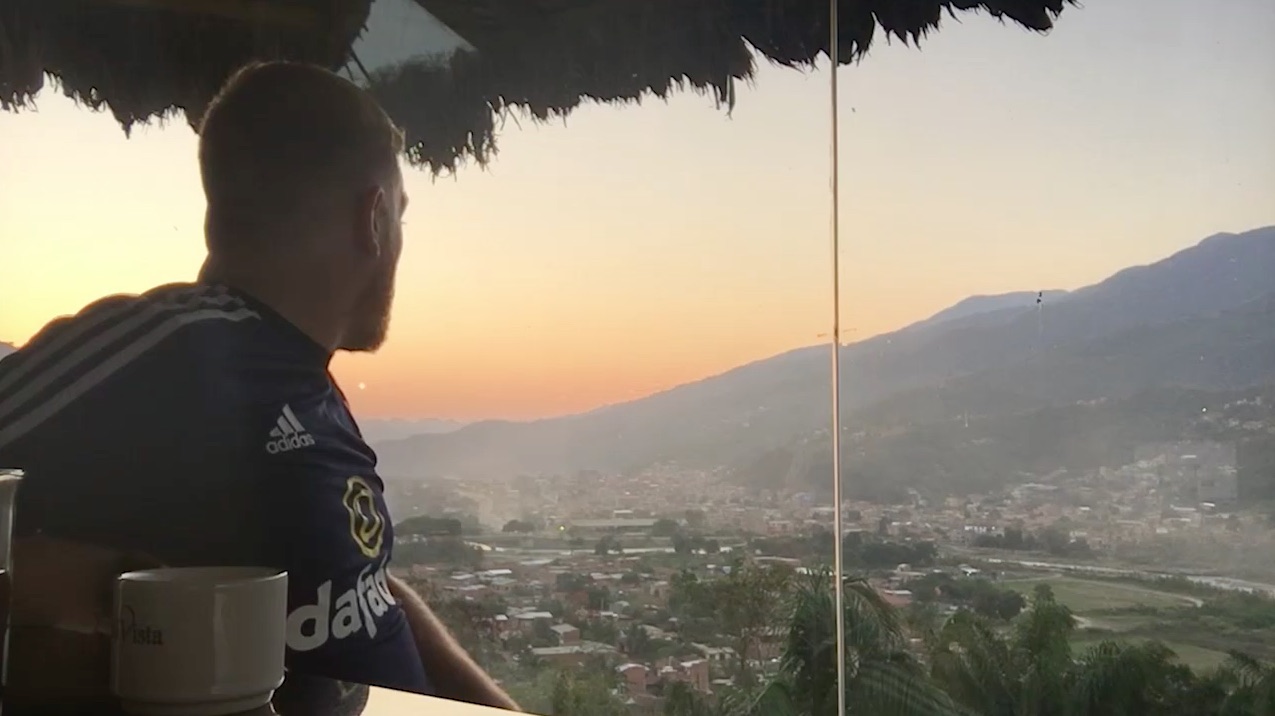
Monday Aug 29, 2016
Monday Aug 29, 2016
Due to the complications within the Bolivian coffee industry, many of the smaller Bolivian farms we have worked with in the past are no longer producing coffee. Whilst this has created some challenges for us, it has had a much more significant impact on our exporting partners AgriCafe, who have been working with these growers for many years. As a result AgriCafe have decided to begin farming for themselves, in an effort to demonstrate what can be achieved with the application of more modern techniques and a scientific farming approach.
AgriCafe now manage seven farms, and these are collectively known as the Buena Vista Project. Finca Don Carlos is the second farm of the project, and it was planted in Caranavi in 2014.
The farm is named in honour of Don Carlos, the oldest and most unconditionally awesome employee of AgriCafe. He was there at the start of the speciality coffee trend and, together with Pedro, helped to build the wet mill in Caranavi. To show their gratitude for all his good work, the company decided to give him partnership of the farm.
Finca Don Carlos is a very unique farm planted with all the care and dedication of Don Carlos himself. The farm sits at an altitude of 1,450–1,650 metres above sea level, and it is located in Caranavi, which is the capital of the Caranavi province in the Yungas region of Bolivia.
In the cup you'll find the same sweet, silky milk chocolate and hazelnut as in the Caturra lot, but here the volume is turned down just a little. My favourite part of this coffee is the rhubarb: it's like nibbling on a stick of rhubarb dipped in white sugar. It really slices through the milk chocolate.
- Country: Bolivia
- Farm: Finca Don Carlos
- Varietal: Catuai
- Altitude: 1,450–1,650 m.a.s.l.
- Processing method: washed
- Washing: manual
- Fermentation: dry
- Drying: stationary dryer
